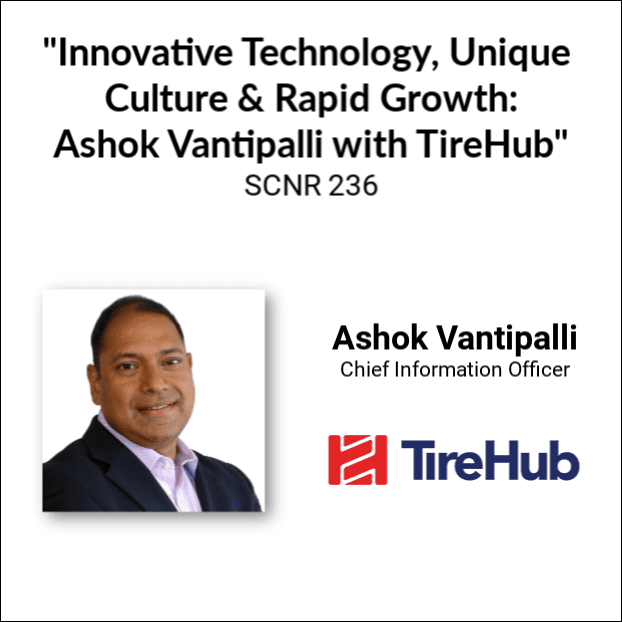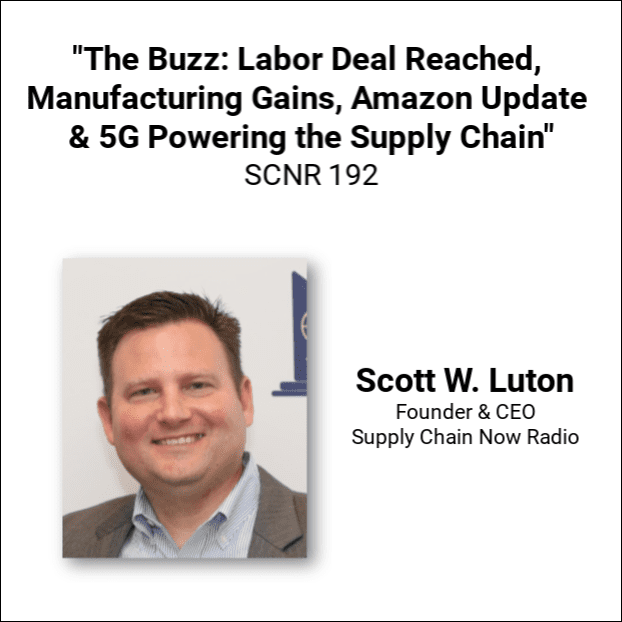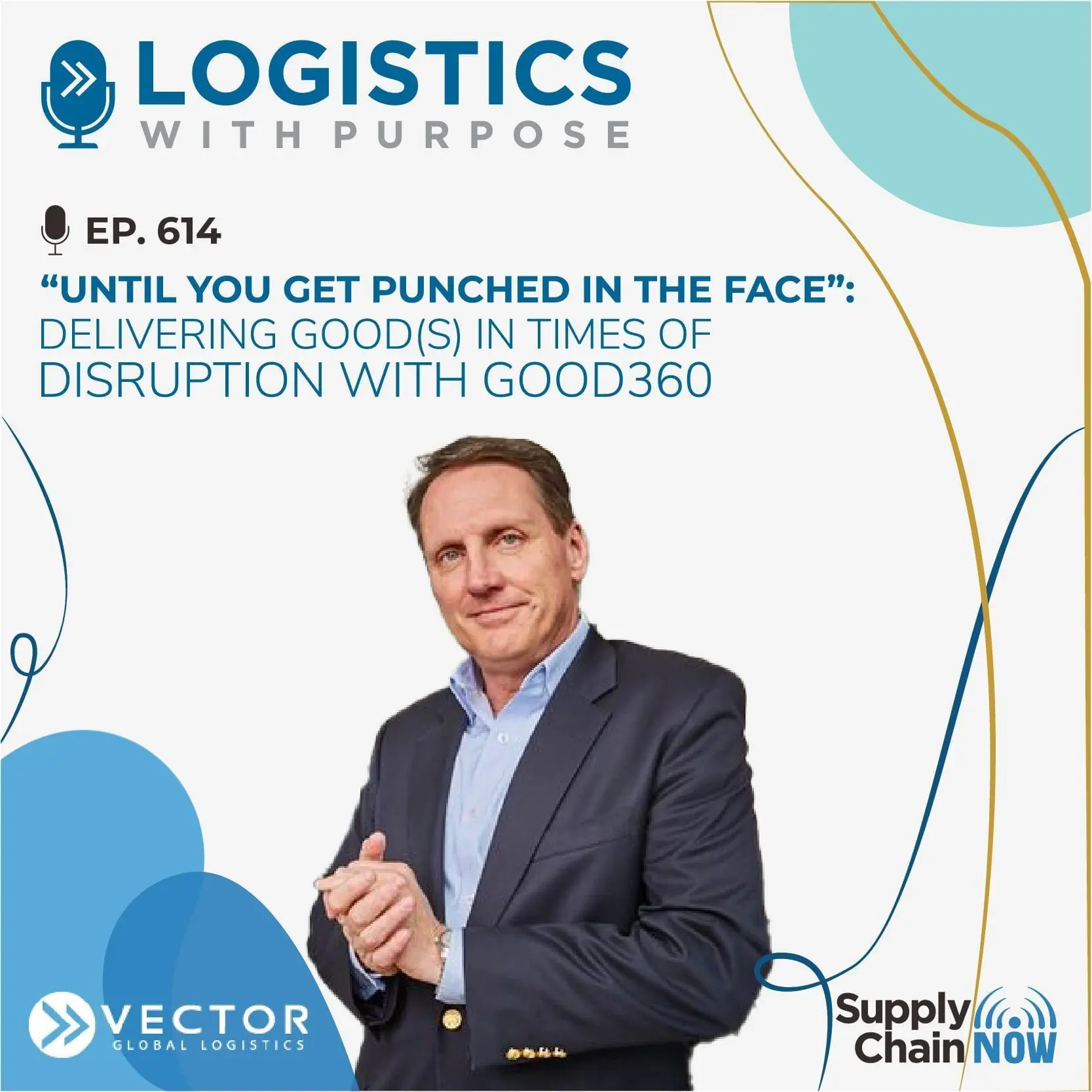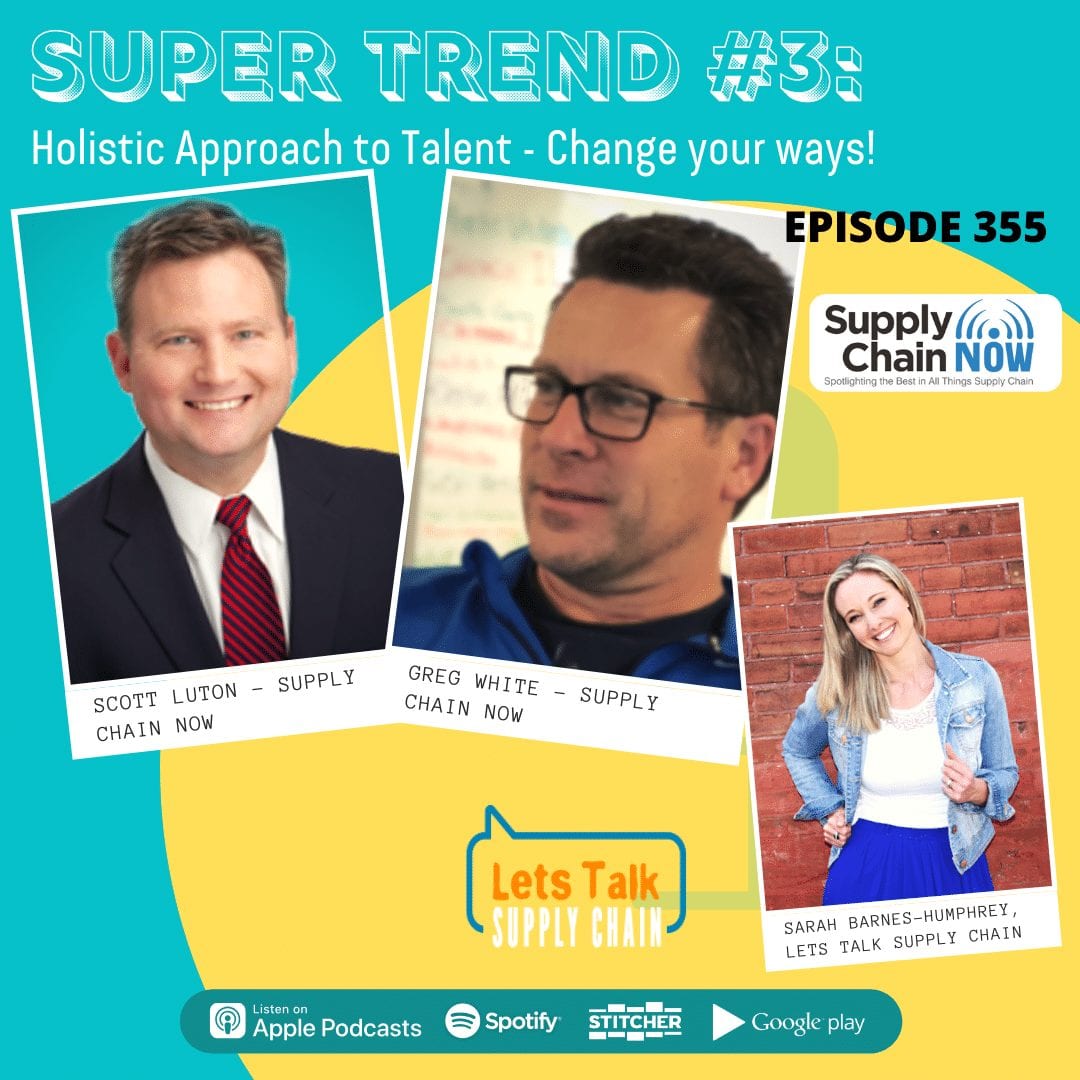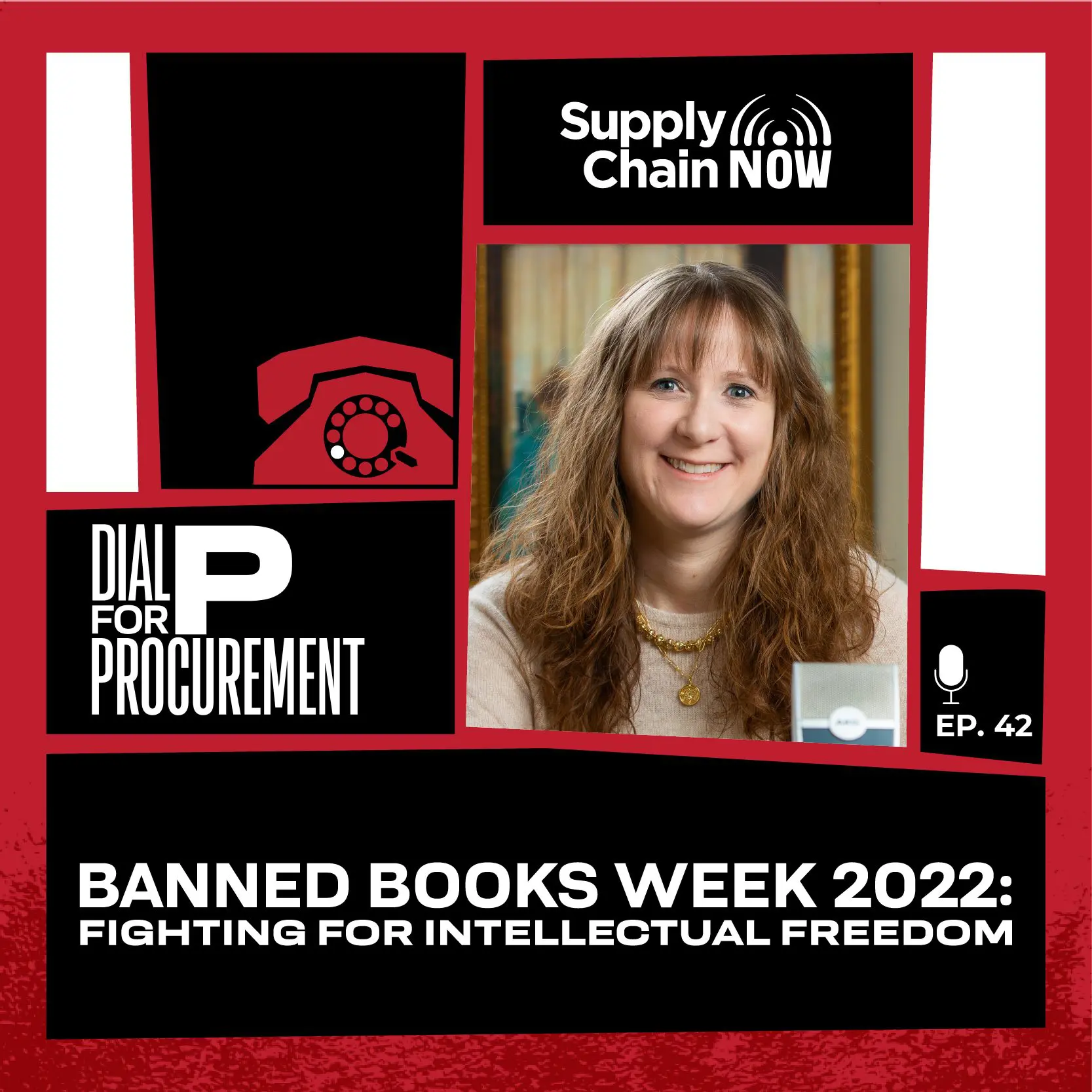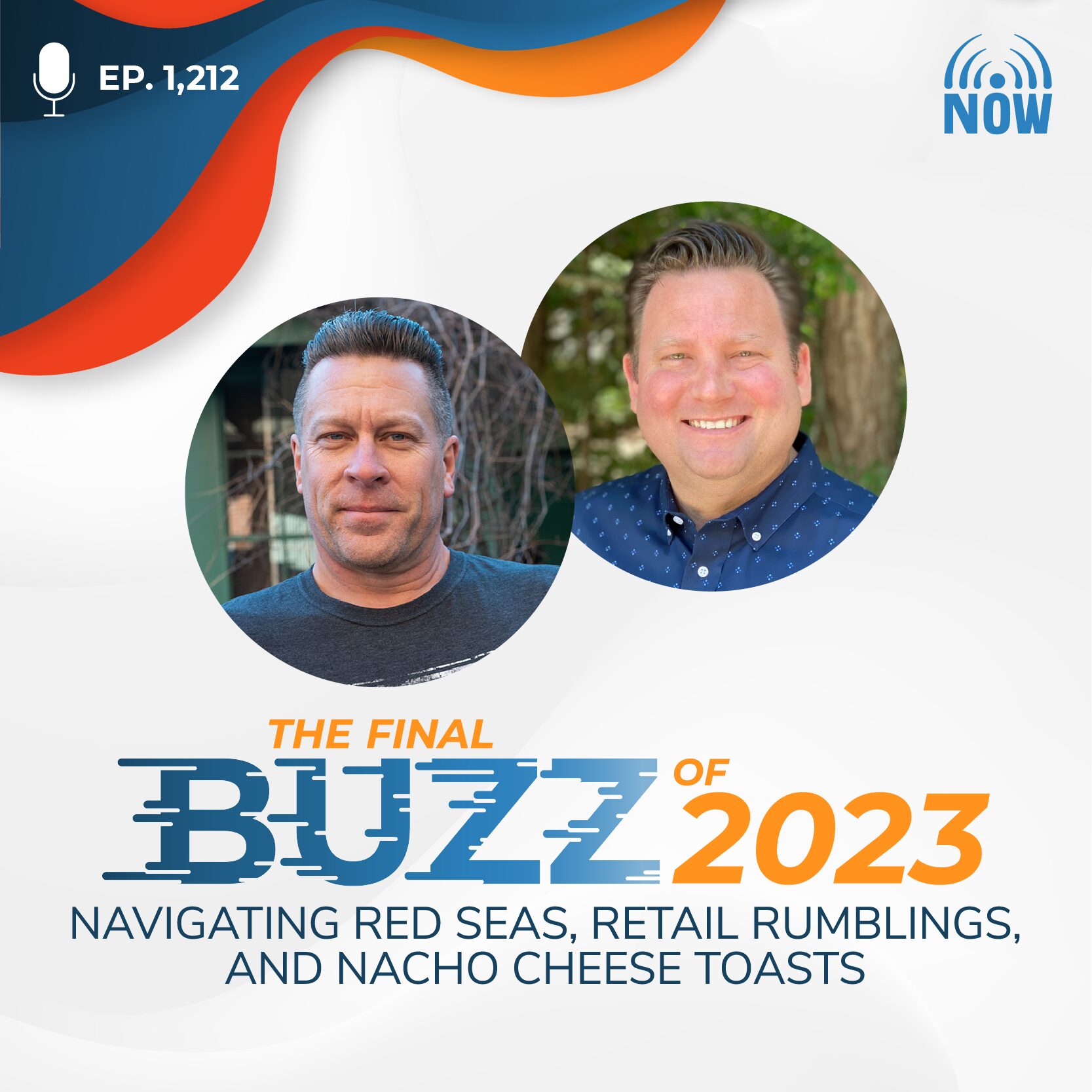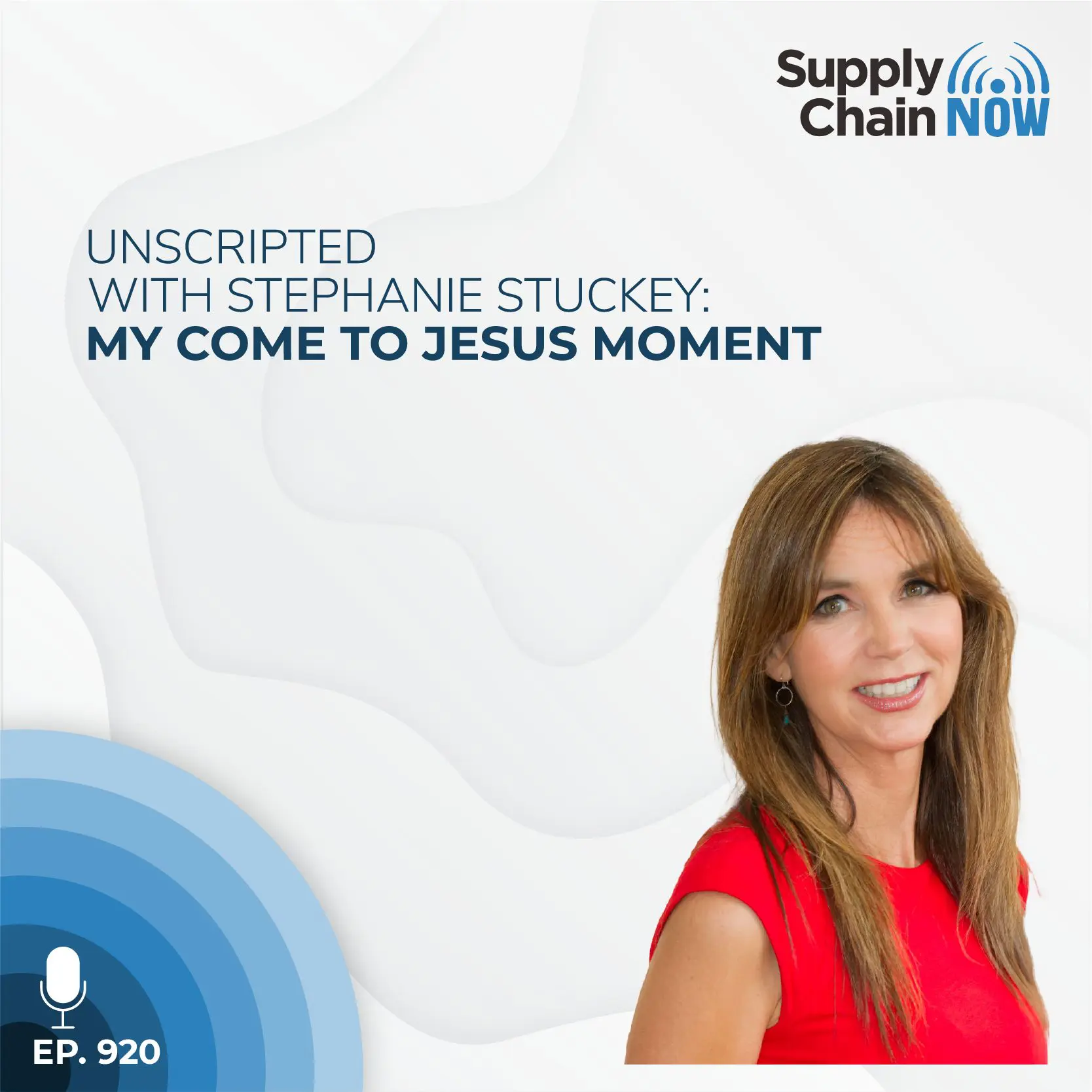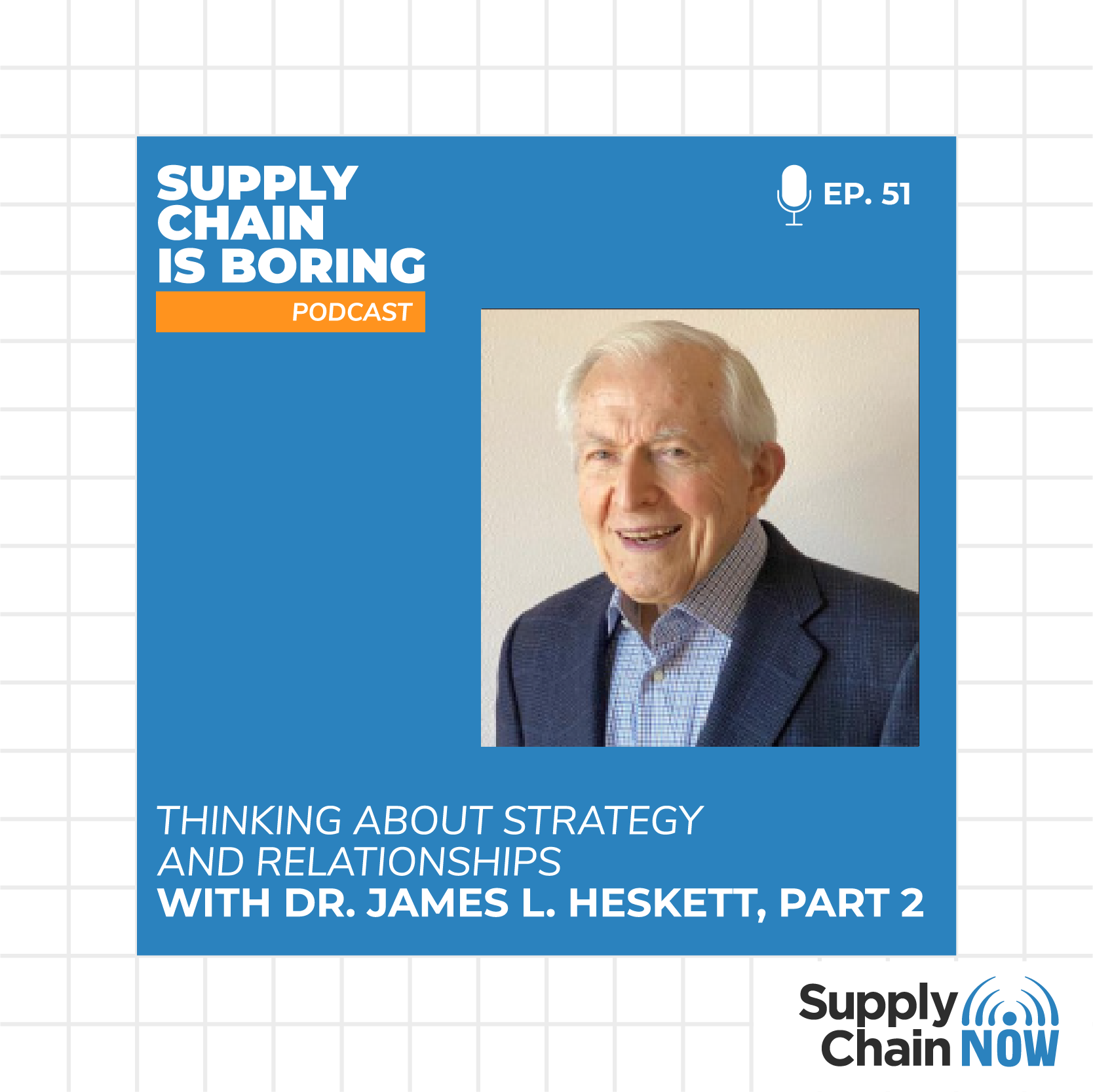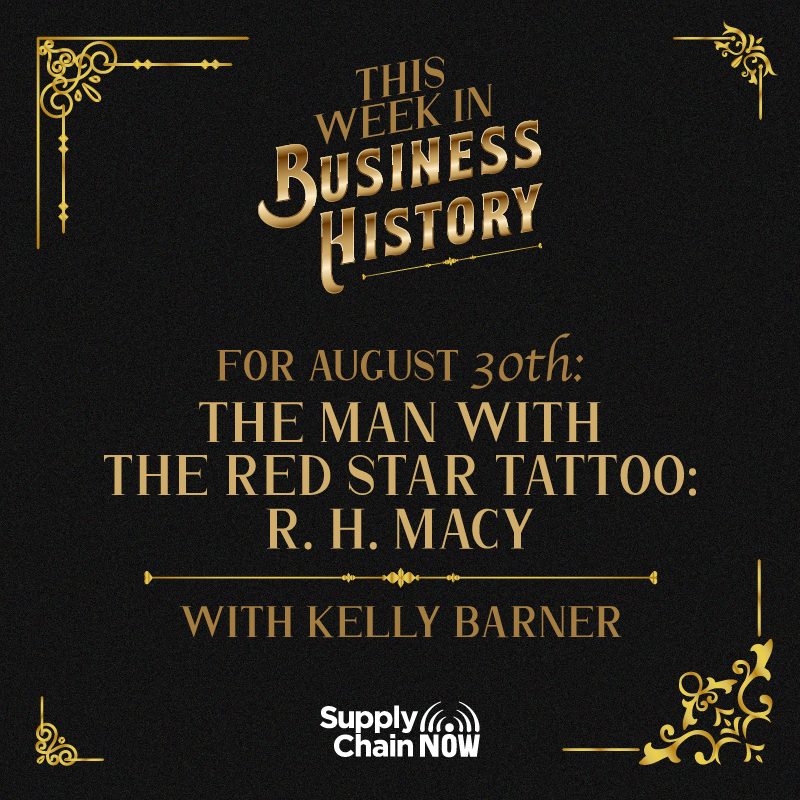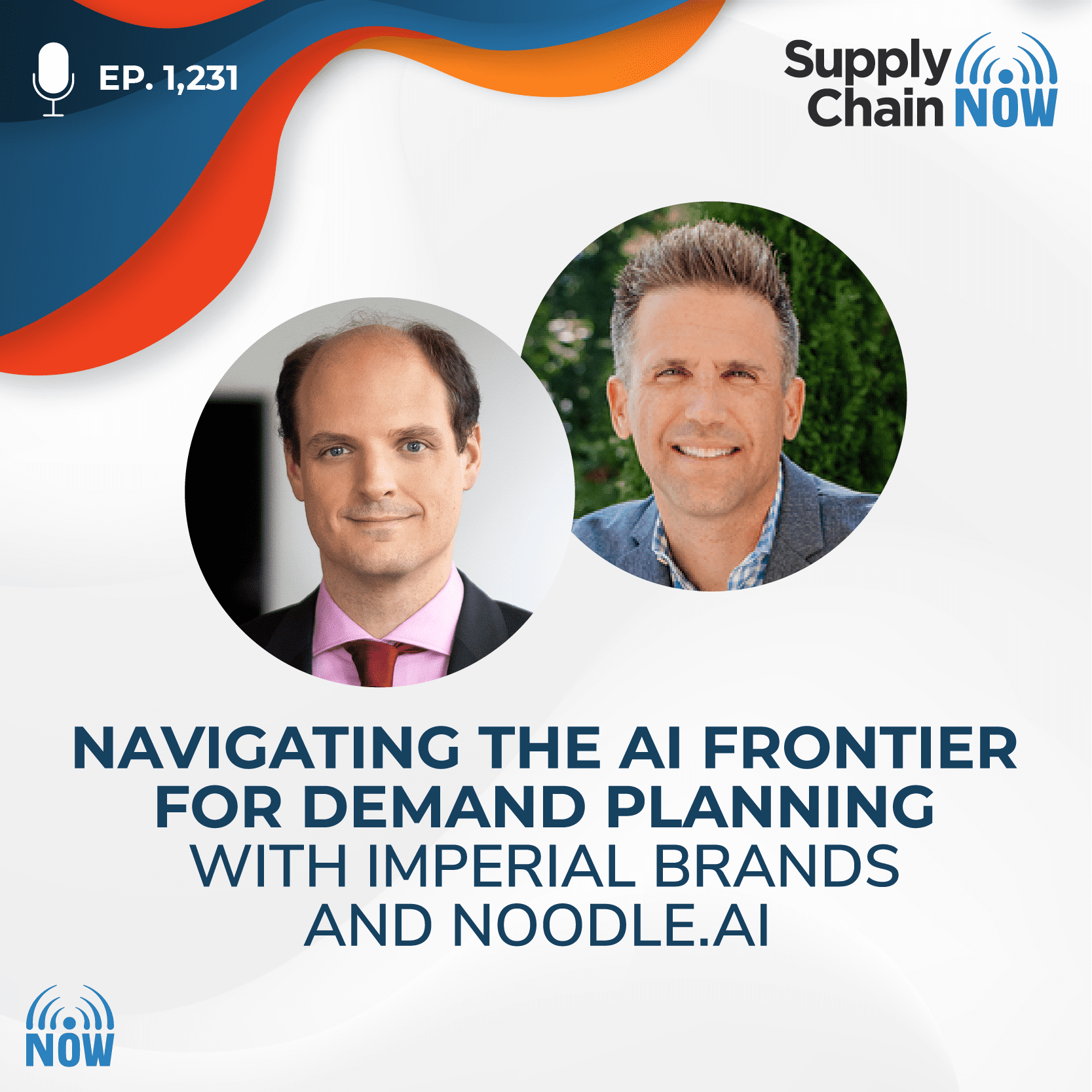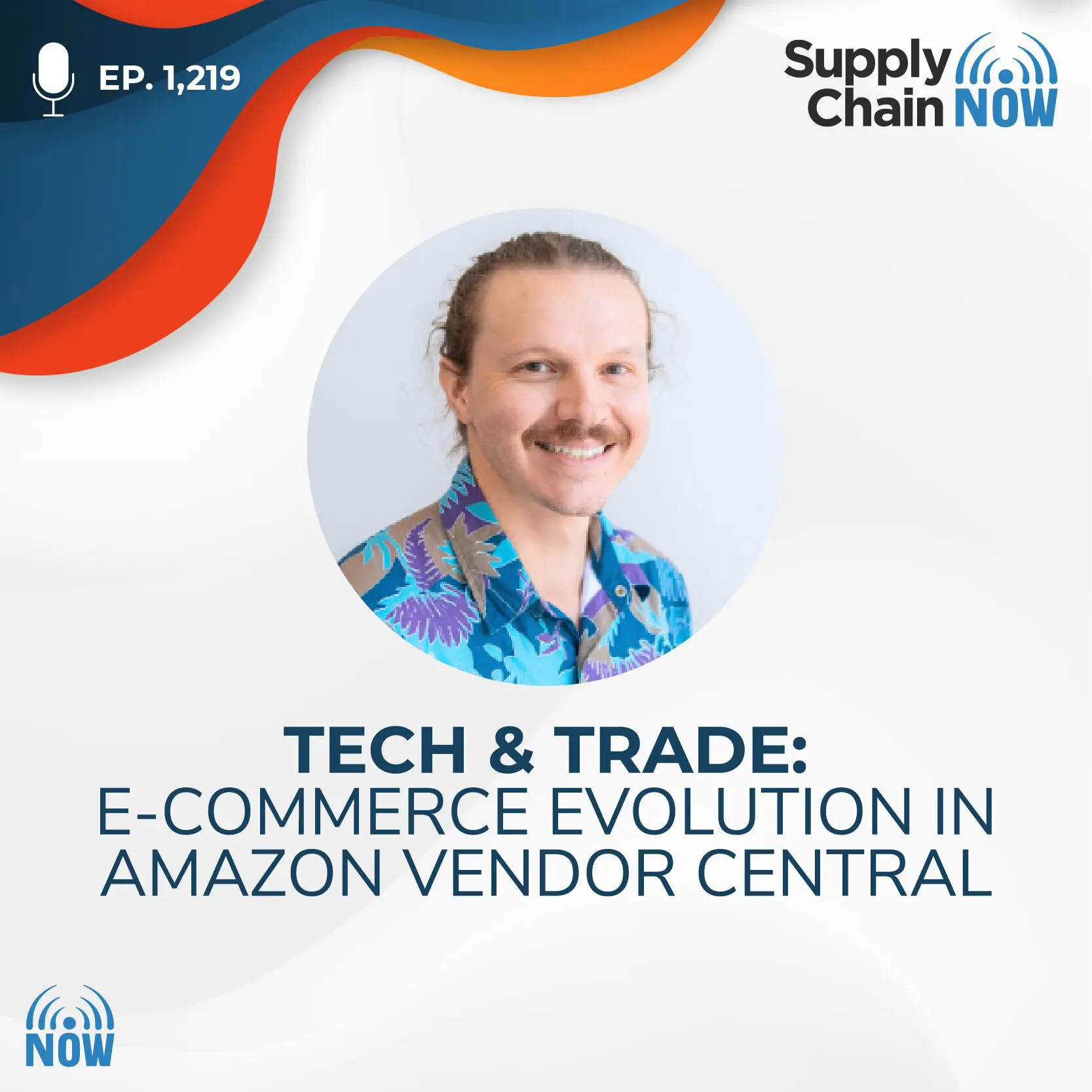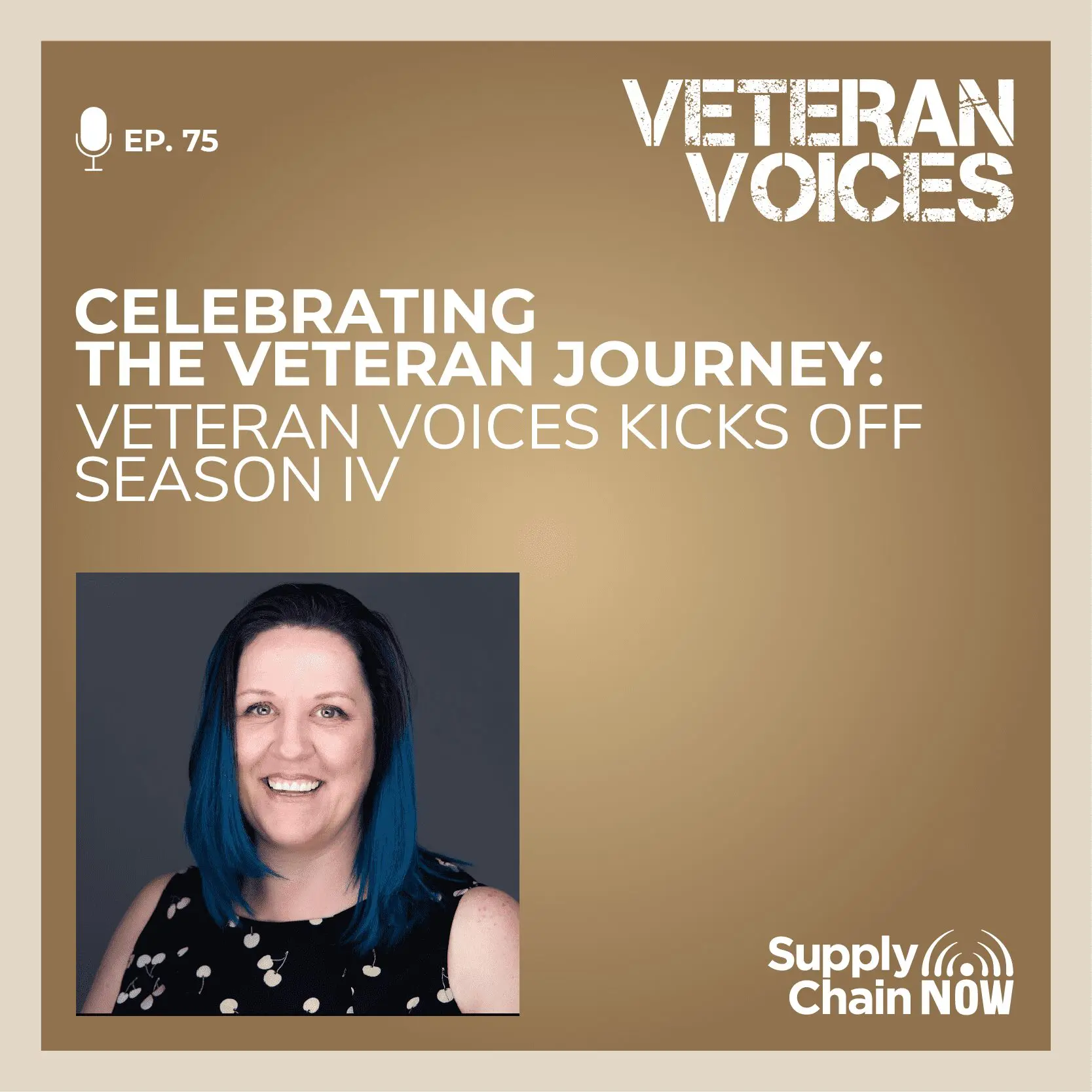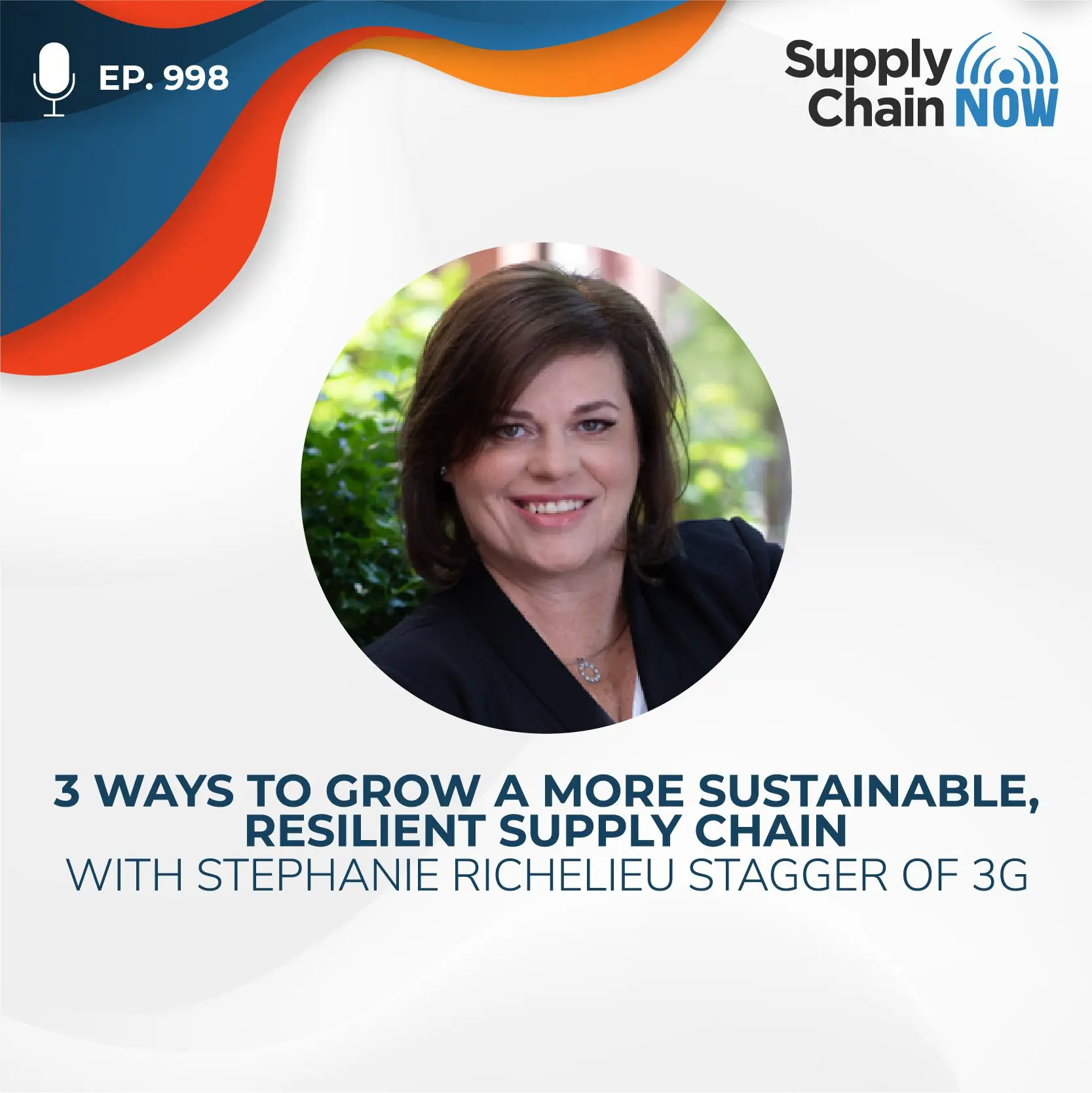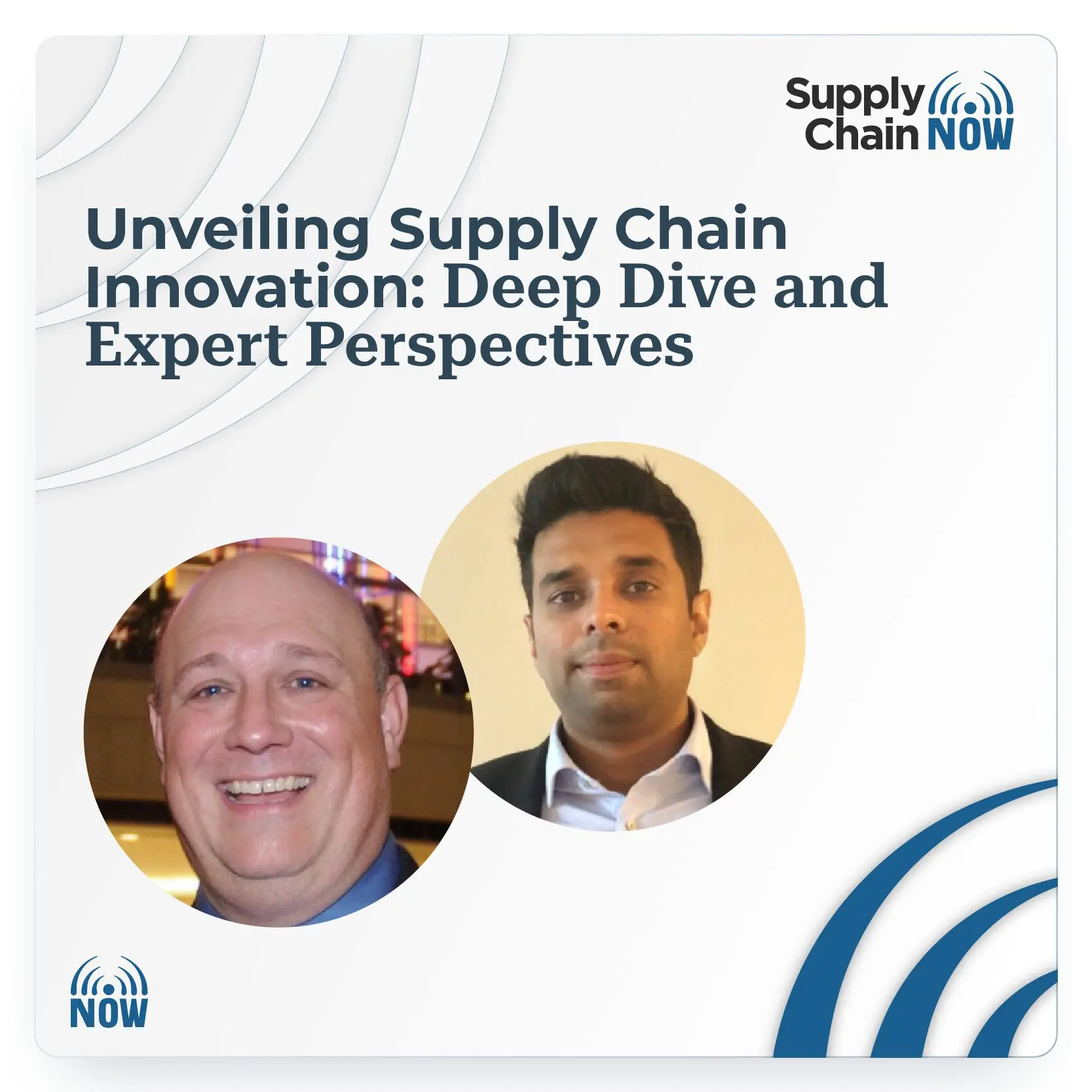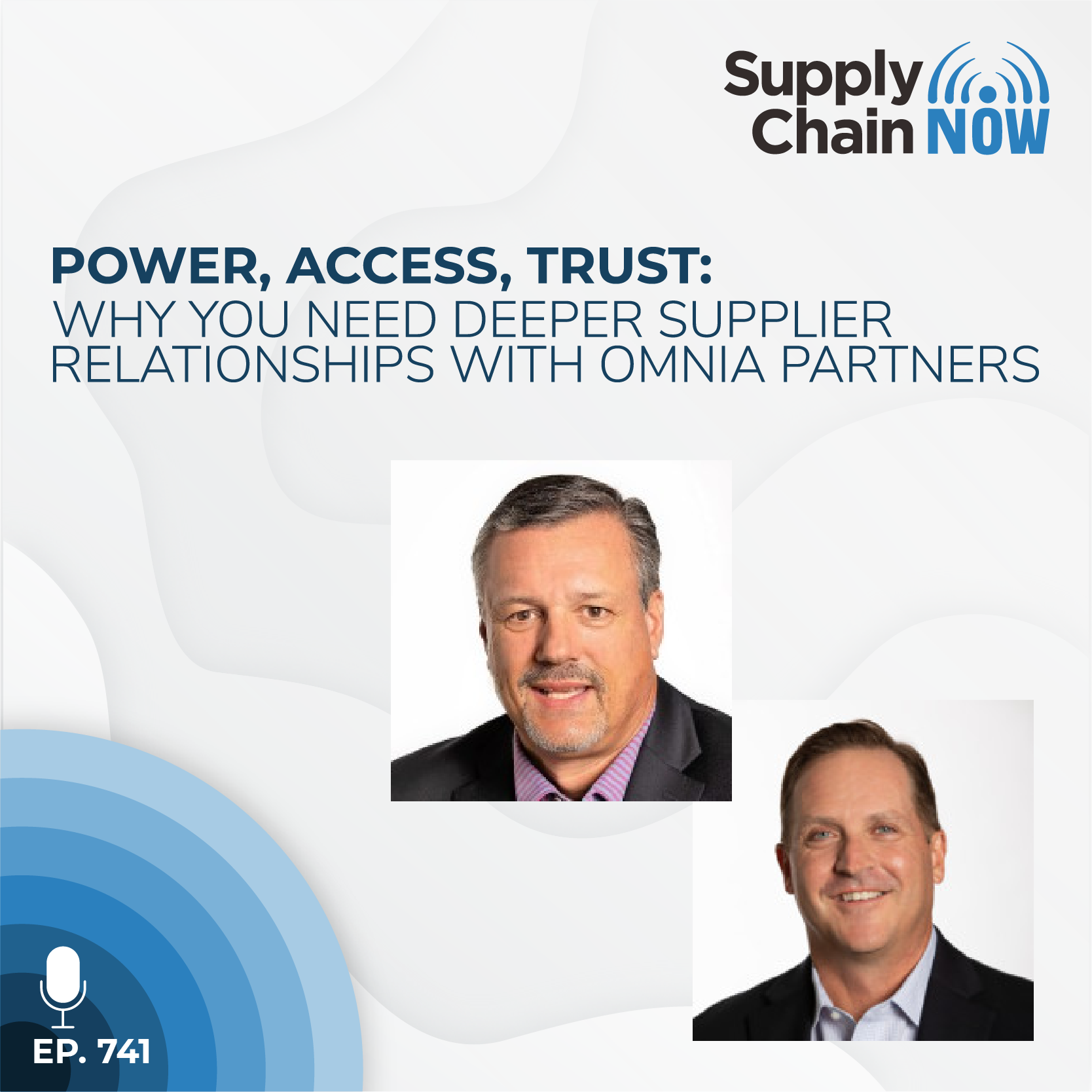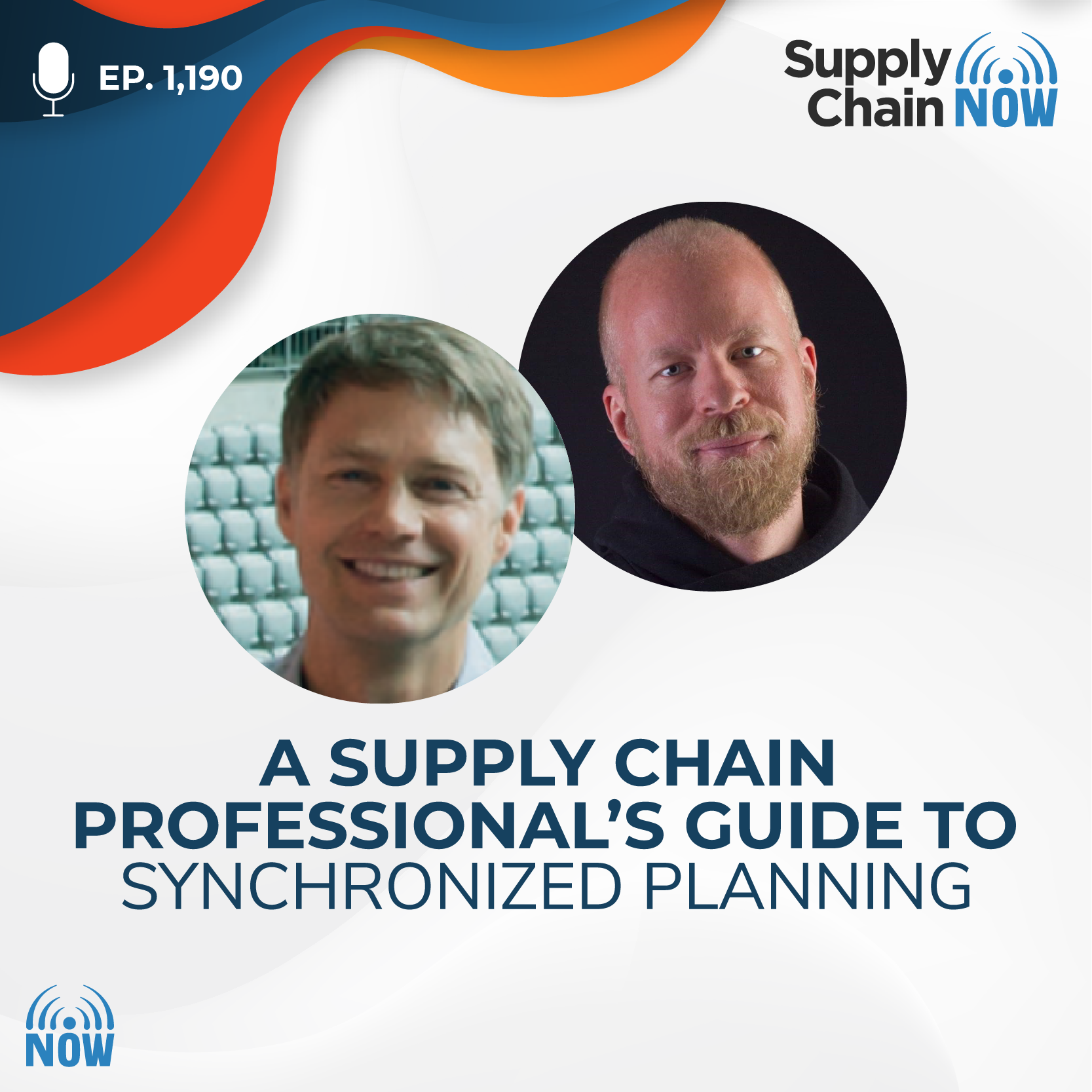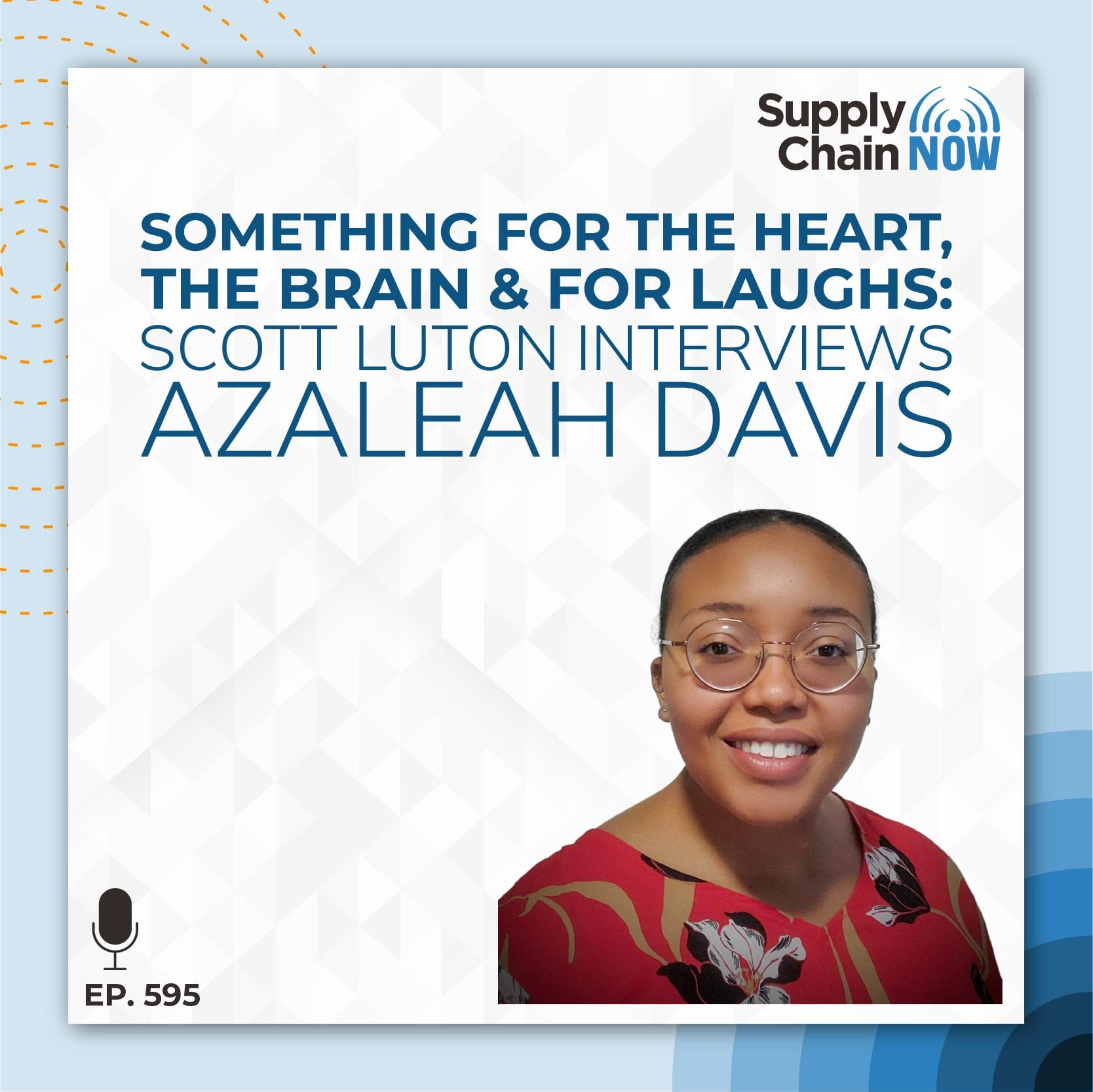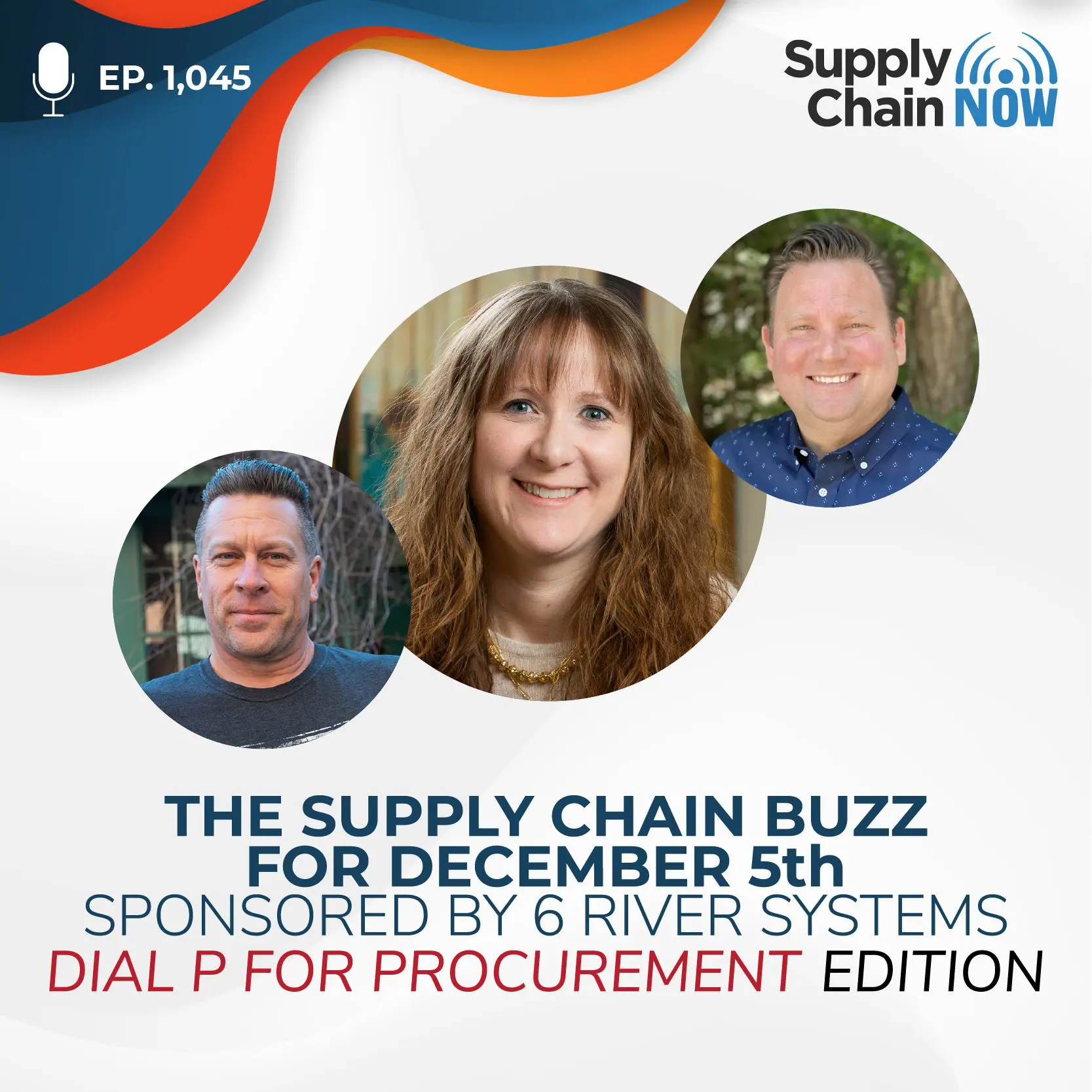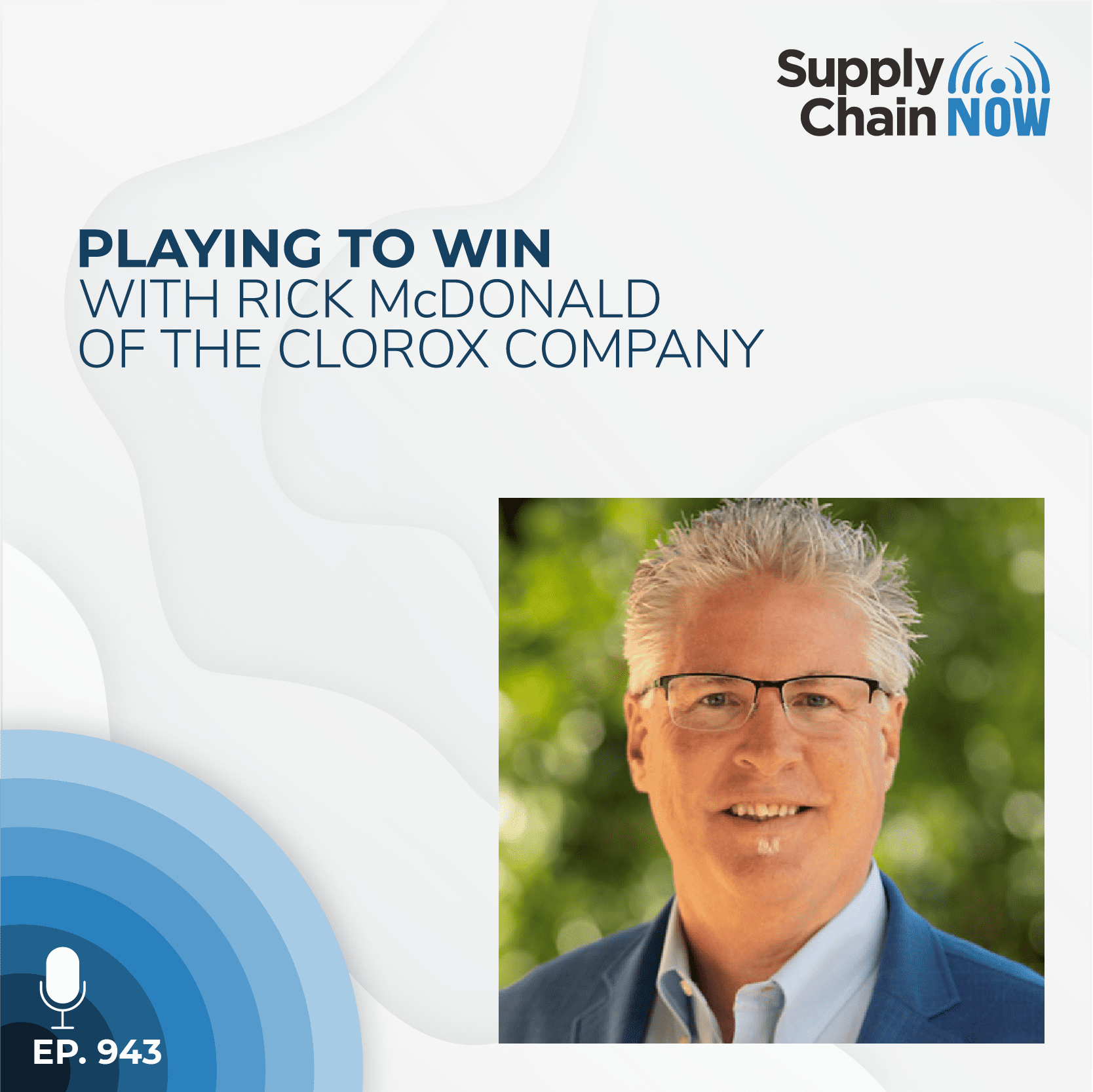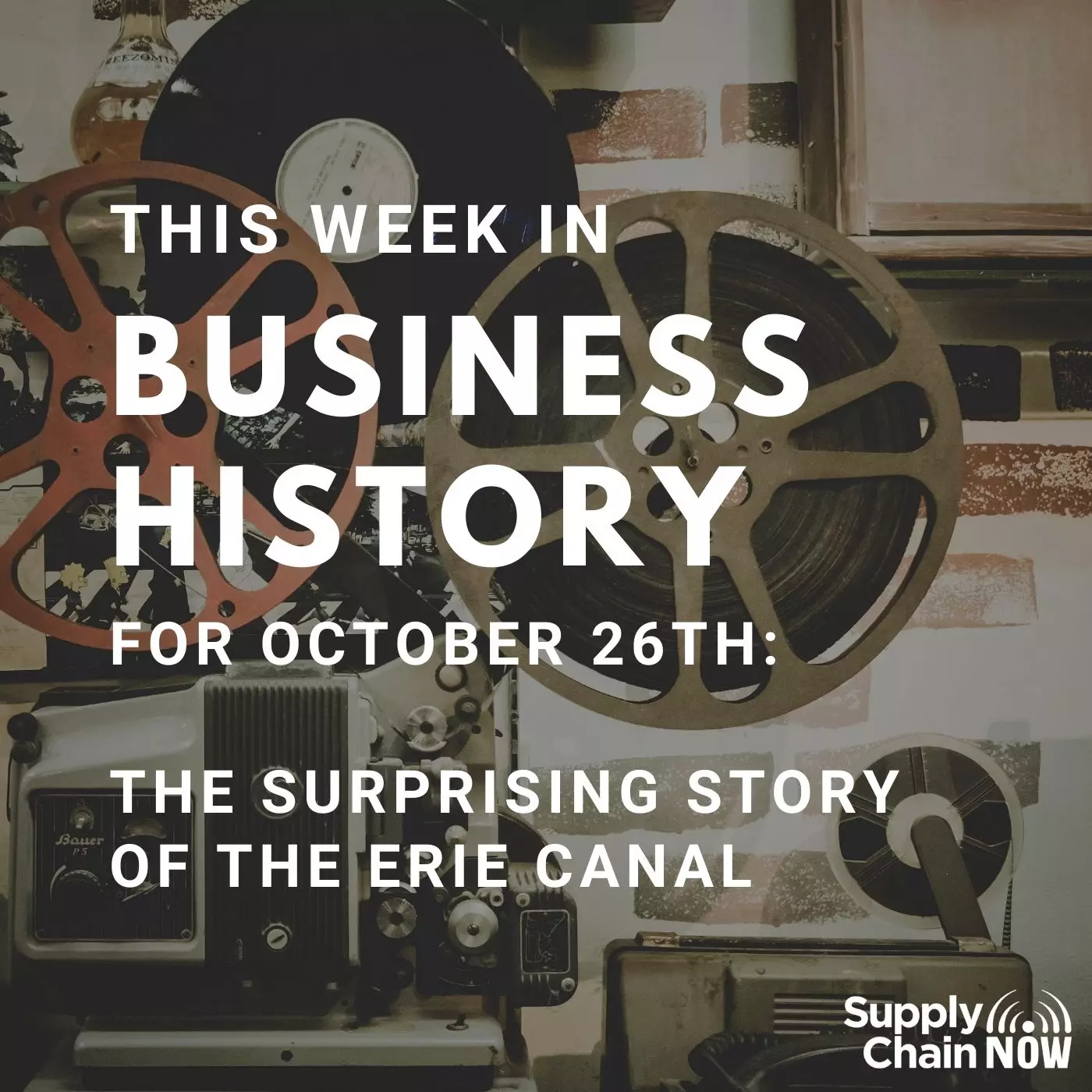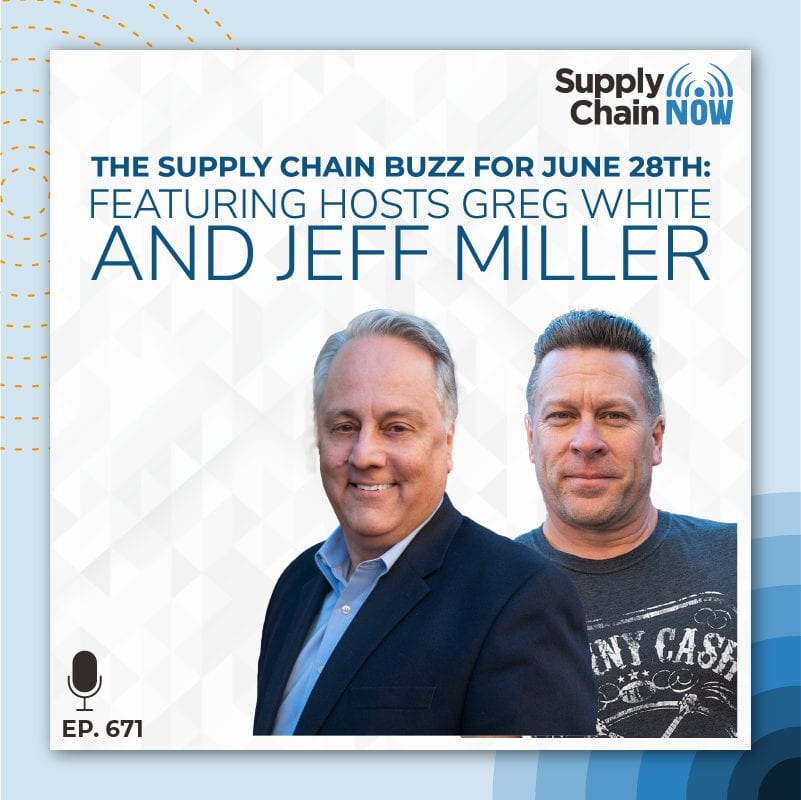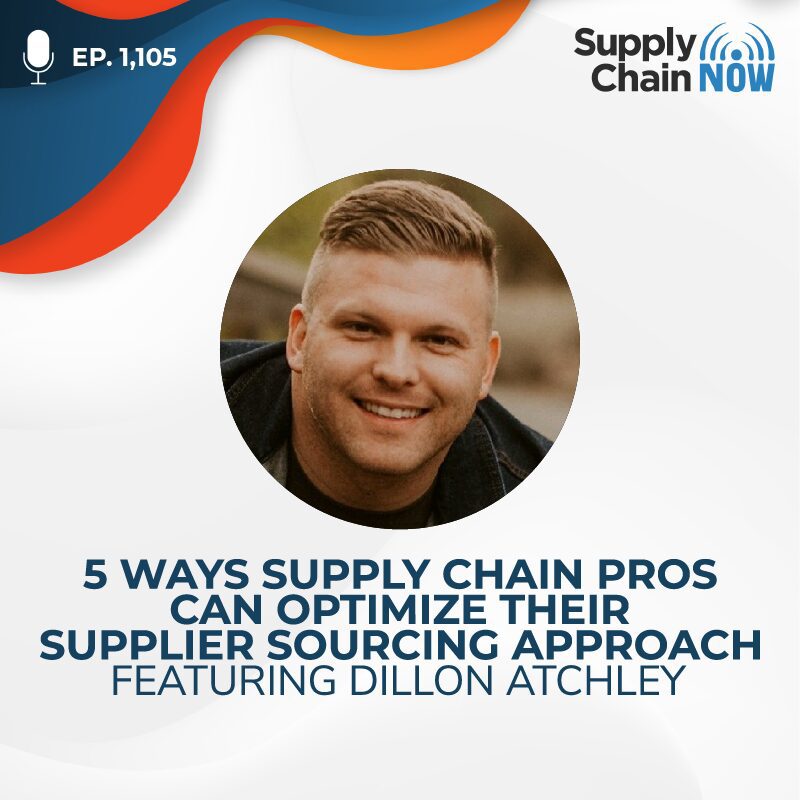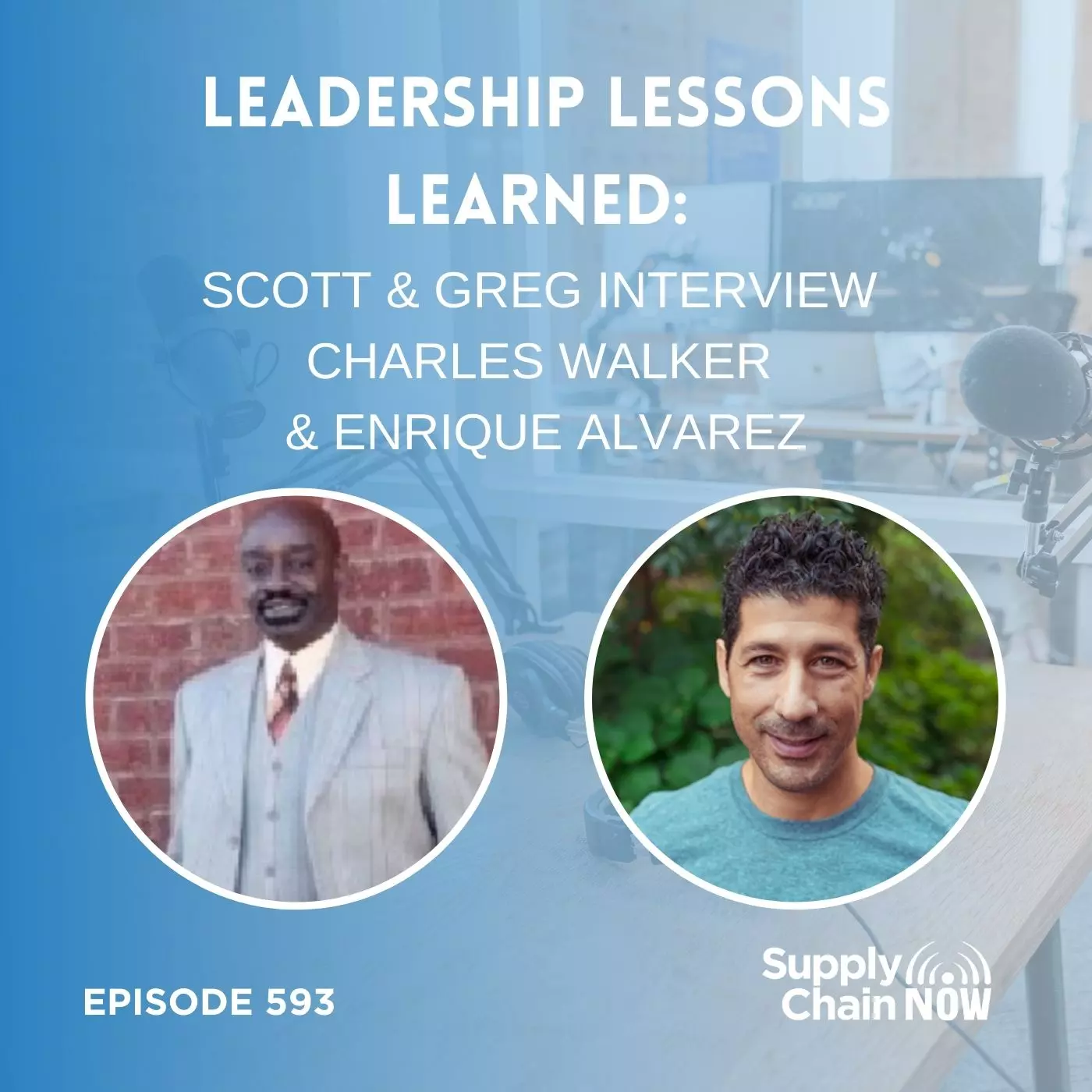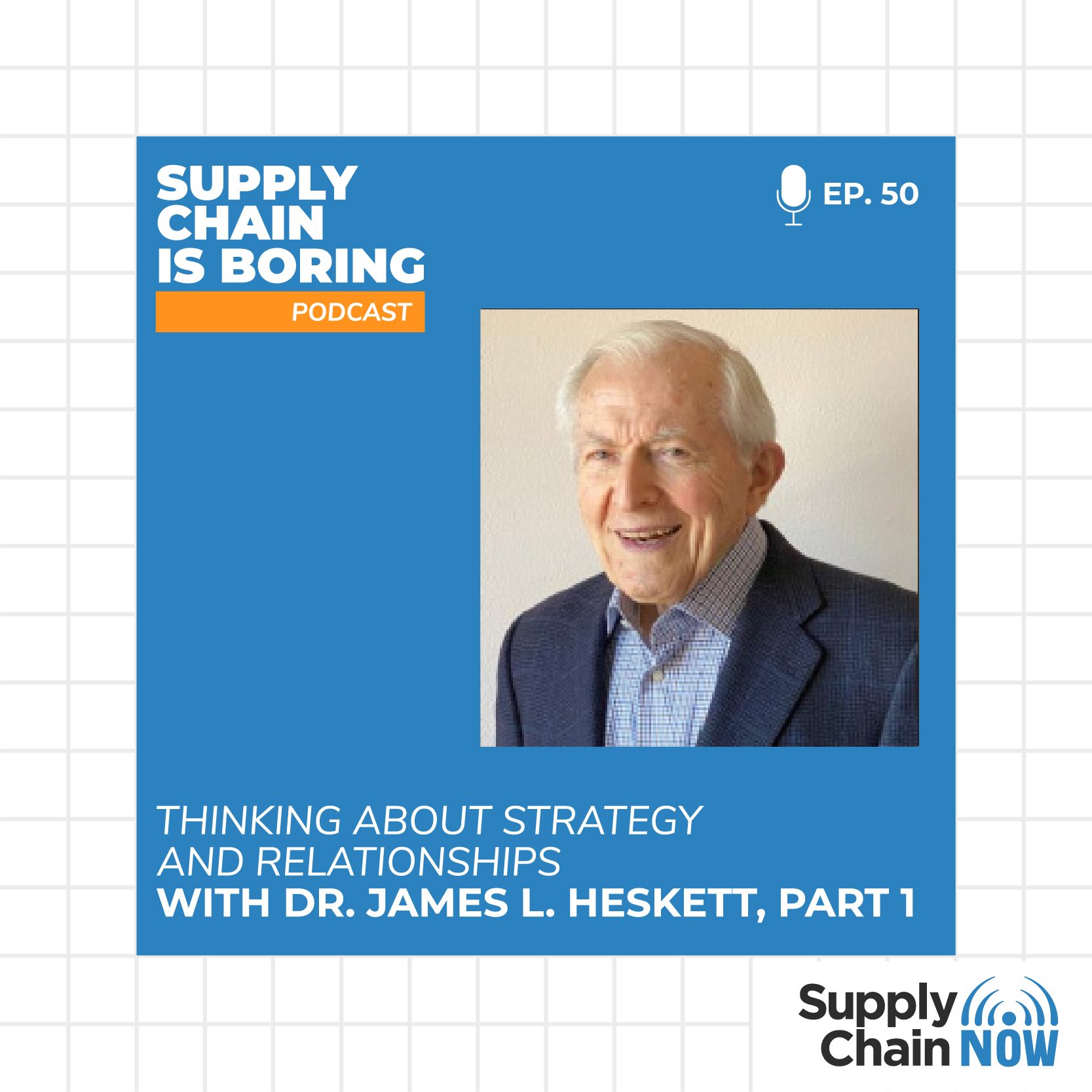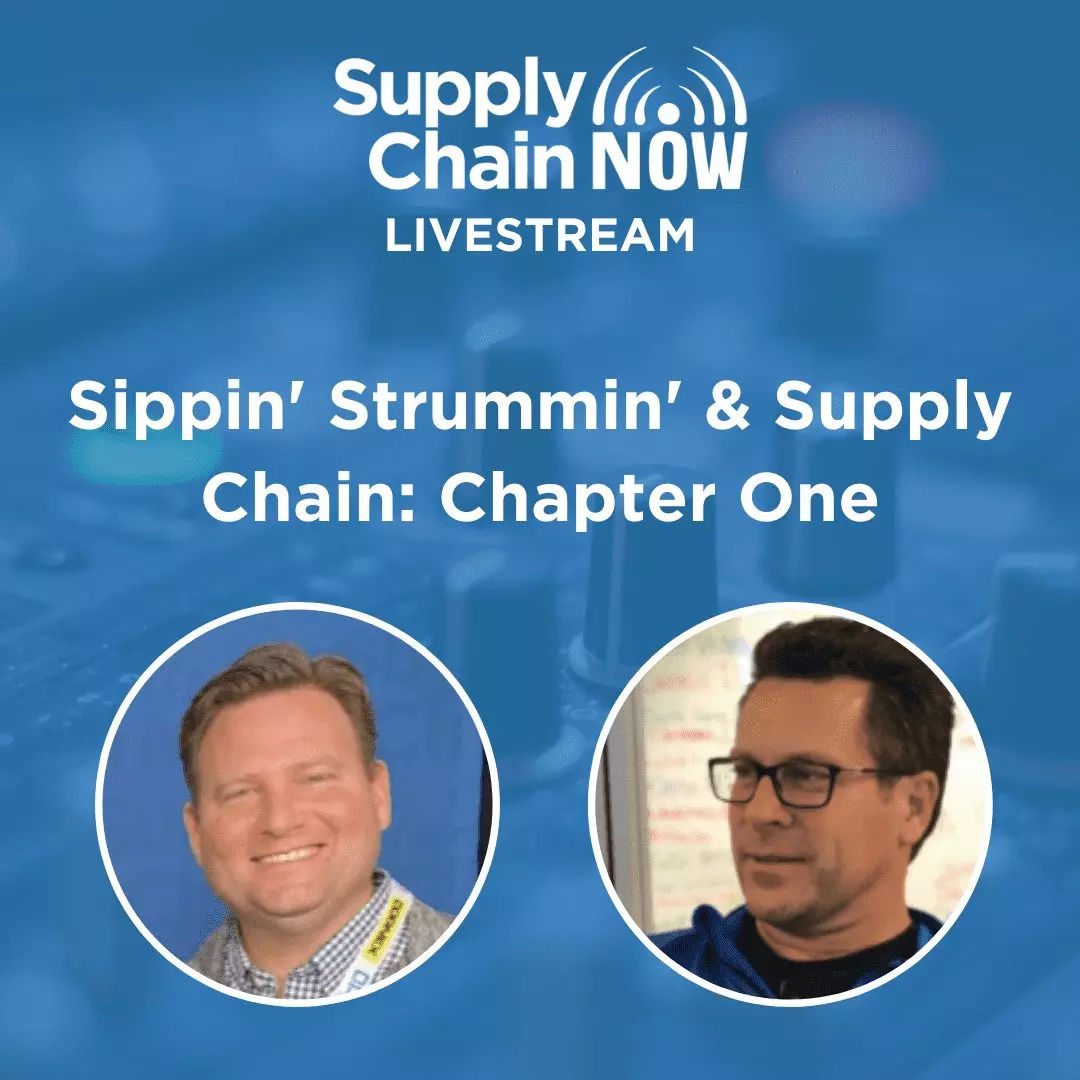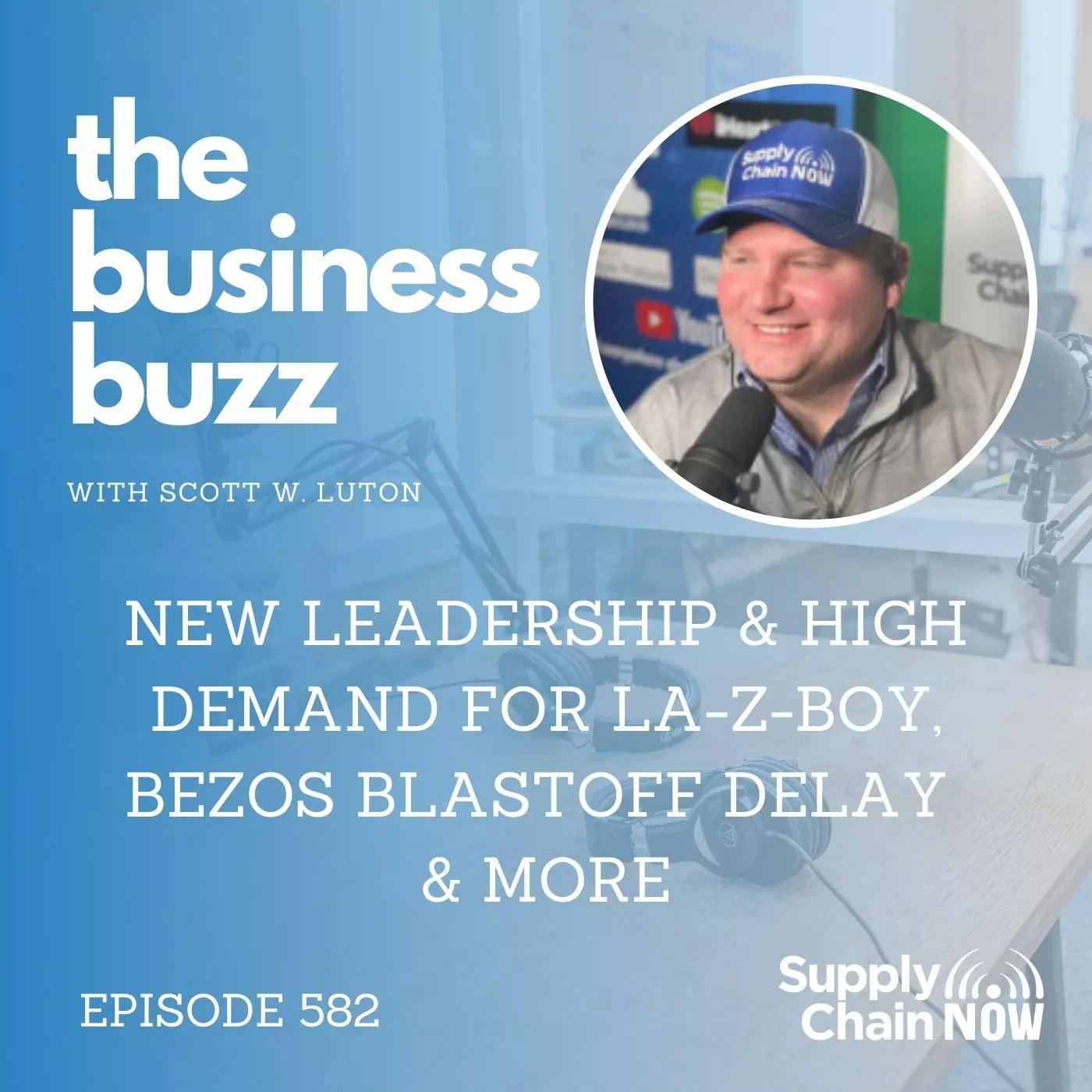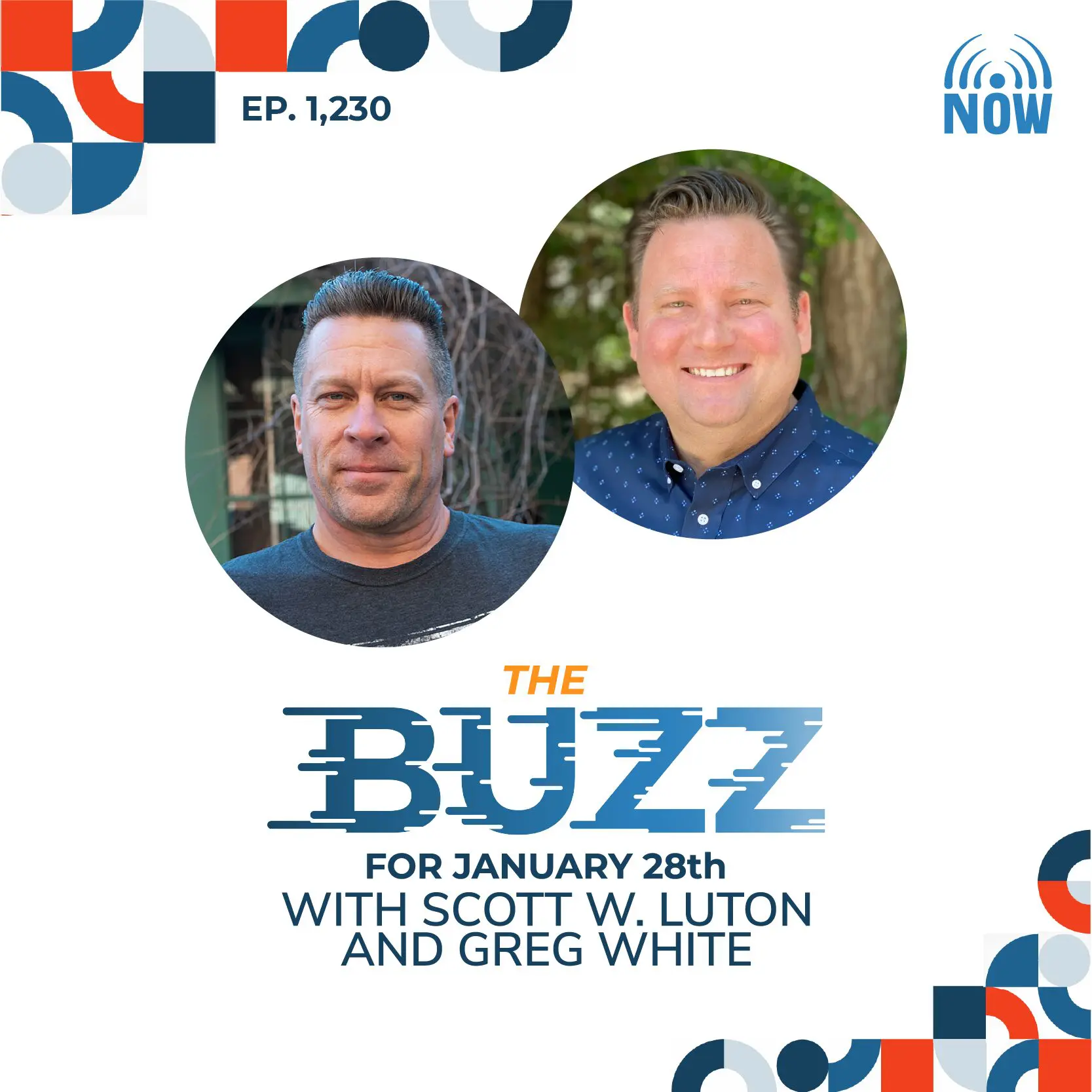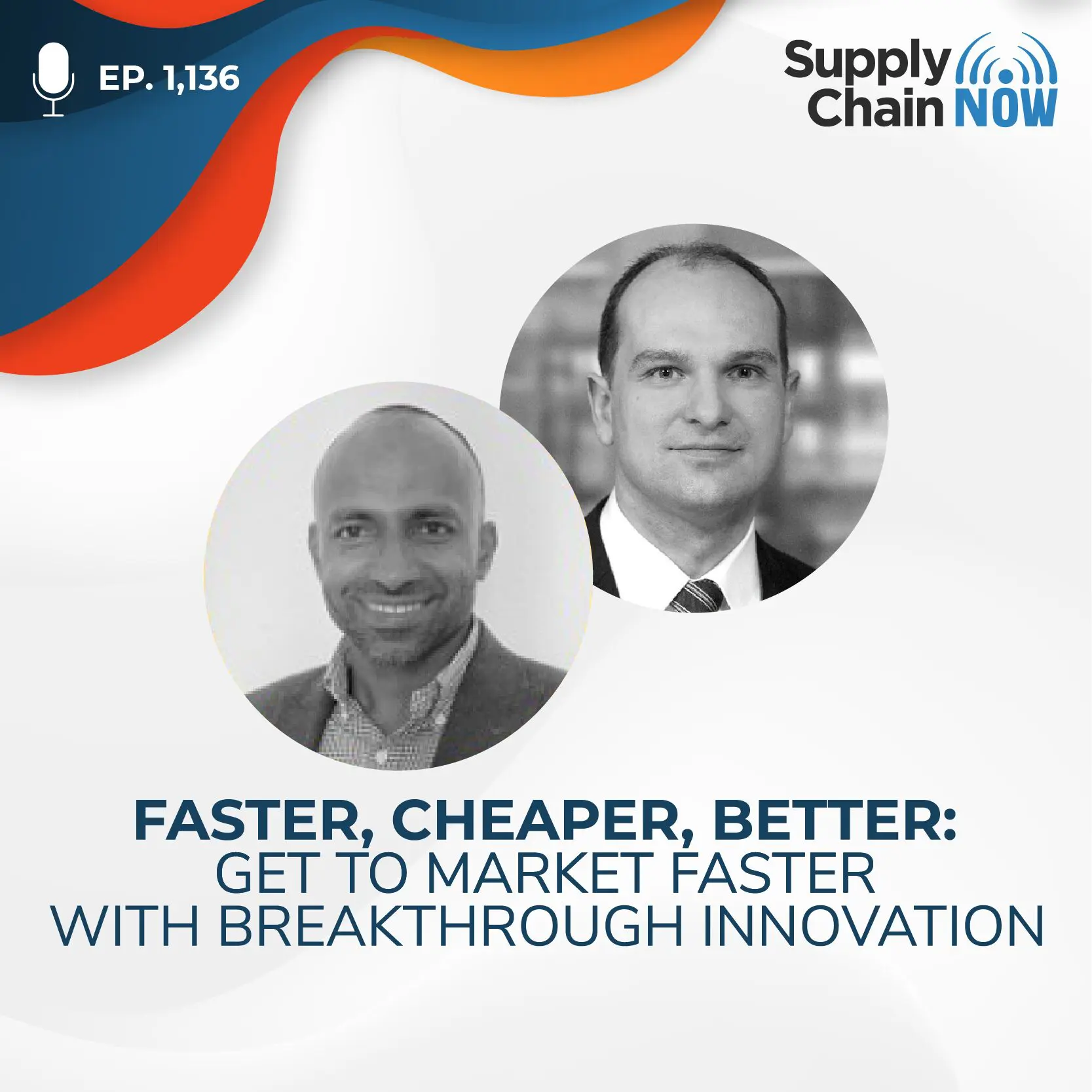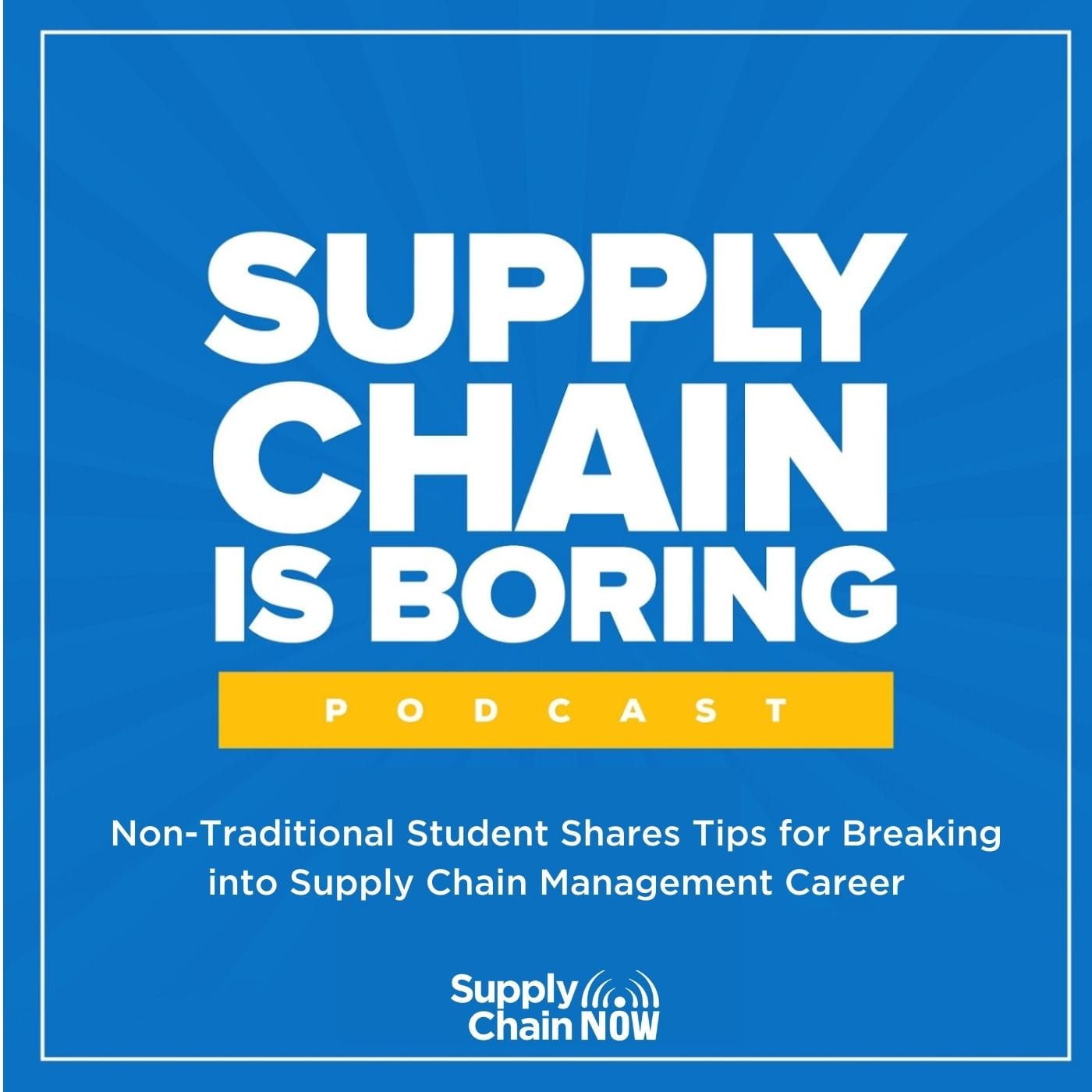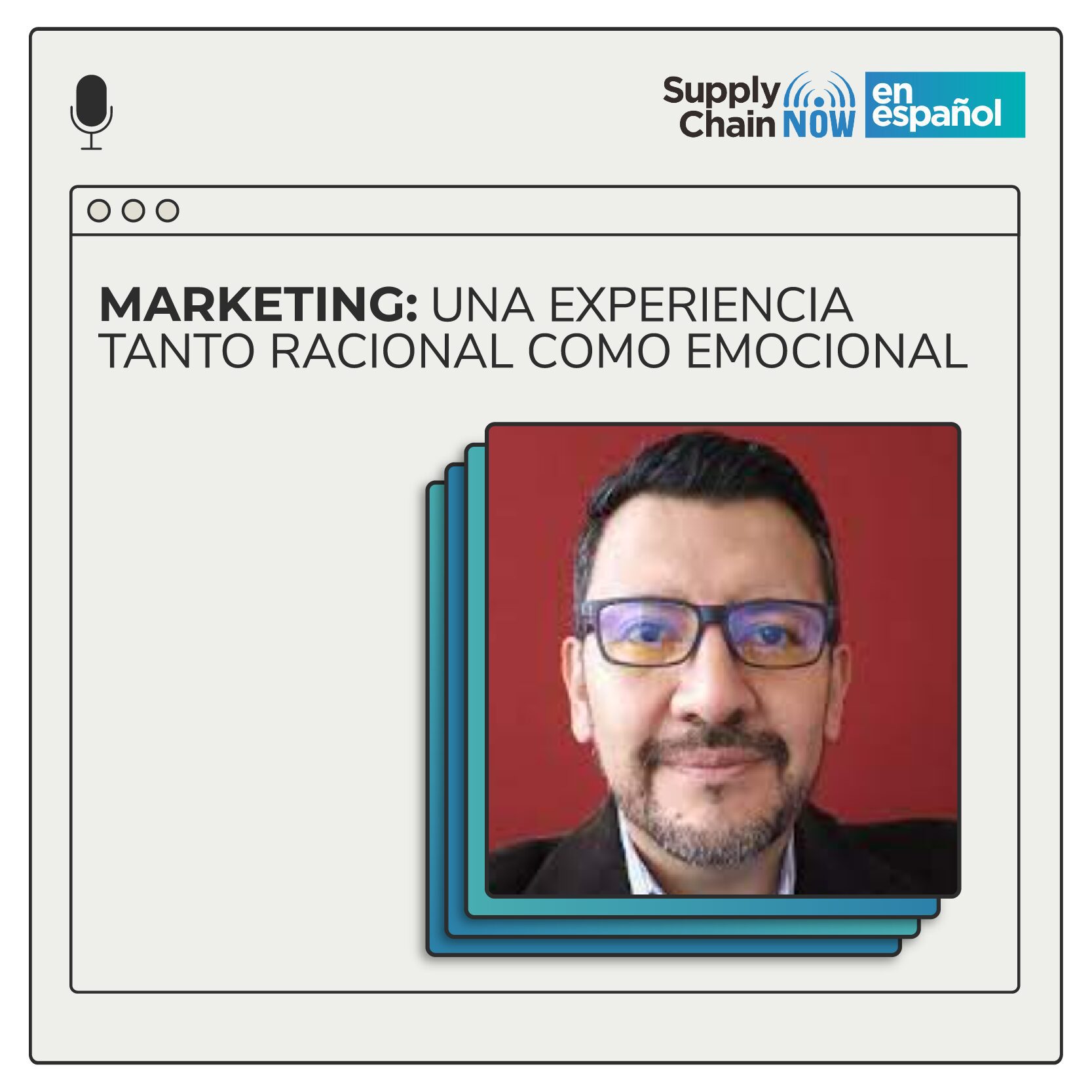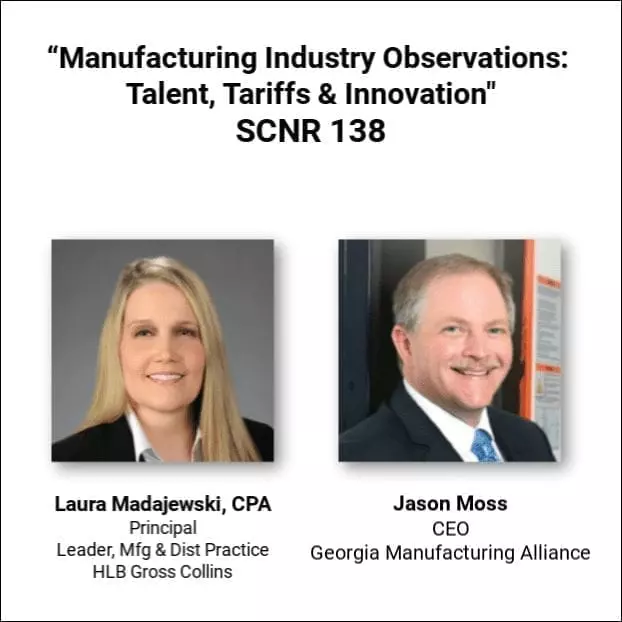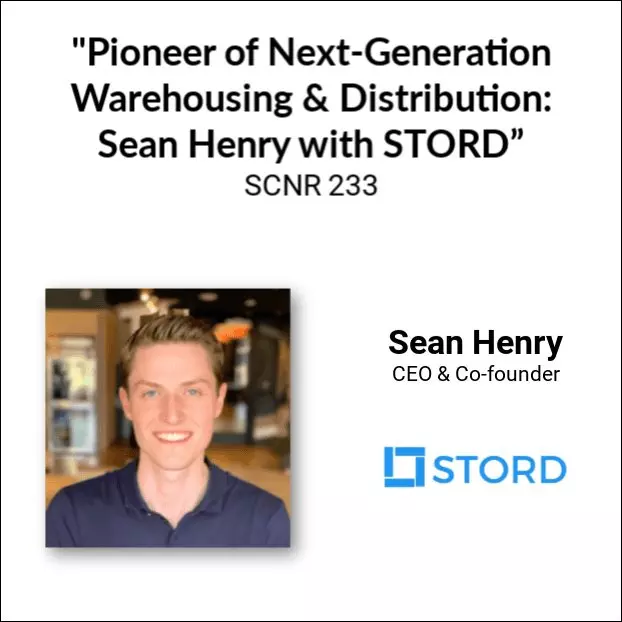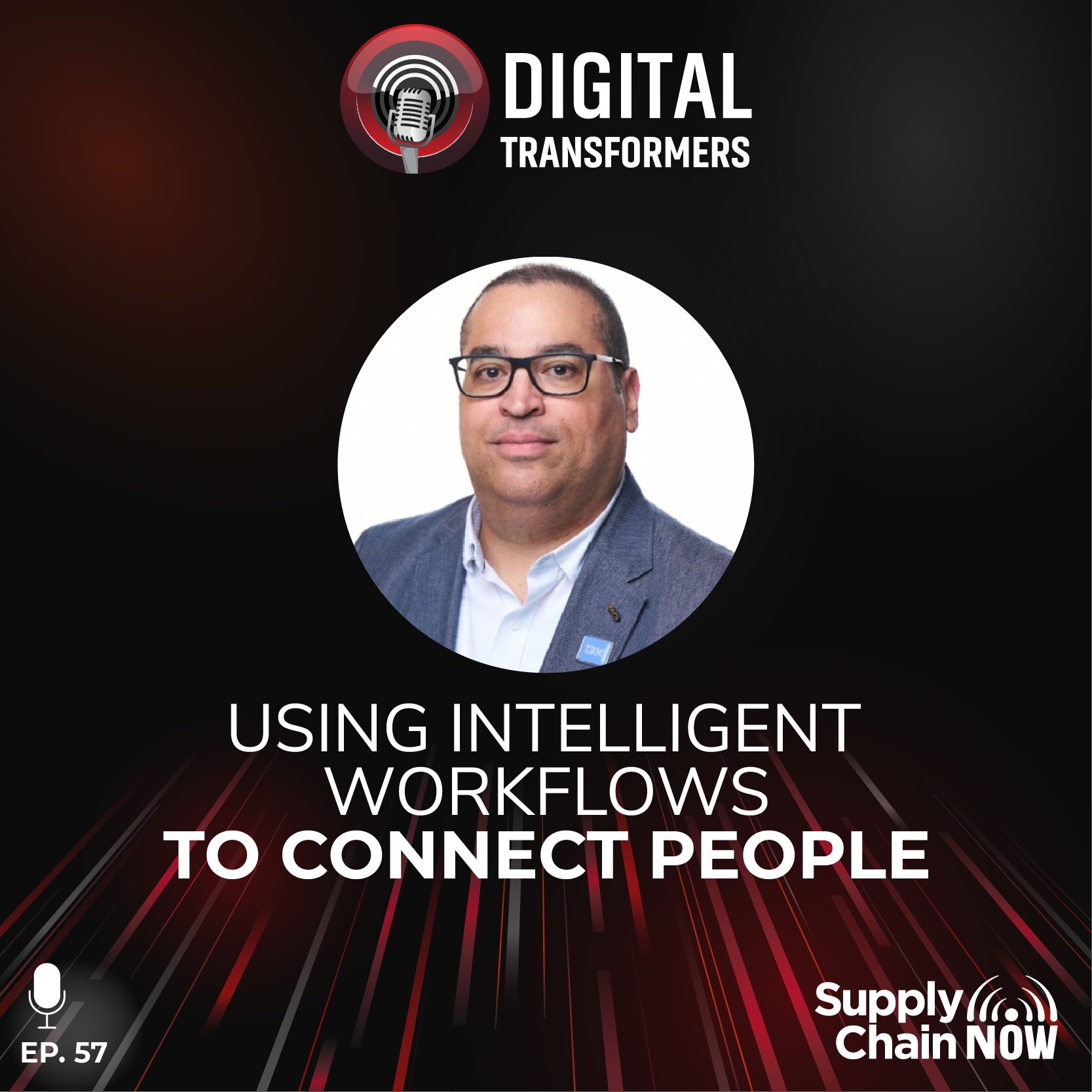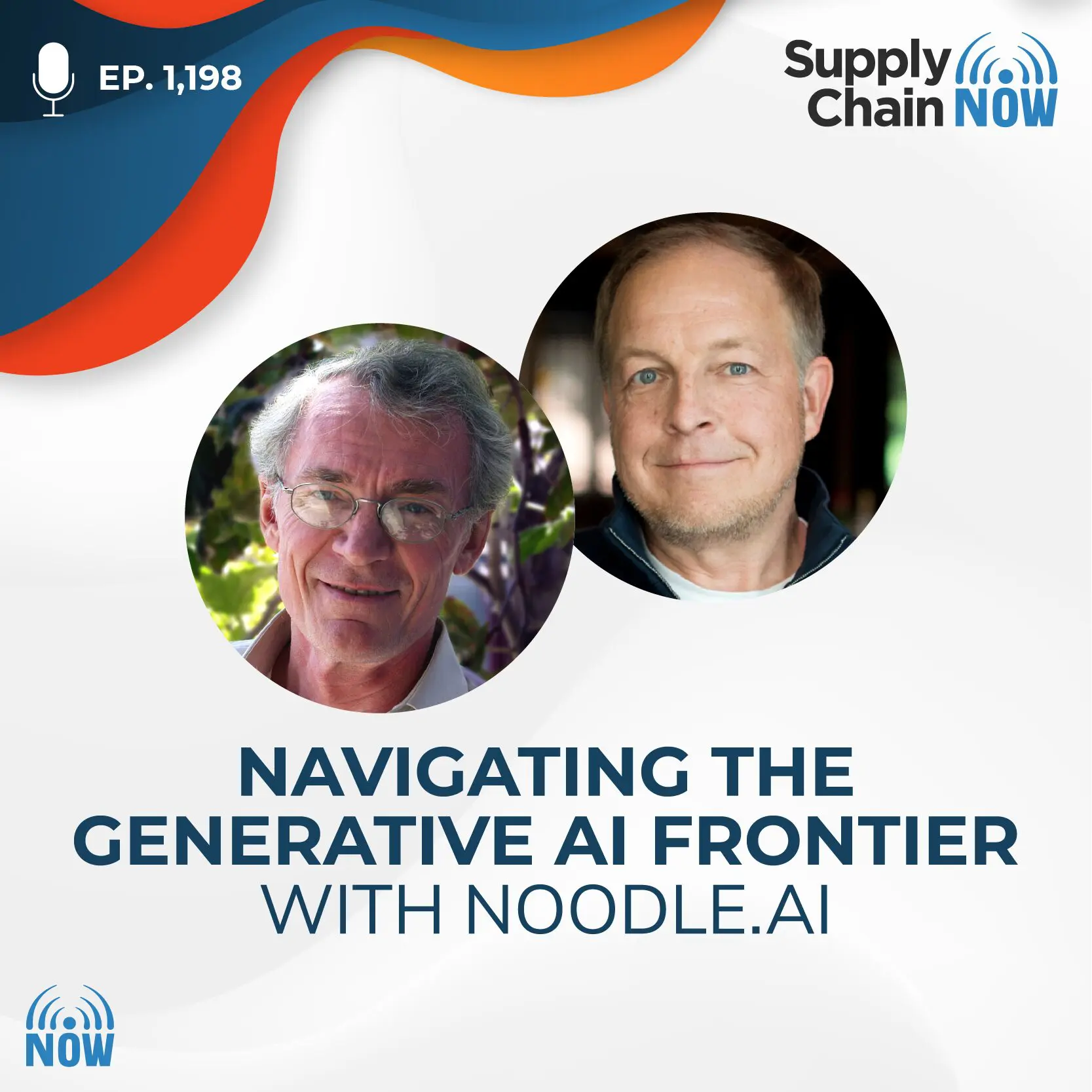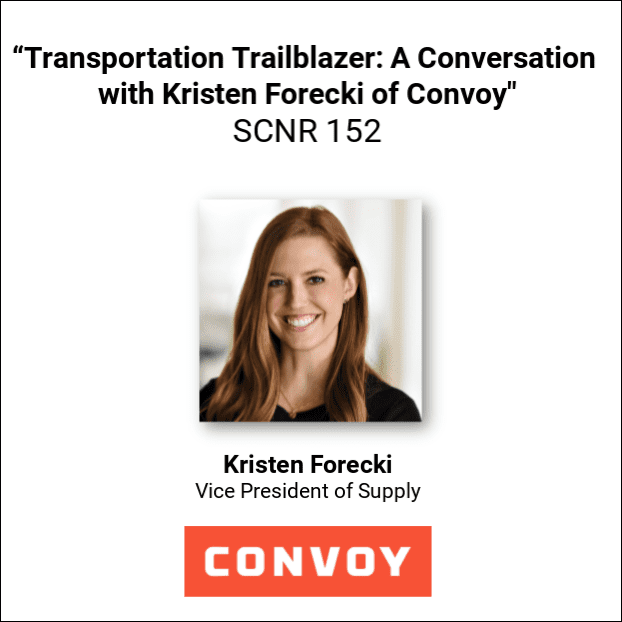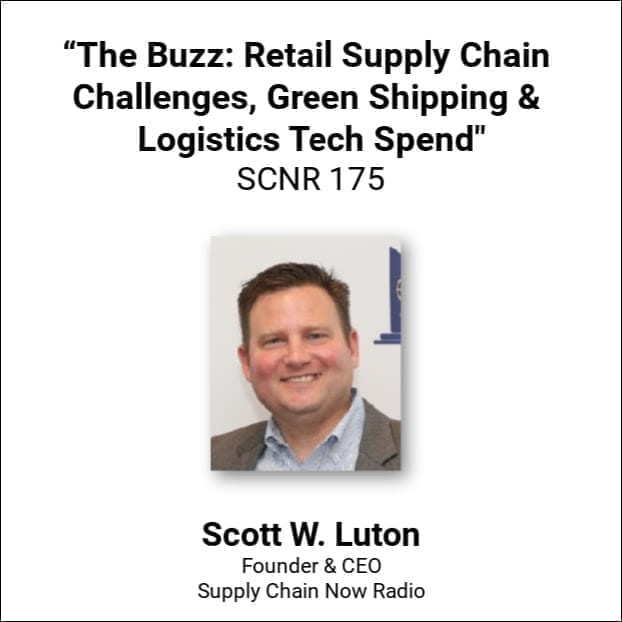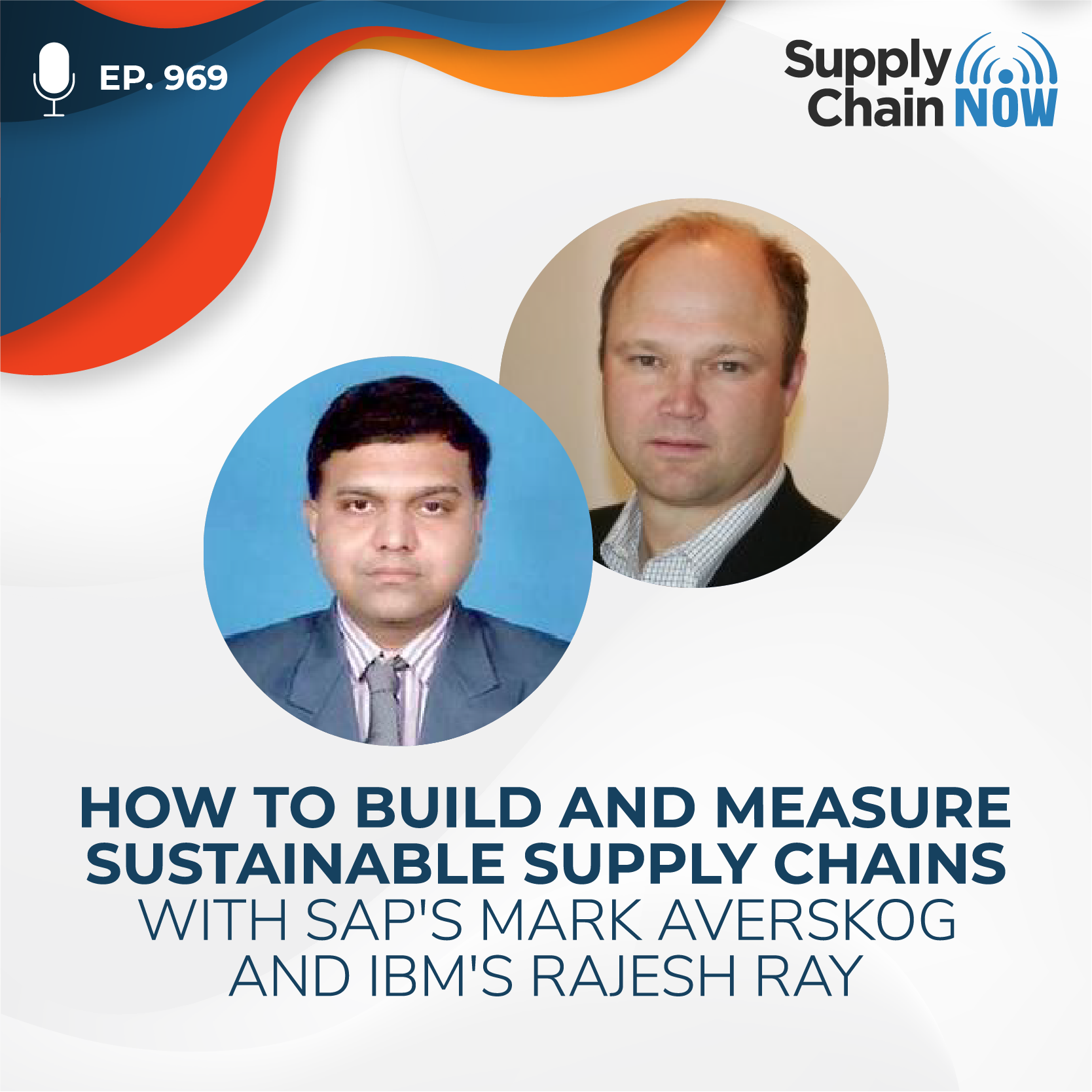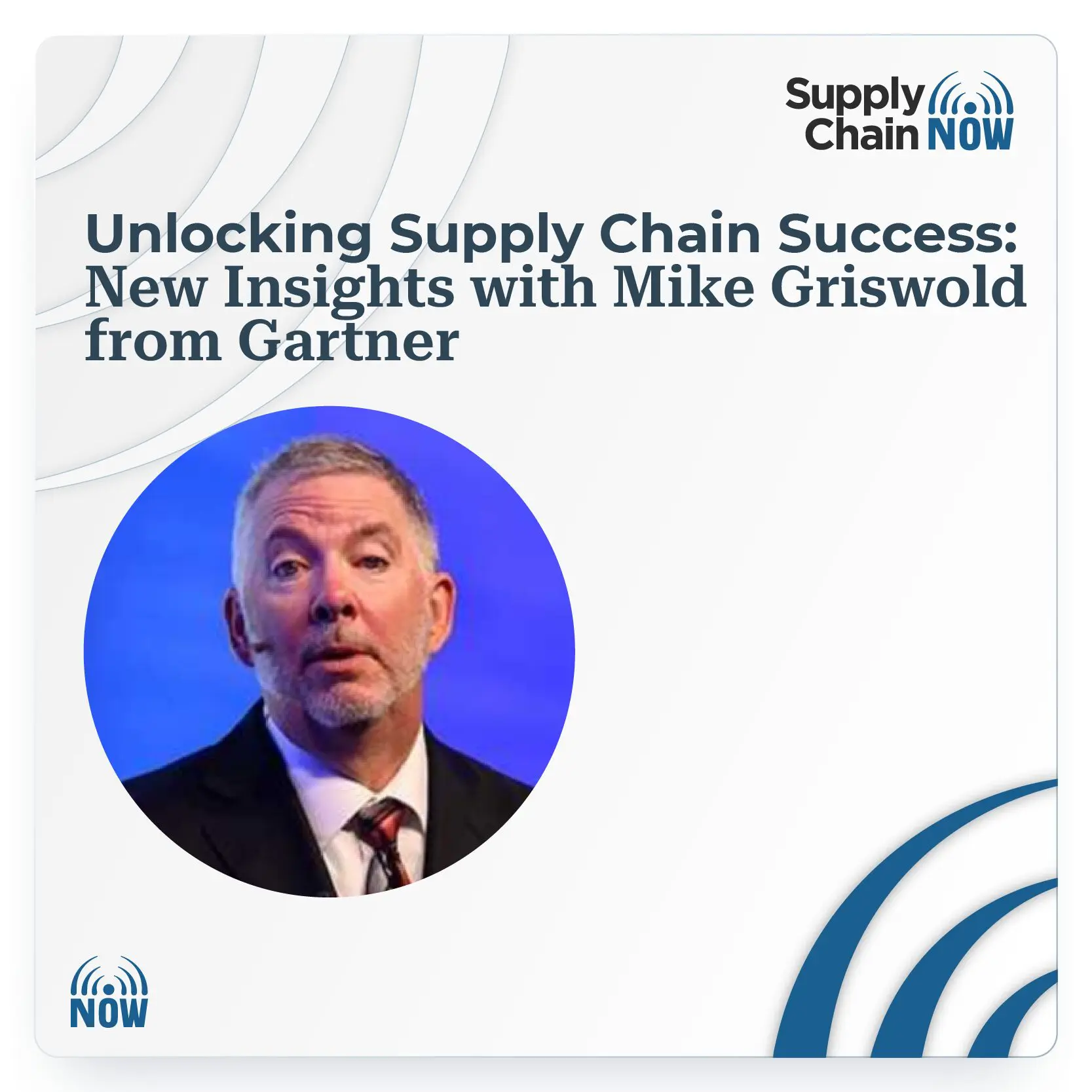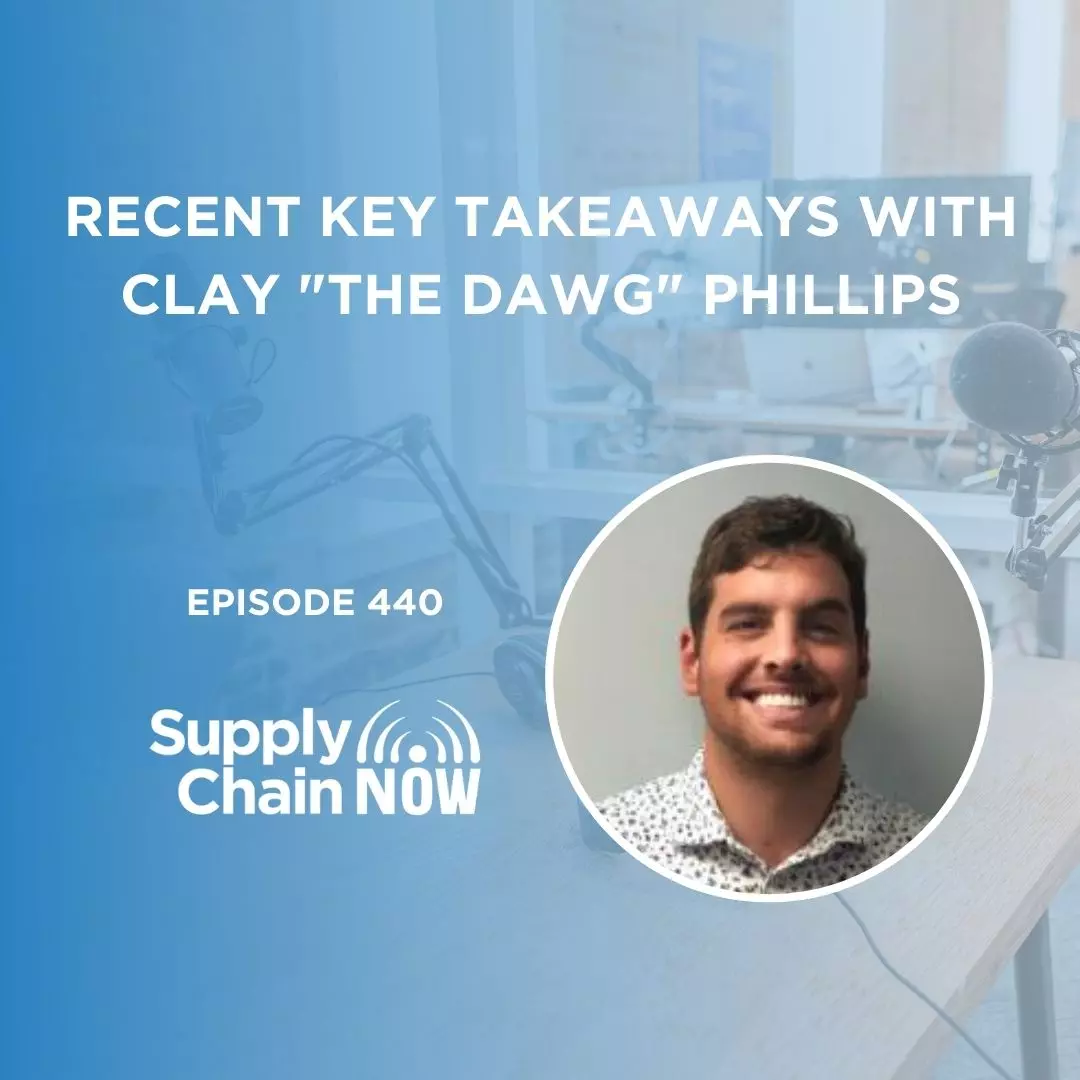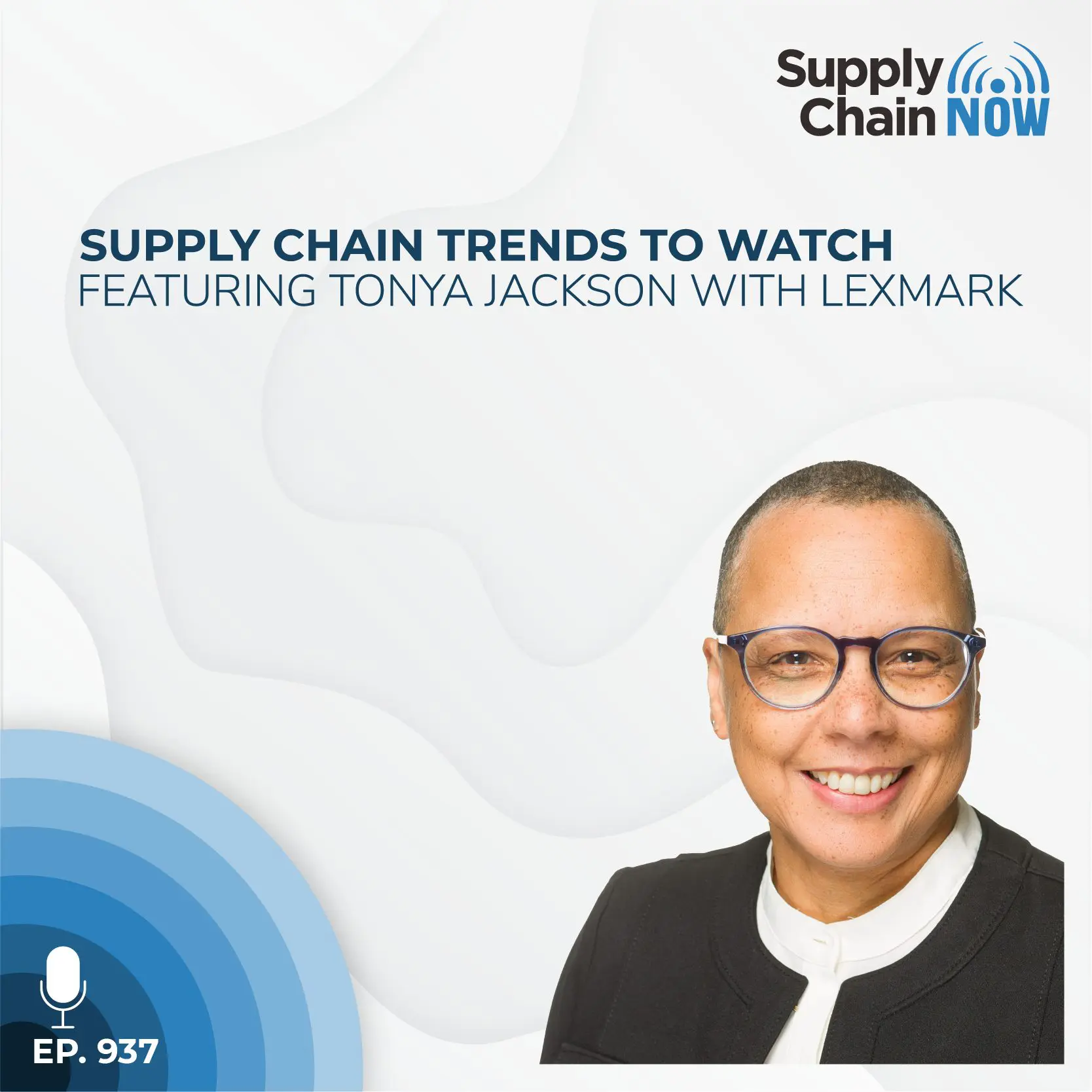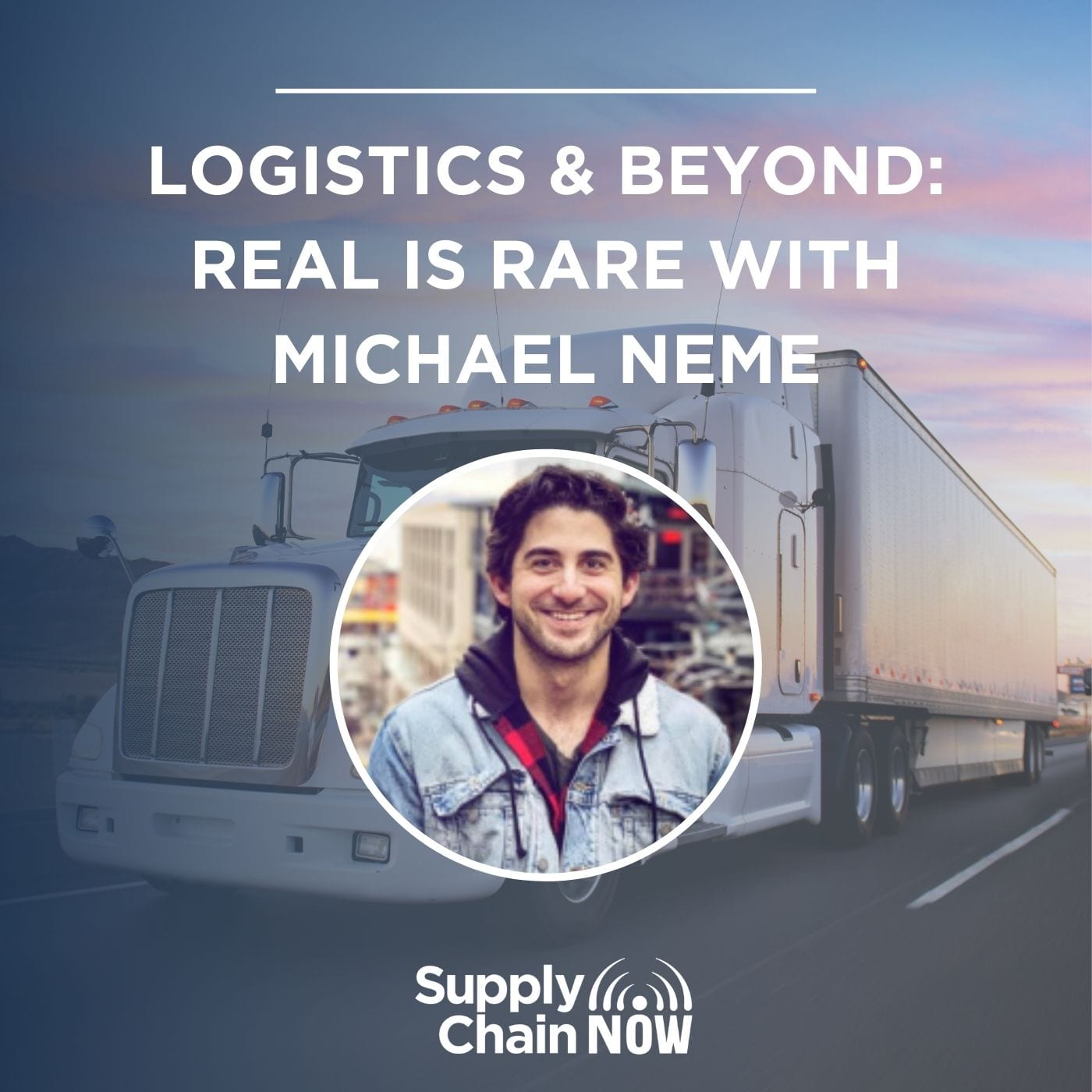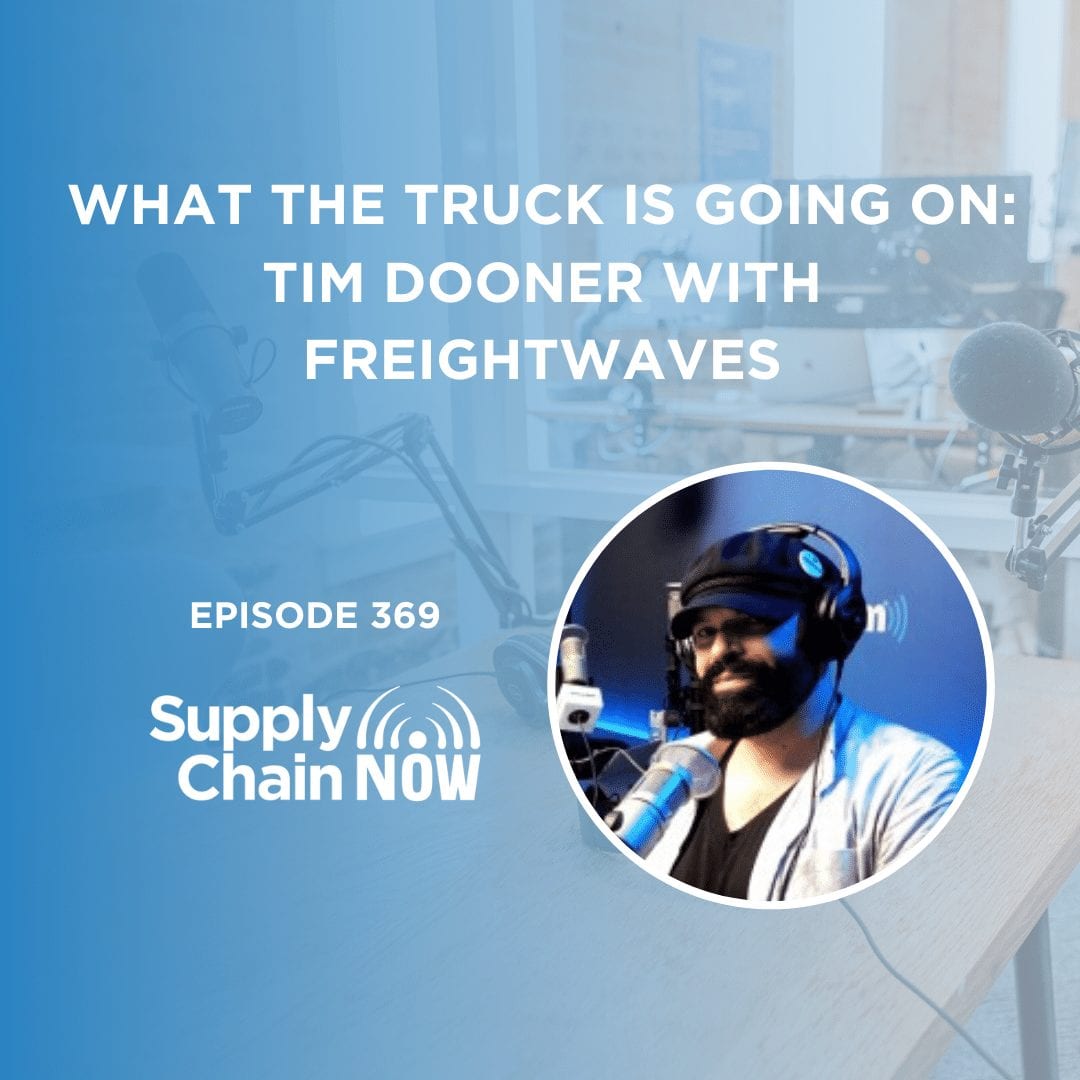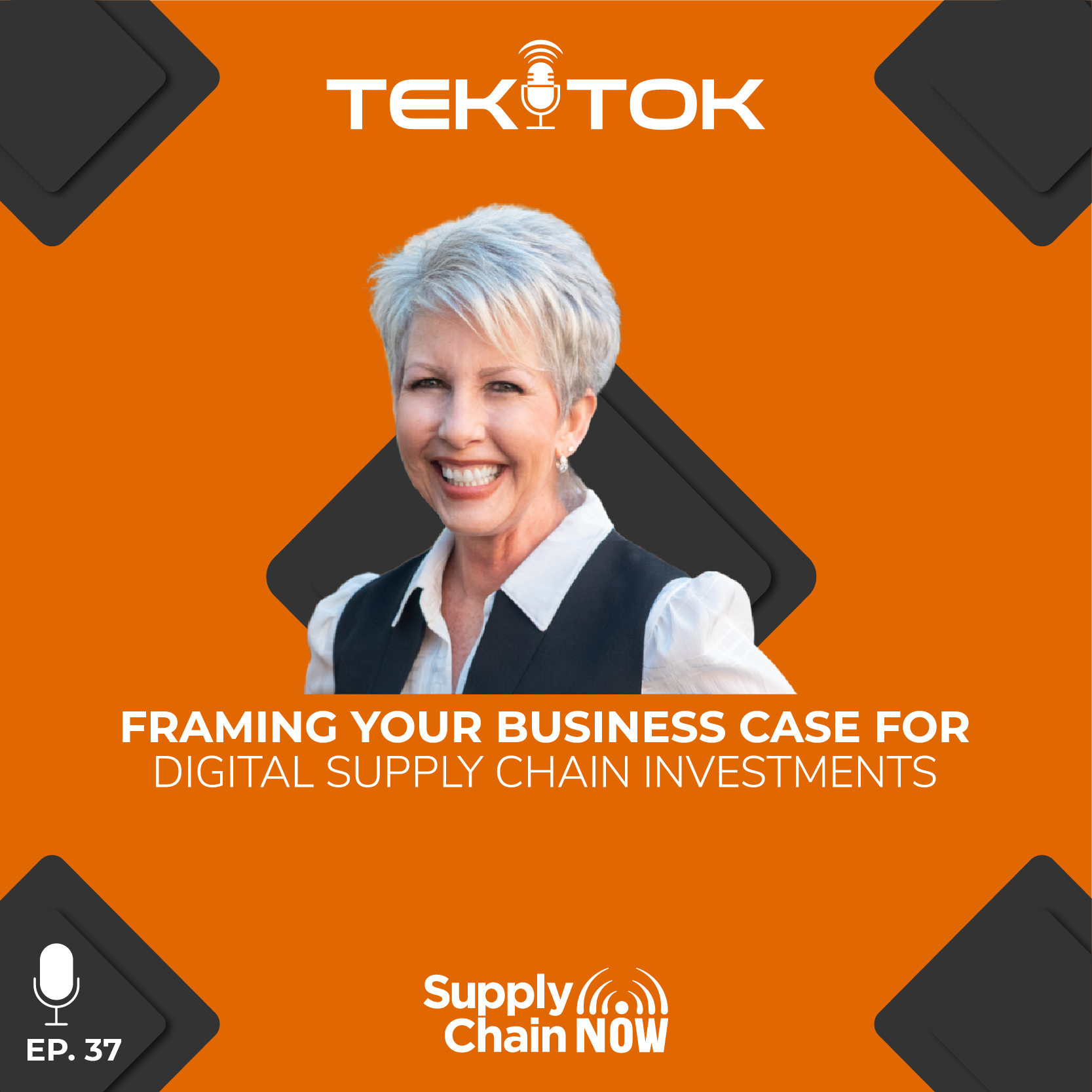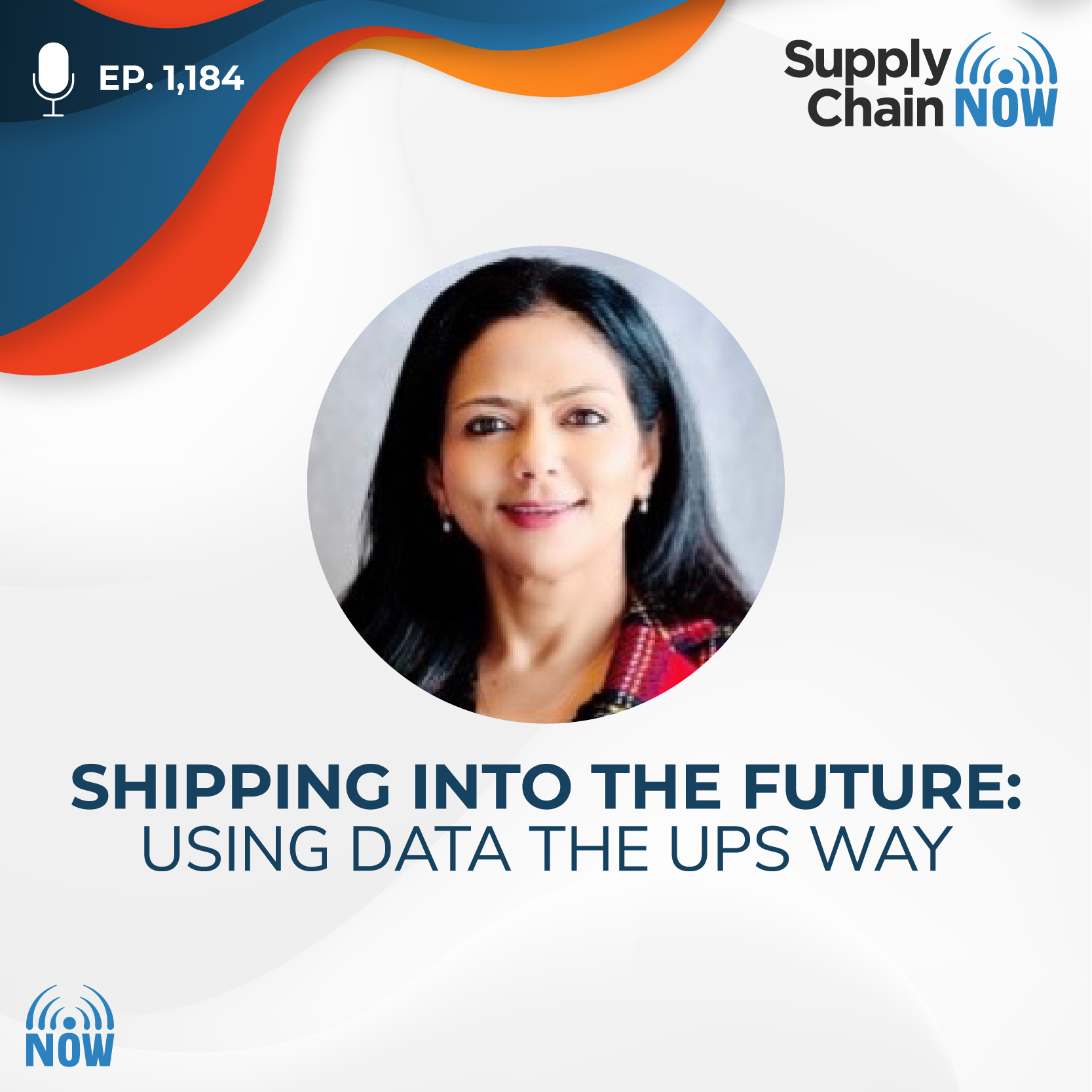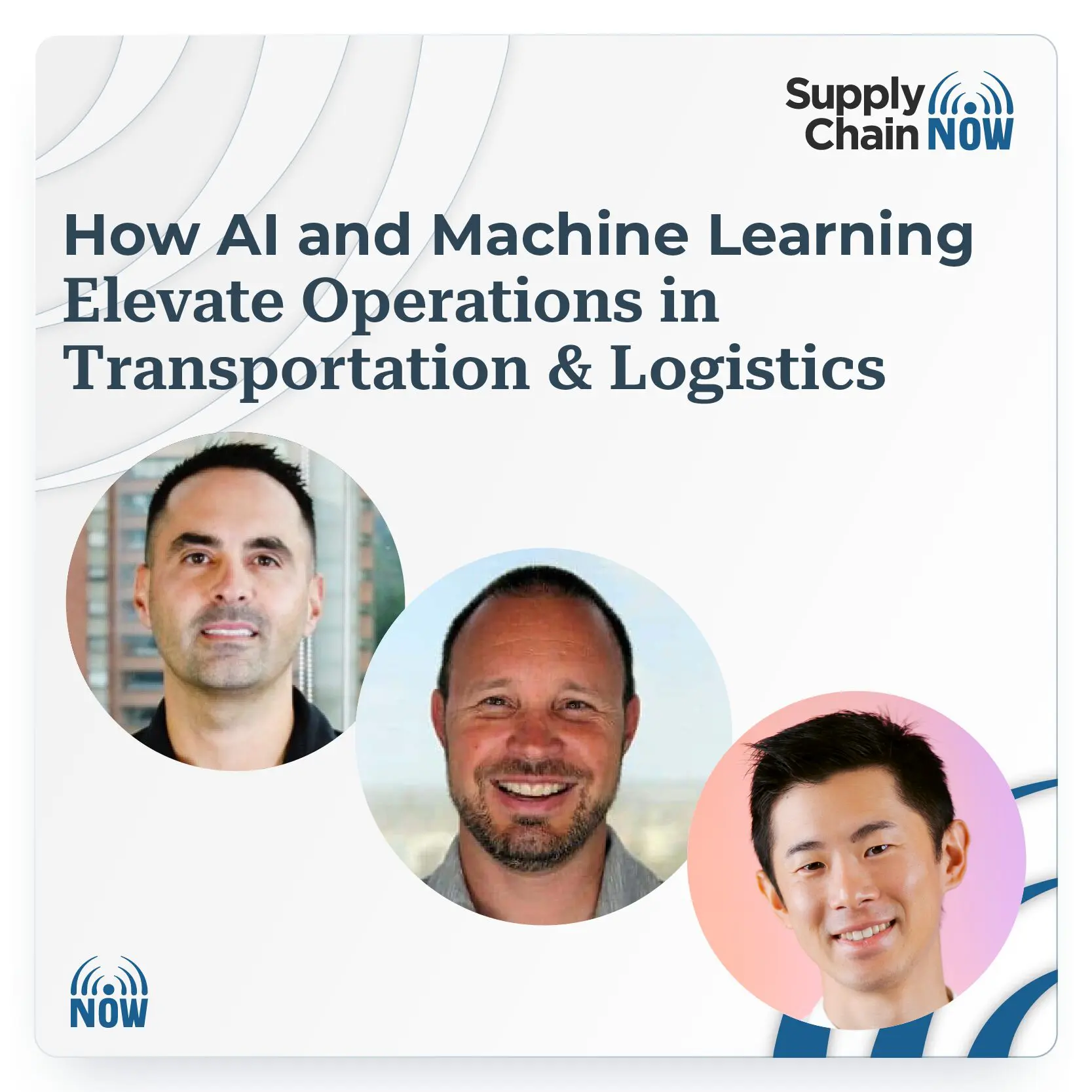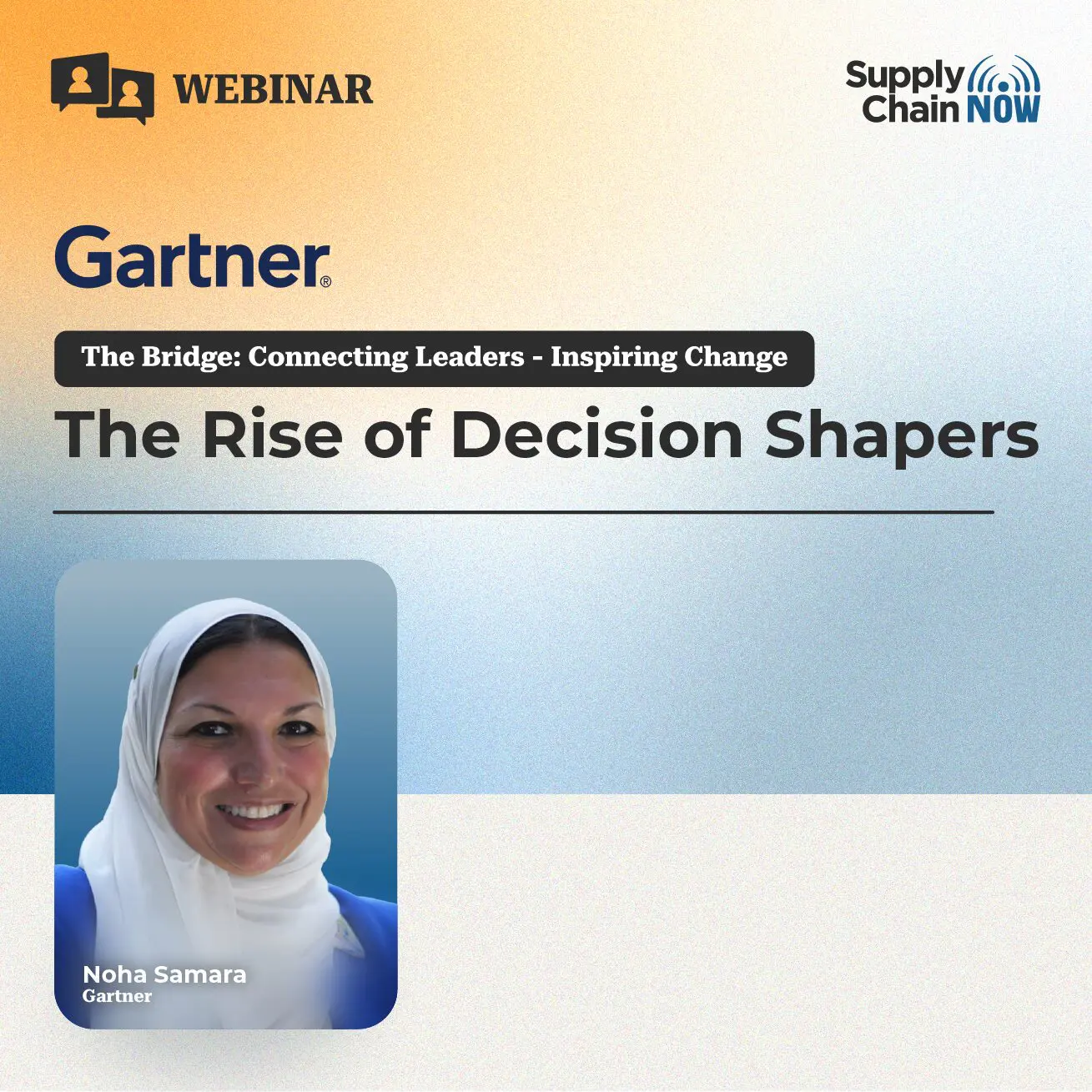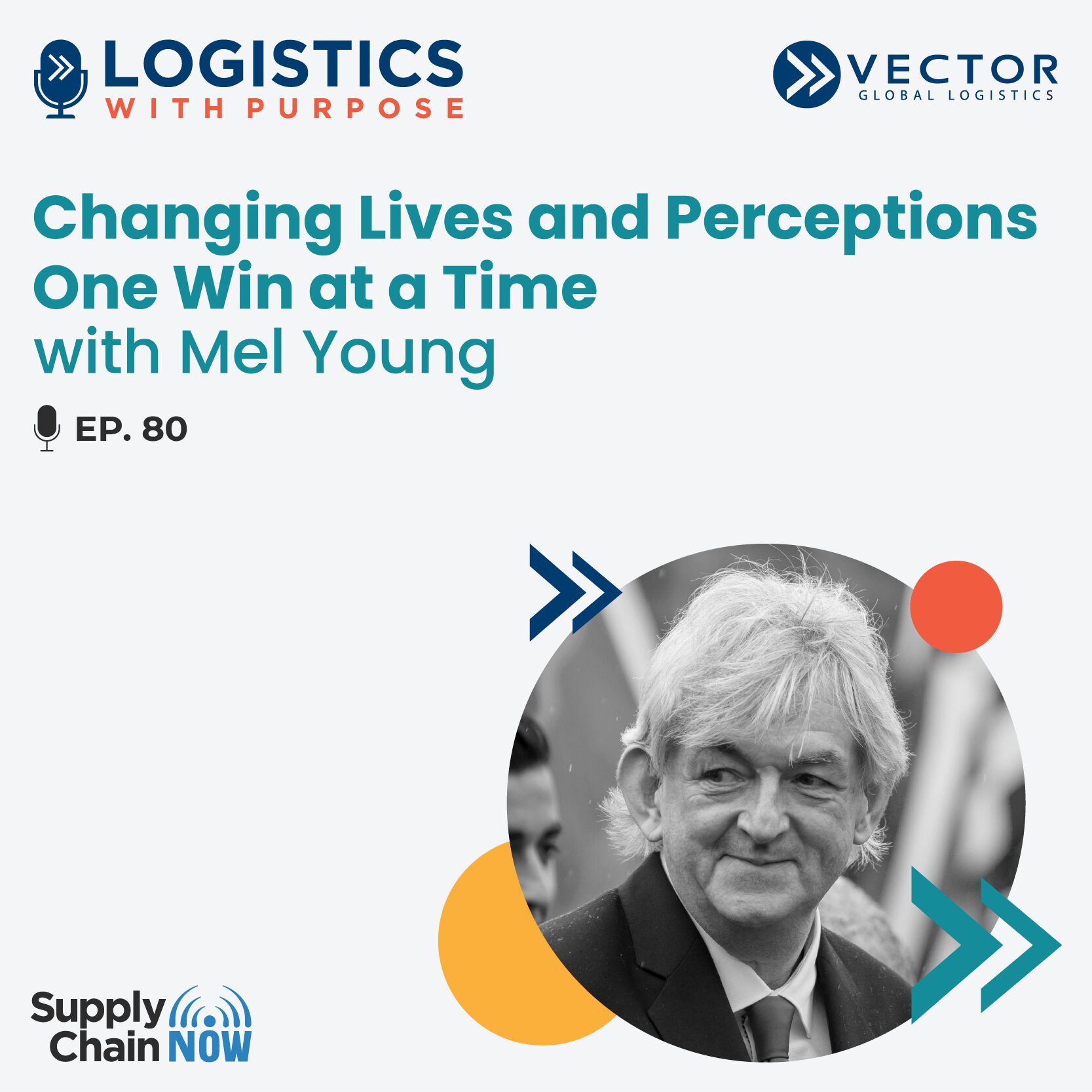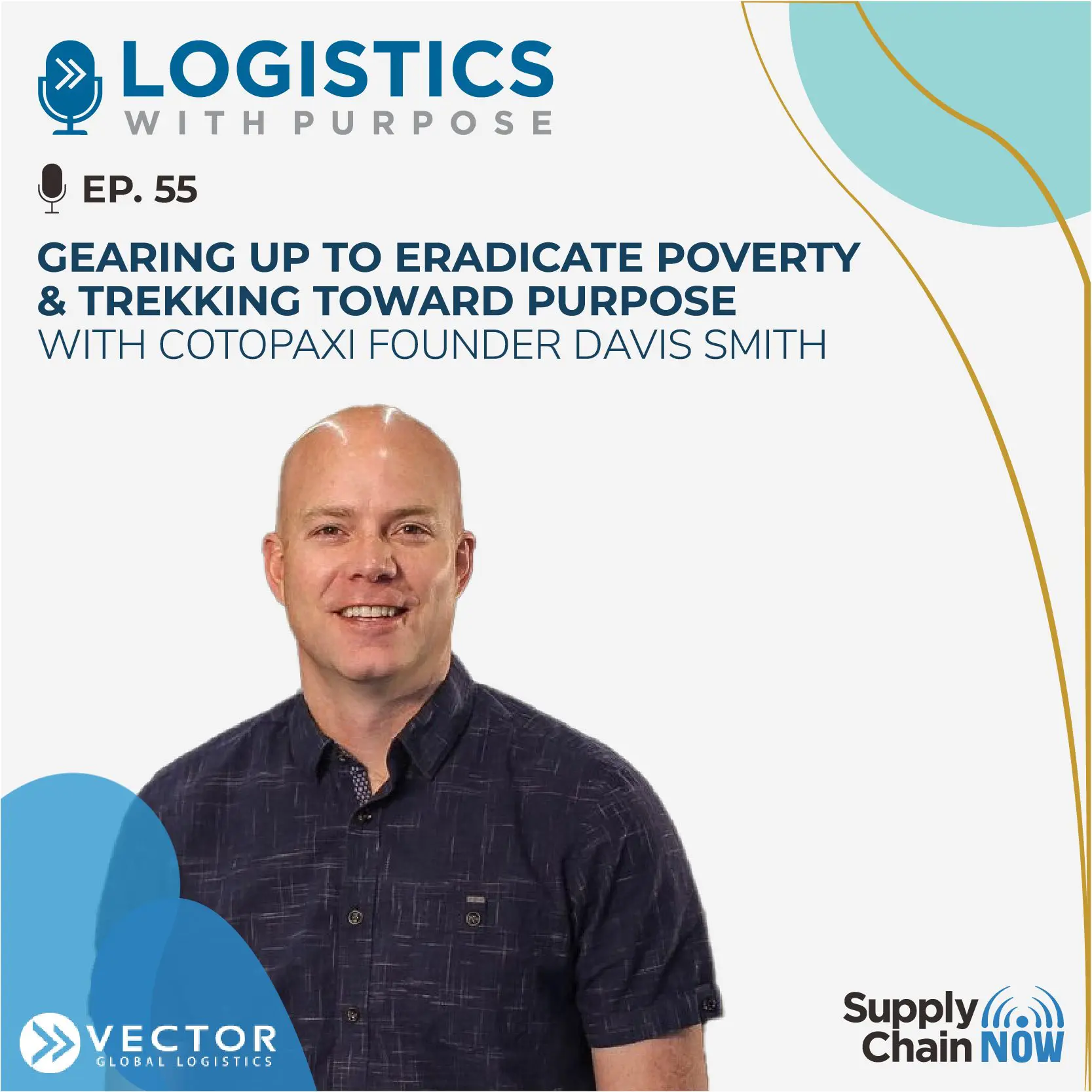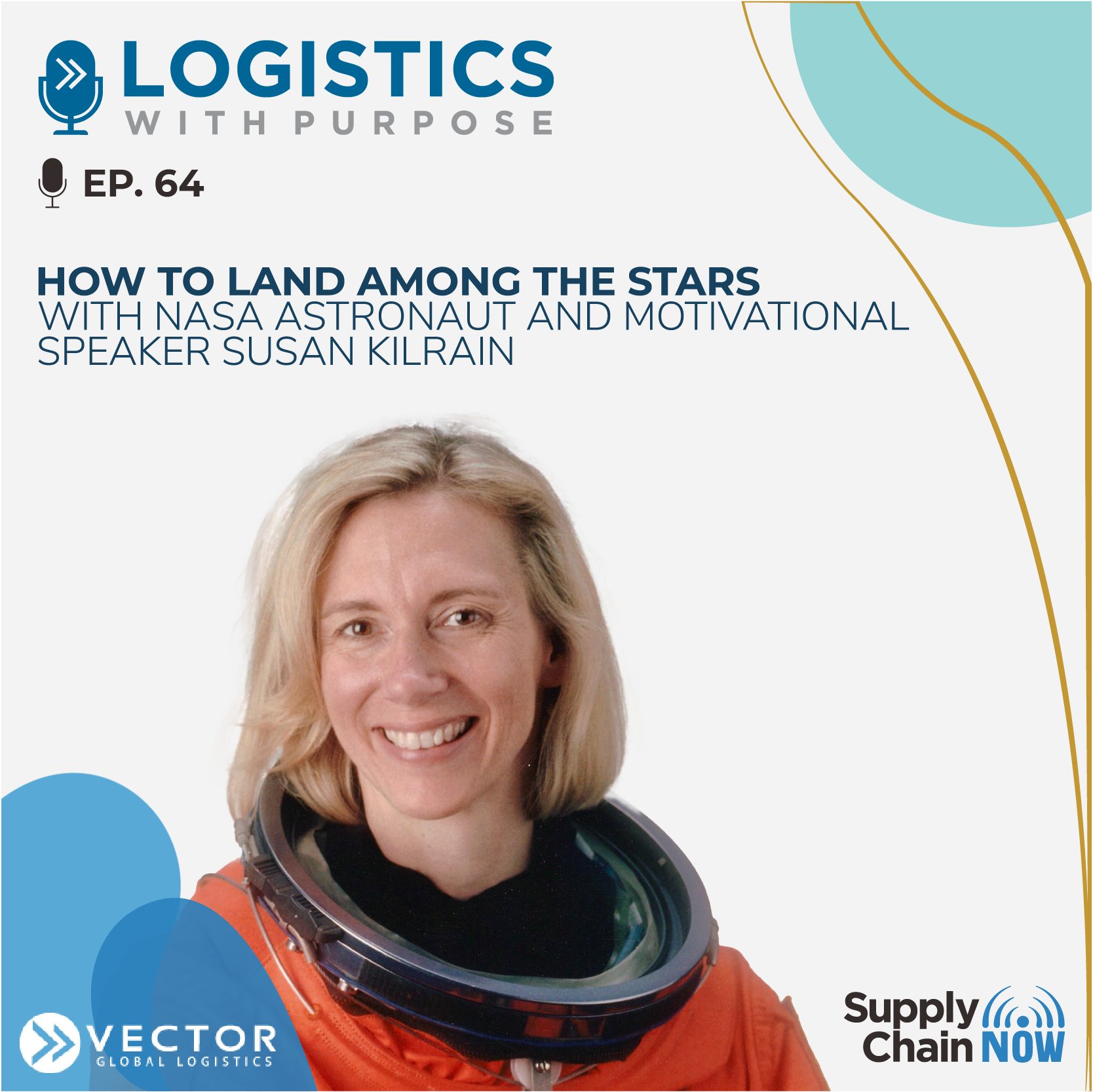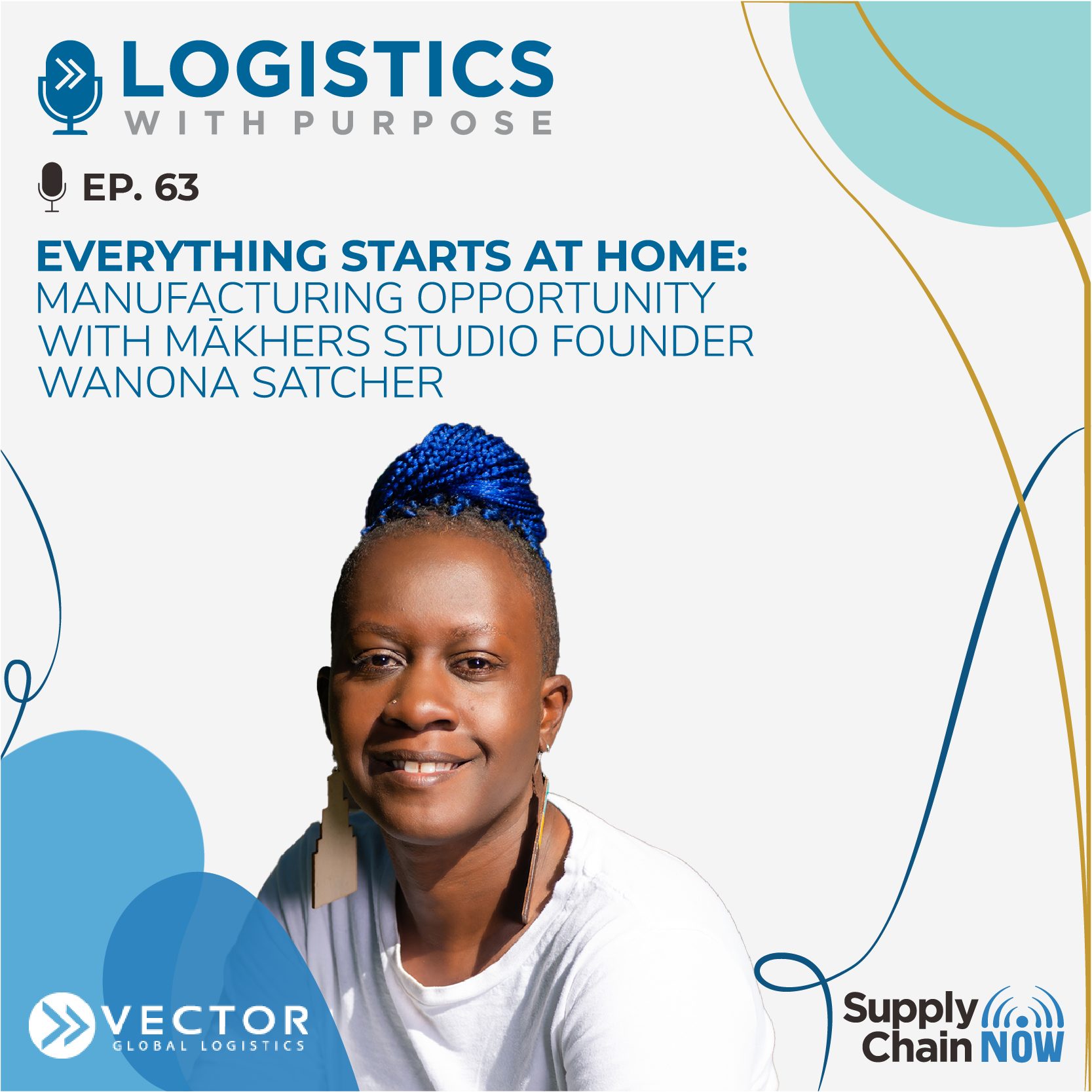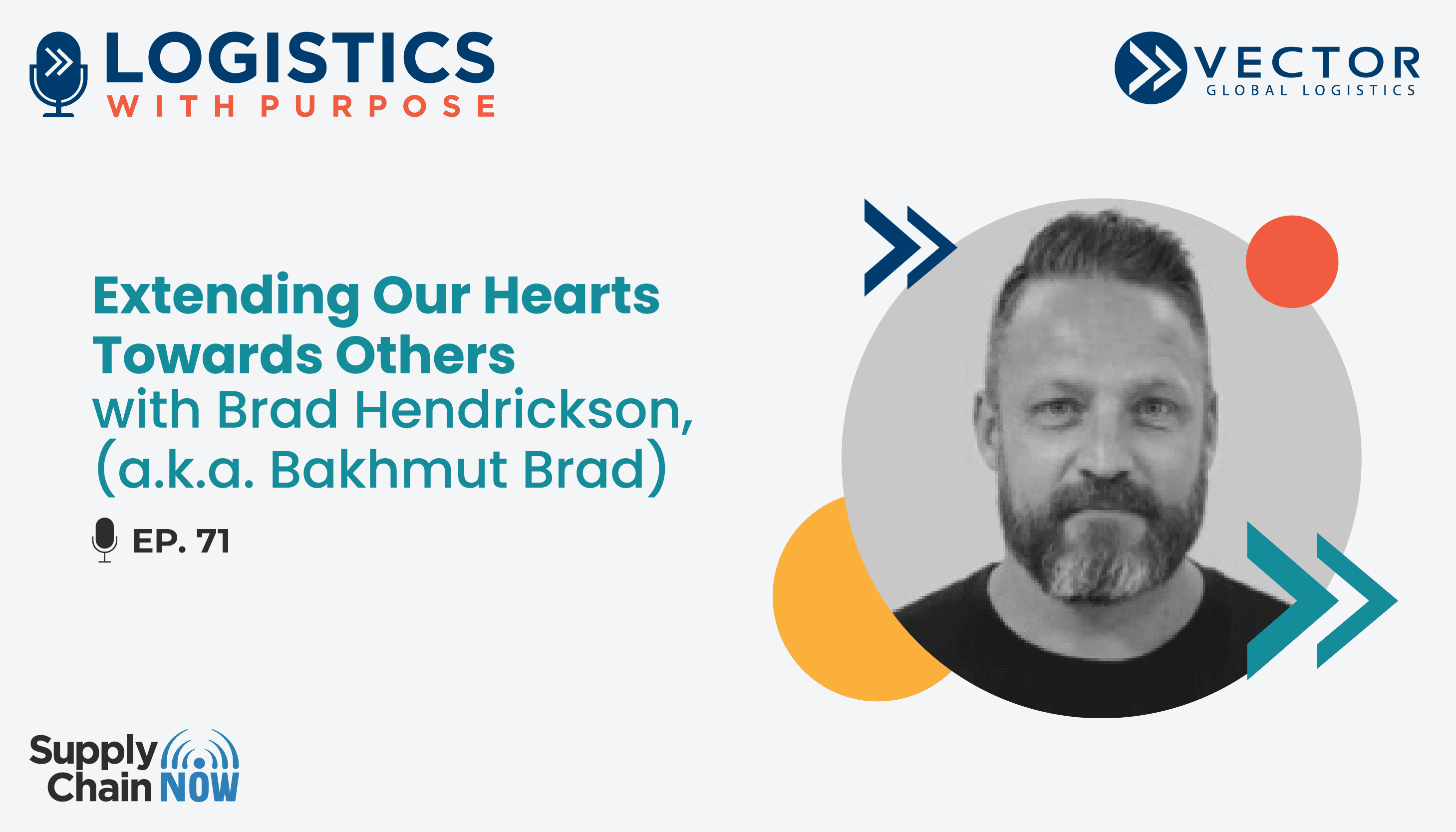
There are stretches that come and go where I feel spread pretty thin, honestly. There's a lot still before me, and there's a lot before everyone out here every day. But I feel like I need to keep showing up to do it.
-Brad Hendrickson, (a.k.a. Bakhmut Brad)
Episode Summary
There are challenging final mile logistics and then there are CHALLENGING final mile logistics. Brad Hendrickson (a.k.a. Bakhmut Brad) is currently working in the Donbas region of Ukraine to lead evacuations and deliver aid to the people and animals living one day at a time. In this episode of Logistics with Purpose, Brad joins co-hosts Kristi Porter and Maureen Woolshlager to tell his amazing story and share the combination of factors that led him to the front lines of the war in Eastern Europe.
Episode Transcript
Intro/Outro (00:02):
Welcome to Logistics with Purpose presented by Vector Global Logistics in partnership with Supply Chain. Now we spotlight and celebrate organizations who are dedicated to creating a positive impact. Join us for this behind the scenes glimpse of the origin stories change, making progress, and future plans of organizations who are actively making a difference. Our goal isn’t just to entertain you, but to inspire you to go out and change the world. And now here’s today’s episode of Logistics With Purpose.
Kristi Porter (00:34):
Hey, everyone. Welcome and thank you for joining us for another terrific episode of Logistics With Purpose. Today I am joined by my pal co-worker and one of my favorite co-hosts here. Uh, Maureen. Maureen, how are you? How are you doing today?
Maureen Woolshlager (00:49):
Good, Christie. How are you doing?
Kristi Porter (00:51):
I am good. Excited about this interview. Um, this one is, is this has probably been our most interesting scheduling situation, and there’s been a really good reason for it. We’re excited to tell you about today’s story, and just really excited to bring this, um, to bring Brad here and bring this story to life. Um, some of you may have seen him on the news, um, on multiple news outlets, but he has a really phenomenal story. We, as many of you know, have been working when this will air. Uh, we will have been working on the Ukraine situation almost since the beginning. Um, he has been working on this situation for a long time as well, and from a completely different angle. So, without further ado, let’s welcome Brad Hendrickson, a k a Bmu Brad to the show. Brad, thanks so much for being here.
Brad Hendrickson (01:40):
I appreciate the invitation. Thanks.
Kristi Porter (01:42):
Absolutely.
Maureen Woolshlager (01:43):
So, Brad, we’re gonna cover a lot of things today. Uh, but first before we get into kind of what you’re doing now and, uh, what your day-to-day is and why we’re here, can you tell us just a little bit about yourself and where you grew up and a little bit about your childhood that’ll help us set the, the stage for, you know, leading up to today?
Brad Hendrickson (02:03):
Sure. I grew up mostly in the, in the upper Midwest of the us Right. So, born in Iowa, lived in Illinois, Wisconsin, Minnesota, North Dakota, you know, that kind of area for the most part as a kid. Um, uh, did a kind of standard small town mix of some sports and some music, and, uh, read a bunch and watched Dr. Who reruns on, uh, you know, <laugh>, pbs and, um, whatever else, uh, whatever else you, you might do. But, um, <laugh>. Yeah, I’m trying to think of what else to throw in. You know, it’s directly relevant, but, uh, that’s at least kinda the childhood Yeah. Area upbringing, you know? Mm-hmm.
Kristi Porter (02:41):
Yeah, for sure. Well, uh, growing up in the Midwest, um, even you, no one gets to BMO <laugh> by accident. Um, you come from a completely different side of the world, which we’re gonna explore a little bit more as well. But, uh, looking back, is there something from those early years of a philosophy, an idea, a story that shaped who you are and what you’re doing right
Brad Hendrickson (03:04):
Now? You know, some of the, some of the earliest memories that I think would have some bearing on this, I guess in, in, in a sense would be, I, I remember, um, uh, very young watching the, uh, the Iron Curtain come down. Um, I also remember, uh, uh, Tianmen Square coverage. I remember Tank Man, um, this guy who was just carrying a bag of takeout, um, walking up to a line of tanks saying, you know, to hell, to hell with you and what you’re here to do. Grew up in a, in a sort of church setting, in a Christian Church setting. And, um, I think, you know, boy, a lot, a lot of things, and that is, that especially has sort of come to have a lot of different sorts of, uh, heated opinions and unfortunate baggage and all that stuff. But I would say that the best of the tradition, um, the best of the tradition, I, I think helps inform, um, a bit of, of, uh, who I am and, and what would bring me here just to, just fundamental questions of, uh, am I my brother’s keeper, you know, uh, that kind of, that kind of
Maureen Woolshlager (04:02):
Question. I wanted ask you a little bit about your career path. Uh, it’s not a straight line to what you’re doing right now, so could you provide a little bit of, little bit of history there? Um, that’ll help us get to, you know, where you are, how you got there,
Brad Hendrickson (04:17):
Boy. Um, yeah, I mean, I’ve done some construction jobs. I worked in oil job out in the Montana border for a while. Um, I studied some history and philosophy. Um, I worked at a fancy pants guitar shop in Midtown in, uh, in New York City. I’ve done some in-home care taking, uh, with some elderly folks and, um, others with some sort of more in intense, uh, needs to have some, some hands-on, uh, care. Well, and then maybe the last 10 plus years I’ve been, um, building and repairing guitars. Mm. So I’ve kind of been sort of a chiropractor mechanic, kind of guitar wrangler in a way. So, uh, fine tuning, you know, adjustments and making everything play easy for your fingers and in tune and, and get ready for the big show and whatever else. So, um, that’s been most of my work, uh, for the last 10 years.
Brad Hendrickson (05:05):
When Covid came, I had actually taken myself and my work out from, from the Twin Cities in, in Minneapolis in St. Paul. I went out to, uh, back, actually back to New York, New York City, and that was just a couple months before Covid, uh, shut everything down. And so suddenly there were no shows anymore. There was no, uh, networking, you know, sort of, uh, able to get the word out and all that. So, um, uh, in, in the moment of, of my need to find something, to get on with it and pay some bills and, uh, new York’s need, uh, to meet, um, the needs around Covid, I ended up driving a truck for u p s. Basically, everyone went home, all the businesses were closed, and the shipping volume was probably 20% above Christmas peak. It was just, just crazy and, and completely un unmanageable. And so, um, we were all scrambling to get people their stuff as much as possible. Uh, did that for a while and then, um, uh, moved up to Maine. So I’ve been in Maine in the US for the last, uh, couple of years. Drove a truck there as well, and, uh, worked at a kind of fancy guitar building shop in, uh, Louiston. And, uh, yeah, that’s what I was up to when, uh, when the news of this four hit and I ended up coming this direction.
Maureen Woolshlager (06:12):
Well, let’s talk about what you’re doing right now. I mean, I know Christie has seen your N B C interview, and that’s how we ended up here today. But can you tell us in the audience where you are, what you’re doing? Um, we, we really wanna hear about it.
Brad Hendrickson (06:27):
Yeah, so I am, I rotate through a few different locations and, and, uh, try to not make it too big of a splash about it. Um, I’m not trying to be sort of cute or coy or overly secretive, but just, um, uh, Bach moot or crema tourist ork or, um, towns and villages north of there and south of there. Um, I have a few different places where I can stay and, and I’ll be there for a day or two and then pop over to another location and just kind of keep it fluid. And then I don’t really announce, announced others just in the area where I’m at. Uh, it just seems, just seems smart, you know, there’s nothing to, um, I, I’m not Jason born <laugh>, you know, there’s nothing to, to claim Dustin about what I’m up to, but it just seems like, you know, you put your seatbelt on just as a kind of a good, good habit just in case. And you just kind of, for me, since I’m just a a one man kind of operation, I’m able to be clued with where I’m at. So I’m in the Donbass region of the far east of, uh, of Ukraine.
Kristi Porter (07:21):
And what are you, what are, what are you specifically doing
Brad Hendrickson (07:24):
There? Yeah, it’s a mix of work. Um, it, it’s really whatever kind of comes <laugh> onto my radar. It seems to be needed to be done early on in the spring, you know, March and April. Uh, it was primarily, um, uh, evacuations and, and aid delivery. Um, at the time it was in, it was, uh, in Louis Chans, which is a city even further east of here, which has since been taken, um, by the Russians. But we were trying to get, and, and we’re getting people out, um, as much as possible before, before they came in. So that work continues. I have, uh, evacuation requests that come through, and either I go to or partner up with someone else, uh, you know, just kind of rotating cast of a few other people out here doing similar stuff. So, um, we evacuate people out of some pretty, pretty dicey frontline, you know, uh, positions, which can be pretty, pretty fluid as well, right?
Brad Hendrickson (08:15):
The lines can, can kind of surge forward or push back. And, uh, so you have to see on your toes and drive with your windows open a bit to listen and, um, check all your, kind of, your intel or, you know, the maps of just where the lines are and what seems, you know, reasonably kind of feasible and doable, and what, which ones you simply have to say, I’m sorry, I can’t, I can’t get there. So there’s evacuations. There’s also aid delivery, um, whether it’s things that I buy with the money people donate, or whether it’s, uh, other, other kind of donation warehouse, uh, connections that I’m able to kind of network into. I’m, I’m not connected into that sort of scene as much as I would like to be. Um, and I certainly have plenty of folks up and down the line here that I would love to bring even more to.
Brad Hendrickson (08:58):
Uh, so I’m all, I’m all ears for how to kind of plug into that better. Some medical supplies at times get brought in, and then the, uh, the animals here, right? A lot of abandoned, uh, pets. A lot of people have fled and just not been able to take ’em with them. And so what few people do remain, um, have a pretty tremendous burden trying to come up with enough food, try, try to do what they can. There, there are kind of, um, makeshift shelters put up here and there. Uh, there was one in Cretors that I went to today. I built a couple of dog houses there with some, some good, uh, sturdy, um, insulation and so forth. Today I was adding, uh, kind of flaps to the front, uh, door of each one of them. There might be 50 of them there. Um, the whole thing had been hit by a rocket, a Russian, uh, missile came in and, and, uh, destroyed a lot of the fencing and a lot of the physical structures and, you know, injured some dogs and so forth. Um, so there’s a real need there. And, uh, that’s part of what I do on the kind of rotation of what I do, uh, here is, is help out, help out with animals, uh, here and there, um, evacuation work and a, a delivery.
Maureen Woolshlager (09:55):
I’ve read some articles and I’ve seen some videos of what’s going on there with, with what you’ve seen, you know, being broadcast worldwide. Does it match up with what you feel like you’re living day to day?
Brad Hendrickson (10:09):
I mean, I’ll be honest, I, I don’t really follow a lot of, a lot of coverage, you know? Yeah. Um, so, so I don’t have a good sense of what that looks like. My, my sense is that, you know, un understandably so. But, um, you know, the, the coverage emphasizes the pain, the, the, the, the loss, the death, et cetera. I don’t know how much of the coverage emphasizes, um, the good and important and, and somewhat sort of tedious and, and not particularly kind of Hollywood work that lot, and lots and lots of people are doing. So, it, it is certainly in the hottest of spots in Bach Moon in particular. And, and other places like that don’t happen to be as, as well known by name. Um, it is certainly very grim and very violent, and very, very sad and very serious. There is an addition to that.
Brad Hendrickson (10:53):
All of the other kinds of work centering around kids and elder care and, um, construction and food transport and preparation, and, um, just sharing and pitching and helping in, up and down the line. A lot of Ukrainian folks are doing all kinds of work that, um, from what I can see anyway, there aren’t a lot of sort of, you know, in <laugh> in-depth, uh, coverage of, of that sort of thing. So I don’t, I don’t know if that helps, but, uh, it, I’m sure it seems to, you know, what coverage can be done and, and, you know, small bits that I’ve even been, uh, you know, uh, one example of, uh, those seem to be reasonably sound as far as kind of how, how they’re, I don’t feel like there’s some, you know, mischaracterization, I guess I would say, though, that it’s surprising how, how loose things are, how informal things are.
Brad Hendrickson (11:41):
It’s just people who decided to show up and got a vehicle somehow. And I’m one of them <laugh> mm-hmm. <affirmative>, there isn’t really sort of a formal, like a, I mean, as we might think in the us like a FEMA oversight I’m not part of, of a, a group or team or, and so forth. And, and even those who are, are largely a, a quote organization, you know, on paper or on a website. Only a number of folks are doing good, good, and important work. Uh, I will say it’s also true that there’s, but there’s plenty of folks who shouldn’t be here. And that, that’s just also another kind of, part of the reality of who we work alongside, who you partner with, who you kind of share what you’re up to with and so forth. Mm-hmm. <affirmative>, it’s a, it’s a strange kinda, I dunno, wild west is the, is an appropriate way to describe it, but it’s, yeah, it’s like, it’s like nothing else <laugh>. I’ll say that
Kristi Porter (12:25):
For sure. Well, I, and I know, I’m sure a lot of people listening, and I know you’ve already been asked this quite a bit as well, but you are there on your own. You did come from the Twin Cities. You are not like a military veteran or something like that. So, you know, a lot of us wanna help out during hu a humanitarian crisis, but it is a, a minuscule number of people that would hop on a plane and enter a war zone to conduct supply runs in evacuations. Um, why did you decide to join this effort?
Brad Hendrickson (12:57):
Yeah, it’s, it’s certainly a, a complicated answer, and one longer than maybe we <laugh> we have all the time to unpack. Um, I guess I will say a couple of things. One is that, um, on the military bit specifically mm-hmm. <affirmative>, um, there are plenty of people who have, uh, some military background, um, who, who have not been, um, sort of equipped or, or shaped or formed into competent good, um, decent workers here. That’s simply true. And, and I would say that anyone who’s been in uniform, uh, would recognize that fact as well. In, conversely, there are plenty of folks here who haven’t had been to have had a military background, um, but who are, who are, uh, eminently capable and, and diligent and, um, sort of worthy <laugh>, you know, sort of assets here. So sometimes that the military, um, bonafides, uh, get touted a bit, get more than, than I think that they’re sort of, they ended up getting more than is warranted.
Brad Hendrickson (13:52):
Yeah. At times. So, anyway, my background on that aside, a handful of things have gone into bringing me here. You know, some, as we mentioned earlier, kind of younger, early childhood, um, kind of imprints the three things that I’ve kind of, I wouldn’t say summed it up as, but three key pillars to this, uh, would be as follows. One is, and I’m, I’m actually surprised that this has proven to be true just in my life, but one is poetry <laugh>. There are some, there are a number of pieces that have, uh, in the last maybe five, 10 years, I didn’t grow up as a poetry guy. You know, I kind of knew a handful. You know, you have a class or two, you know, some famous ones, you’re required to write something in fourth grade or, you know, whatever. But, uh, I, I didn’t grow up, um, you know, particularly, uh, steeped in it.
Brad Hendrickson (14:38):
But, um, there’s a handful of pieces, a few different voices have kinda really brought me along to kind of help, help, uh, tune my ear to, to quality work. Um, and so there, there was this poem that’s a bit on the nose in a way. It was actually written by a, a poet, uh, named Ilia Kaminski. He was born in Odessa. And the name of the poem is, we Lived Happily During the War mm-hmm. <affirmative>. And so it’s his reflections on, um, writing from a, from a position of, of safety and reflecting on, um, what that is like, uh, while others are in, in a, in a contact text of war mm-hmm. <affirmative>, um, the opening line is somebody to the effect of, uh, when they bombed other people’s houses, we protested, but not enough. We did this, but not enough. We did this, but not enough.
Brad Hendrickson (15:21):
And then it kind of closes out by saying, you know, in the, in the something something along the lines of, and, and I and my, on the, on the street of money, in the city of money, in the country of our, of money, we, and then in parenthesis, he says, we forgive us, lived happily during the war. And I was aware of that poem some years ago. Um, but of course it just came, you know, flooding to mind in this context. So that poem in particular, and also a number of others, uh, really kind of wriggled past just the sort of analytical consideration of it all, and really got in there in my bones and got ahold of me, um, in a way that I’ve been surprised by, even in hindsight, I’ve actually posted a handful of ones that come to my mind from time to time on my little, uh, Facebook group about being here, uh, for some friends and family.
Brad Hendrickson (16:07):
But, so some poetry. Uh, a another category would be, um, sort of public political rhetoric. And so maybe, um, John McCain’s words of support for Ukraine, even in the late aughts. And Applebaum is a, uh, uh, is a woman who’s, um, quite an expert on sort of Soviet fallout and, uh, reality and so forth on, on Eastern Europe. She’s written a number of pieces for the Atlantic and, and been, um, featured on a whole host of programs and so forth. But she’s been a, a helpful voice for me, uh, for some years. Uh, there was a senator from Nebraska named Ben Sass, who gave a, gave a couple of, I thought, pretty, pretty good and clear and, and forceful speeches early on in the war that I found, uh, helpful for me to, to sort of think it over and, and also think over what, what sort of purchase all of that might have on, on me personally.
Brad Hendrickson (16:58):
Mm-hmm. <affirmative>. Um, and then, and then the third thing is, as I said kind of earlier, I recognize that there’s so much tension at times and kind of culture, war battleground, et cetera, et cetera. But, uh, I, I come from a Christian background, and I think that the very best of that tradition, the wisest of voices, the most faithful of voices, have had a lot of good things to say to me about considering sort of just basic kind of hierarchy of, of priorities and, um, what we’re here on the planet to do, and, um, who we might do that for, you know, et cetera. So those, those three things combined with everything else of the last, you know, 40 some years. So that’s, yeah. <laugh>, that’s a bit of a backstory, at least about what brought me out here.
Maureen Woolshlager (17:35):
So, Brad, what do your family and friends think of all this? Like, were they part of the process as you considered this, or did you announce it after the fact and you, or like, I need a ride to the airport, and then you, like, how did, did, can you talk us through, you know, how that communication went and, and what their thoughts were and are still, cause you’ve been there, how many months have you been there now?
Brad Hendrickson (17:59):
10, maybe. Okay. Nine. Nine or 10. Yeah. I, uh, I could feel it sort of creeping on, you know, in, in, in late February, early March. A and I would kind of mention that in passing to a few folks that I was thinking about it, or at least moved by this situation, et cetera. I don’t remember the, the, the precise timeline. I will say that it surprised not only other people, it surprised myself. I had actually <laugh>, I had actually bought a little, uh, school bus <laugh>, I want to say, the first week of March. And, uh, I think that I came, I picked it up in another state, and I drove it to, to Maine. I wanna say that it was like the night, Friday night. And, uh, I put a, a picture of it at night time, parked in this driveway, this, this place that I was at in Maine, and, uh, you know, said something, posted something like, oh, did a thing.
Brad Hendrickson (18:47):
And I was thinking to myself, yes. So over the course of March and April, I’ll spend, you know, a few of these bucks I’ve kind of saved up from u p s. And, uh, I’ll, um, turn this into a way to live kind of out of the, the rent scheme maybe, um, go to a CNA program or something else in the main area. I’m not really sure. Boy, it’s crazy how fluid all this is, but <laugh>, you know, this is, this is the next project I think I’ll do. Um, after looking at how much, uh, <laugh>, you know, we keep spending on rent every month. And, and, um, I wasn’t still not in any kind of position to buy. And so it seemed like something that I, uh, had enny and could figure out how to do. And that was a Friday evening. I came home with it.
Brad Hendrickson (19:22):
And, uh, by Saturday or Sunday of a day or two later, it just, it, it, it sort of clicked in a, in a, in a surprising way. You know, I have to, I have to go the same reaction that we all have when we see this coverage of such, um, just, just, you know, horrific and outrageous things. The, the indiscriminate pain on civilians, you know, maternity words being bombed right. Early on. And, um, just all, all kinds of really just unthinkable things. And, and it’s one thing to, you know, change your profile picture to have a flag of a country, you know, next to it. And, you know, honestly, I think shows of solidarity really do matter. And I’m not, so I’m not trying to poke at anyone, including my own self, who does that in other circumstances. But that normal amount of, uh, of, uh, sort of the, the extension of our hearts toward others that we really are, don’t have the things that are sort of lined up in our lives to be able to go and be there. It was sort of this just smack, I guess, where it was, uh, you know, I sort of, this, uh, somebody should do something. These people need help, right? And it turns out like, oh, that’s, I gotta go. I have to go. I have, and I, and look, I still don’t, I don’t know what I’m doing, you know, like in away, right? Like, I didn’t, um, I, I didn’t even know what I would be doing here. Mm-hmm. <affirmative>, um, I brought, I brought sets of scrubs. I brought, um, I brought all kinds of different options. <laugh>,
Maureen Woolshlager (20:41):
Did you sell the bus or do you solve the bus?
Brad Hendrickson (20:43):
No, it’s, it’s fr sitting in a friend’s driveway in Maine, um, still with all the seats in it. Still not in any way worked on. I have no idea what the next chapter is for that, uh, when I get back. But, um, yeah, so it kinda of came out of the blue in a way. Uh, the, the, the weight of the, the, the gravity and the grief and the, just the totality of it all came to a point where I was like, well, I, I guess I have to go figure something out and, and, and sort it out as I go. You know, it’s sort of leaping out of the plane and then learning how to sew and make and pull a parachute on while you’re plummeting toward, toward the ground, you know? So, reached out to some friends and, and had an introduction from a Canadian friend who knew a guy who had been born in Ukraine, but was now in Canada, and had some business connections there. And he reached out to some folks that he knew. And so I had a place to stay for the first couple of months, um, kinda get my bearings and introductions and so forth. And I’ve progressively moved further and further east, and, uh, now I’m, now I’m out here, and then there’s kind of a, a decent, uh, rhythm, you know, to the, the work in front of me.
Kristi Porter (21:40):
Well, let’s talk about some of the, the hopeful stuff that is going on there. Um, you, I, I’d like to hear it kind of on two different fronts. One about your men. You mentioned some of the coverage isn’t highlighting what other people are doing enough. So, um, the good things that other people that you’re seeing on a daily basis that Ukrainians and other people are, are carrying out as well. So give us a couple examples of that and then, um, tell us also just a couple stories from your own perspective, people that you’ve helped worked alongside some, um, some good things that have happened along the way on this really difficult path.
Brad Hendrickson (22:15):
W what I, what I know about the work that Ukrainians are doing for one another is that I barely know any of it, you know? Mm-hmm. <affirmative>, so much of it is done. Um, I mean, I, when I arrive, it’s suddenly, ah, well the Americans here to, to say hello, to drop off some stuff to chat a little bit, and then, okay, bye-bye. You know, and then they, and then they go back to their, their, their rhythm. Um, well, what I see is a lot of, um, I see a lot of tenderness, um, I see a lot of assistance with, um, with, uh, meals. You know, it’s, it’s far more efficient with firewood and, uh, media preparation and so forth for a, a building or sort of a cluster of folks to cook one larger pot and, and share what they have with each other. I see plenty of folks with difficulty, uh, moving up and downstairs and so forth, being helped, um, as just a, a routine matter, no matter whether someone’s personally directly kind of related to them or, or connected or, or whether it’s just, um, someone else on a, on a bus or a train or something like that.
Brad Hendrickson (23:13):
I see there are, um, there’s a few different places where there’s, uh, a handful of guys who are, have some kind of, you know, kind of carpentry or construction background who kind of swoop into a place that’s even just very recently been damaged, and they swoop in and do all they can to try to scale something up, you know, keep a bit of the cold out, put a bit of a bit of shelter back, you know, to, to their, their friends and neighbors and just sort of countrymen. But I, I know that there’s, there’s so much work that I just understandably so, you know, wouldn’t, uh, be kind of invited to and, and, and be there alongside. I have have, I have gotten to know some people in some places, um, well enough where I can actually, uh, been invited and have stayed overnight with them from time to time.
Brad Hendrickson (23:51):
These are kind of few and far between, a handful of different locations. But, um, it’s been, it’s, it’s, it’s beautiful. It’s intense. It’s, um, it’s a lot of weight to just, uh, kind of bear witness to that. And what about some of your own stories? Most are sort of dazzlingly. There’s been, there’s some evacuations that are, are, so I don’t think they’re reckless, I guess I’ll say it that way. I don’t think they are, but they’re, so, the need is so very bad. It’s so close to the line in a way. It’s, it can be frustrating, um, that folks have, have known that they could have evacuated earlier, and they’ve been kind of in denial or otherwise, you know, holding out hope upon hope that, that something will work out and they won’t have to kind of abandon all that they’ve worked to put in place.
Brad Hendrickson (24:33):
But, um, but for some folks, by the time we get there, street to street fighting with rifles is, is, you know, a block or two away, you know? Mm-hmm. <affirmative> sometimes. There was, um, on a rather recent one, we were going up a street and we were in, we saw number one, number three, number five, we were headed up to number 24. And I saw Ukrainian soldier in a front yard number five, and we got out and spoke with him and said, Hey, we’re going up to 24. Is that gonna be okay? And he said, no, 24 has Russians in it. Now we need to turn around and get out. And the Ukrainian shells that came over our heads from behind us and land on that position, the, the dirt from those explosions came up and landed on, on us in our vehicle as we were turning to scramble and run.
Brad Hendrickson (25:09):
So that kind of thing happens from time to time. And it’s, it’s, it’s, it’s intense. And to be able to get people out of a position that is, that is so, so overwhelming for them to be in, right? No one should have to endure that. And it’s unfortunate that it’s down to the wire like that. Um, but for folks that we are able to get to and do feel like we can kind of scoop up and get out right now, <laugh>, you know, with the quickness, and we’re bli places where we know the routes and know our options and Right. We’re really trying to, um, do our due diligence on that as best as we can. Being able to, to, to be that, you know, is obviously pretty meaningful. You wanna, you wanna come here, if you’re gonna set aside everything else that was gonna go on, you wanna come here and do something that’s actually meaningful.
Brad Hendrickson (25:48):
Right? And so, um, there’s been some of those roles. There’s been other, other places I’ve, I’ve just gone to just by myself, uh, well off the beaten path and found people in building, as you swear, there couldn’t possibly be anybody in, um, but have been bringing, um, uh, food for, for them, food for their, actually a lot of the animals they’re caring for. Uh, some of those folks have actually been in Sodar, which, uh, very heartbreakingly has just been taken in the last, uh, handful of days here. So there’s, there’s people that, it’s been a, a, a joy to see over and over again since the summer, um, that now I, it wouldn’t be possible to get to anytime in the foreseeable future. So anyway, just, uh, badly needed aid. Um, I guess also another thing I’ll mention is, uh, wood burning stoves. Um, I have a handful of those in a garage that I can load up on when I have a day to take a few of those and head, head out to the, the edge and try to bring ’em to shelters that people have kind of cobbled together in place, but don’t really have as many of those as they need for, for cooking, for just staying warmed in a, a, like an underground, uh, cell, uh, like a root cellar.
Brad Hendrickson (26:46):
So, um, being able to provide those to folks, uh, in multiple, multiple instances, uh, people have, it’s been been such a, a, a game changer for them, you know? Right. Going from being so very cold to having now this, uh, this resource for them. So mm-hmm. <affirmative>, things like that, I guess have been some of the highlights here and some of the, the most meaningful work.
Maureen Woolshlager (27:07):
So, so Brad, it’s worth mentioning and kind of clarifying for our audience and just for our conversations, that like, you’re there independently. You are not working for an organization, you’re not representing an organization, you know, I know that you’ve worked with some non-profits or humanitarian aid organizations over there. What’s the benefit of the, what, what do you see as the benefit of the route that you’ve taken by being sort of an independent entity there, rather than partnering, partnering with some of those organizations that might have more resources or funds or accessibility to some of the things that you might be looking to source?
Brad Hendrickson (27:42):
Yeah. Um, I will say that some of the very largest and most kind of formal organizations that do have the funds, um, are largely sitting on ’em. I’ll just say it, plenty of us have seen them sort of trolling around looking for photo ops to justify their presence and to, um, encourage additional fundraising. Um, but where they actually go and what they actually do is, is different than their well produced commercials might suggest. It’s, uh, strange to see a lot of things. And, um, I mean, it’s just true. Seeing how the sausage is made really is different than the kind of, um, tidy narrative that I frankly would’ve assumed, you know? Yeah. I think it is, I think it is important, uh, to learn about that. I’m not, I’m not trying to go outta my way to be antagonistic or provocative, but it’s just true.
Brad Hendrickson (28:24):
So some of the larger groups really aren’t out. Where I think the, the most intense, you know, need is, um, there are some other groups, um, as well. A few are good. And, and I’ve been glad to help them and, and been grateful for them to help me. Cuz one in particular, I think it’s something the effect of plain compassion. I, when I say crisis response, I think it’s like P C C R is the name of them. Um, there’s a guy, uh, and actually his whole family’s here, three, four kids I think, and wife. Um, they’ve been, they’ve done this work in Syria and elsewhere. Uh, his name is Daniel, and I think that he’s got a good head on his shoulders. I think he’s here for the right reasons. I think the group that he’s a part of is a, is a sound and also frontline organization, um, pretty low-key folks and, and doing good and vital work.
Brad Hendrickson (29:10):
So there are a handful of people who have my number in their, uh, in their phones and we, we sort of message and connect and are happy to partner up or, Hey, can you drop this off for pick so-and-so up? Or you wanna go in with me, or I’ll follow along in a larger van and we’ll bring your four wheel drive in for the front spot and kind of offload people here and there. I’m happy to connect with anybody who wants to call and who <laugh> who not only wants to call, but also wants to hold up their end of whatever agreement we might have. I guess one upside for me, and I don’t know that I would recommend this for anyone else, but one on upside for me is frankly, the ability to say to anyone that I need to, okay, no thanks. Mm-hmm. <affirmative>, I’m not locked into something.
Brad Hendrickson (29:47):
Sure. Um, I’m not locked in under someone, uh, especially making sort of calls or decisions, uh, from a position that isn’t physically present here. I don’t have that in me. I guess I’ll say that there are upsides to a, a more formal structure, right? Um, there are downsides <laugh> to, to the approach that I’ve taken. I haven’t known what I would be doing or how long I would be here. And so for me, I wanted, and, and it has, it’s ended up working out for me through a great deal of sort of somewhere between luck and providence that I’m able to continue as I am. But, um, I, one other thing I guess I’ll say about just being solo is that, uh, when you do go somewhere, you’re not going with this big caravan of vehicles and people and attention and so forth. It’s just, just one guy, just one vehicle.
Brad Hendrickson (30:30):
Don’t mind me, <laugh>. Right. And I would much rather be not recognized. I don’t have any decals or flags or mm-hmm. <affirmative>, you know, anything like that. Um, people recognize me and once you’ve been there enough times, but it isn’t the whole kind of, there isn’t the kind of the, the, the trumpeting announcement of arrival into town. You’re not as visible from, from forward observers with, uh, binoculars or, or overhead by drones. Um, even just being a solo, I’ve been targeted repeatedly quite clearly, um, that it’s been specifically me. But, uh, boy, having any, any larger group, any larger number of vehicles, all, all packed together as one unit traveling, I just, that kind of attention, I would prefer to avoid that. So it’s, it’s worked out again for me in this particular circumstance.
Kristi Porter (31:11):
Sure. Well, let’s talk about, um, now how your work is actually funded because you’re on your own, not part of an organization. So the supplies you’re talking about the, um, I know some are given to you, but you know, like you’ve talked about working on dog houses and, you know, all of these different things. So day-to-day, how is your work funded?
Brad Hendrickson (31:33):
When I first began, I, I had these, these, um, sort of grand illusions of remaining unnamed the entire time I was here. I wasn’t gonna identify myself. I had a couple of friends who, who were, um, admins on a little Facebook group, and we would all just, we’d provide updates, you know, these are some medical supplies we’ve purchased our volunteers heading over, you know, we’ve gotten some updates here. Um, but sometimes I would post something about our volunteer, um, in the third person <laugh>. And, uh, you know, he sent me this thing, he sent me this picture, or this is the pic. Yeah. Anyway, um, I, I had hoped that that could work if suddenly enough funding just descended, descended from the sky. There are plenty of folks here who, who come here to build the brand, who, who come here to take a lot of selfies, who come here to, to wear and buy the cool looking gear and to kind of have a sort of Hollywood vibe about themselves.
Brad Hendrickson (32:21):
And, um, and to rake it in while they’re doing it. And, and to do so in a way that doesn’t seem like they’re here to sort of bear witness to or maybe document some, some intense and indeed grim, uh, realities for a lot of folks. And that tone, that spirit, that intention, um, was just something that, that I very much have continued to want to avoid looking like, or smacking of, et cetera. What I did find, though, is that without a story, without a person, for somebody to say, oh, yeah, okay, there’s this person, they’re doing this work. I have a better sense of that, and I, I sort of care. Well, without that, it, it’s hard to get buy-in. It’s hard to get folks to say, Hey, here’s 20 bucks for diesel. Good luck. Oh, your tire got flat. Well, here’s, here’s enough money to buy another tire.
Brad Hendrickson (33:06):
You know, et cetera. So somewhat just reluctantly, but realistically, I then posted a couple of things with my face, with my name. I also had a better sense of what would be reasonable, what would be safe, what what could be done and wouldn’t be, uh, reckless. What wouldn’t be something that you’d wished you could take back. You know, once you say something or mention something or check in somewhere or whatever, it’s out. And there’s a lot of eyes on a lot of accounts, whether we know it or not. Right. So I wanted to have an abundance of caution early on and to gradually come to a place where I could, could make more decisions on transparency there. There’s actually a, there’s a journalist out here who had saved my name in her phone as Bach moot Brad. And, um, you know, a lot of us do that sort of a thing here, especially here.
Brad Hendrickson (33:49):
Um, many names are very, very common, right? If you said Igor, you know, 1900 Igor, right? You have to do, add something else in your phone to make it, you know, a distinction of some sort. Usually the location and then what, you know, Igor, um, in Nepro who’s a diesel mechanic is different than Igor at the hospital in Mccr is different than Igor at the et cetera, et cetera. So anyway, that was her suggestion was, Hey, why don’t you just sort of sum it up in, in that kind of way. It gives people already a sense of where you’re at, and then there’s, then there’s actually somebody to kind of something that you could really sort of hang your head on, as it were. Somebody’s story there that you could, um, you could, you could sport and kind of come alongside and, and root for.
Brad Hendrickson (34:26):
So there’s a Facebook group called Bach Moot Brad, and, um, yeah, that’s where we’ve kind of been posting, um mm-hmm. <affirmative> a handful of updates. It really is. It’s not daily, it’s not routine. Um, just sort of some examples of some of the work that’s being done. But I really, uh, would need like a whole kind of <laugh>, you know, social media handler or something if I was gonna do that. Well, <laugh> and I, I wouldn’t say that I am, but from time to time I try to post some updates of some, some of the things that, that we’re up to out here.
Kristi Porter (34:54):
Yeah. So people have just been sending you whatever they have cash available, um, to, for you to just head to the store and buy whatever need you see in front of you, right?
Brad Hendrickson (35:05):
Yeah. You know, there, there was, uh, there was a kind of 15 minutes of fame splash. There was a, there really did help, you know, so some coverage got out and the word got out a little bit more. Um, there was a, a guy in the far east edge right on the front line in bmo, this elderly couple, uh, and an artillery shell came into their home and wounded him quite badly, and he was bleeding and, uh, there was just no one else who knew the area, no one else who was available, who wasn’t busy with other work driving at night with headlights that close to us. It’s just nothing you ever would wanna do. I didn’t, I didn’t wanna do it, it at all, you know, but I just, uh, but I ended up going and ended up finding him. I, I, I knew the location, I knew the avenues to take.
Brad Hendrickson (35:43):
Um, I could turn my headlights on just for a split second to see far enough, you know, 1500 feet to go. And then I would go <laugh>, go black again, drive out, turn him on, just for a split second, turn it off. Um, I got where I needed to go, got him, brought him to the vehicle and got him to, uh, emergency hospital initially, and then onto a second, second hospital as well for additional x-rays and, and other care there. And, um, we’ve actually stayed in touch since then. So since that happened, and it also happened <laugh> to be, uh, the evening of Thanksgiving here, that story got picked up. And so, uh, more folks than I, than I would’ve thought, you know? Um, I’ve now kind of seen the group and pitched in their, their 20, 30 bucks towards some diesel and some spare parts, and it, and it adds up and it helps.
Brad Hendrickson (36:22):
And now I have a little bit of breathing room where I’m not just ringing my hands flat broke and, uh, and I’m, and I’m grateful. But yeah, it’s just, there’s just a PayPal thing. And now pe other people have asked to, well, what about Zelle? What about mm-hmm. <affirmative>, um, Venmo, what about whatever else? So I’ve tried to kind of one by one set those up just to make ’em available when people are requested. But, so those are there, they’re, they’re in place. There’s a link tree, um, that, uh, my friend from the Twin Cities, uh, named Priscilla, uh, she and her husband David, they’ve been real supportive friends over the years. Uh, they’ve been, they put that together and I’ve been helping out so that, that’s how people could see and how, how people could pitch in. And that’s, that’s all I’ve been going off of.
Maureen Woolshlager (37:01):
How do you think that you’ve changed personally through this experience?
Brad Hendrickson (37:04):
<laugh>, just
Maureen Woolshlager (37:06):
A little, little question. It might be like, just a loaded question, but I mean, cause like secondary to that is, you know, there’s a physical toll, there’s a mental toll, there’s an emotional toll to what you’re doing. You can try and prepare for that as, but you, but you didn’t, you don’t know what you’re gonna get when you get on the plane and, and go over there. And it is, you’ve been there 10 months, you know? So
Brad Hendrickson (37:29):
Yeah, I, I chuckle because I’m painfully aware of my own shortcomings. Uh, just, just to say it, um, there are times, there are days, there are stretches that kind of comes and goes where I feel spread pretty thin, honestly. Right? The sort of emotional reserves for the normal rhythm of, of, um, delays or imperfections or, or just runaround stories you get from folks here and there. They, they add up. They’re, they’re, they’re cumulative in their, it’s wearying. It really is. And so, um, part of what I am seeing is that the normal baseline is kind of, kind of getting a little eroded out of there. And I’m, I’m feeling pretty, um, there’s a lot, there’s a lot still before me, and there’s a lot before everyone out here, uh, every day. And I feel like I need to keep showing up to it. But I do, I also do recognize, you know, uh, how many times do we hear about the, in an airplane, right?
Brad Hendrickson (38:20):
When the oxygen masks come down, you need to put yours on first so that you’re in a position to be able to, to help others. I recognize that one of the, one of the ways that I’ve changed is that, that it’s, it is wear wearying and, and, and, and wearing in certain ways. I will say though, it’s also been quite expanding in a, a sense of the compassion that that’s needed for folks. That there are plenty of, plenty of circumstances that might, um, prior to being here, might have just kind of seemed more easily, um, dismissed or, or resented or, or whatever else. When you find yourself here over time, uh, at least for me, I find myself then better able to understand why it is that they’re, um, they’re coming from where they’re coming from and it’s not a good place. It’s not a healthy place necessarily.
Brad Hendrickson (39:06):
Right? I’m not sort of supporting all things that come to pass, but it’s certainly expanding e expanding in its own way. Um, just the human condition broadly and certainly circumstances here, uh, rather specifically I’ve had a better sense of <laugh> after having so many things, uh, so many commitments or assurances, whatever fall through, um, there really is having a backup to the backup, having, having a reserve, you know, whether it’s tires or parts or food or water or, or battery packs or just basic supplies, um, let alone a maybe backup, uh, assignment, you know, work to do for the day in case the thing you had planned on and planned for you would show up and it just dissolves out from under you. Um, having something else then to fall back to another place to stay, if you’d line something up very clearly and then there it is and it’s cold and it’s late, and it’s time to, you know, kind of close up for the day.
Brad Hendrickson (40:00):
Um, having backups in that way, uh, in, in, in place, multiple sort of redundant backups, uh, the importance of that and the practice of having those in place is certainly something that’s, that’s changed quite a bit, uh, from, from where I kind of came. I mean, it’s really, it’s, it’s only 10 months, but it’s <laugh> been pretty long, a lifetime of, of months for sure. And, um, I certainly came in with much more of a, of a kind of happy-go-lucky. Like, well, we agreed to this, we planned for this. You said you’d be, you know, that’s the time you said 10 o’clock, so it’s, it’s 10, so we’re gonna do the thing, right? Oh, well, no, I, I changed my, I didn’t know. On and on and on. Just everybody’s got something, some of their, you know, are the normal spectrum of, of, uh, understandable circumstances that might come up, but, but it’s also a different kind of, uh, <laugh> pattern here than you’d ever see, um, in, in, in a setting in the states. So, so anyway, <laugh>. Yeah, that’s another, I guess, thing that’s changed.
Kristi Porter (40:54):
Okay. So I know that it’s, um, clearly there’s a physical toll, there’s an emotional toll, there’s all the tolls, right? <laugh>. So I guess, is there anything, um, anything that really affects you more one way or another as far as an emotional toll and what kind of helps keep your spirits up in such difficult circumstances?
Brad Hendrickson (41:15):
I mean, it, it is, it is wearying, I’ll just say that it adds up. Um, uh, it, it’s nice to connect with folks, uh, you know, friends and family, um, a bit when we have signal, when we have time, when the time zones and all that sort of stuff works out. My mom a couple of months ago asked me if, if there’s anything that I really needed. There was a, she sent then a little, um, portable light, you know, with a solar panel on top, and then a couple of books of poetry that I had, <laugh> I had requested. So, um, those have been interesting to, uh, go through quite slowly, but plenty of it is just sort of, plenty of my downtime are kind of recoup time is just kind of sleeping, resting, checking out, you know, kind of gathering my, my thoughts and myself.
Brad Hendrickson (41:57):
It’s a lot. Yeah, it’s a lot to try to take in stride and, and some days are, are so extraordinarily intense that, um, I’m really not sure what kind of toolbox anybody could have to, to process through some of that. I mean, let me also though, say I’ve been spared so much of the most sort of intense or painful or grizzly or whatever. I mean, I’m, I’m not trying to make myself out to be, you know, something sort of over the top. But, but I will say that having, you know, being targeted repeatedly, having, you know, multiple shells blow up enough to c close enough to leave your ears ringing and, and dirt thrown up on your yourself and your vehicle is enough to get to your attention. And that’s certainly not something that, that, uh, most of us have, have had a history of taking in stride, not only just taking in stride at all, but taking in stride in a context where, um, I would say even with, with folks with a military background, you know, when you’re, when you do have a military background, you have a background of being part of a larger group, a team mm-hmm. <affirmative>,
Brad Hendrickson (42:51):
And there’s a support chain, and there’s medical, you know, evac possibilities and people alongside you with all this kind of training and, and firepower and, and, uh, armor and vehicles and, and, um, planning and oversight and all this stuff, right? Um, whereas here, uh, you don’t have, you literally don’t have any of that. It’s very, it’s very just, boy, you’re kind of hoping you’re, your van will make it <laugh>, you know, on this run. You hope your tires will hold up. You hope a lot of hope and hope’s not much of a strategy though. So, um, having that, um, that thin of a barrier, I guess, between you and, and what might be just as a sort of perpetual reality is something I don’t think any of us have had a background on or, or a sort of skillset to really build on of years of experience with that. So it’s, that’s a strange, it’s a strange and, and, um, intense portion of the, of the reality out here.
Kristi Porter (43:40):
Yeah. Well, and it sounds like too, from just our conversations over the past couple of weeks though, that, um, and I think you’ve already mentioned it here, but just talking about, um, showing up to animal shelters and playing with the pets and things like that, that’s been kind of a boost to your, uh, um, yeah, just emotional load as well.
Brad Hendrickson (43:59):
You know what, it’s a actually, um, it’s actually my birthday today, and I treated myself out to, um, <laugh>. I treated myself out to, uh, a restaurant. And at the restaurant is both a wonderful cat who, um, I’ve gotten there a handful of times and now we’re pals and it comes up by just on my belly and just flops on me and I can barely even sit up to, to take a sip of my drink cuz it just, just burrows in and <laugh>. And then there’s this dog as well, and, uh, just the, the goodest bestest boy of ’em all. Yeah. And, uh, and we’re pals too and, and that, that kind of, uh, wind down boy that that really does. Yeah, you’re right. That does make a huge, a huge difference, uh, for me. I’m, I’m, I’m surprised by how much it does, but it really does.
Kristi Porter (44:40):
Yeah. Sounds like you’ll trade that for a cake, a birthday cake. That sounds like a much better option. <laugh>.
Maureen Woolshlager (44:46):
Yeah, exactly.
Brad Hendrickson (44:47):
11 times outta 10. Yeah. I’ve had, yeah, I’ve had enough, uh, before refined sugars out here for sure. Yeah.
Maureen Woolshlager (44:53):
<laugh>, kinda on that note when we’re talking about like the emotional toll and the physical toll, you know, I’m wondering kind of what your thoughts or perspective on that, you know, you show up in a country and you’re 100% dedicated to helping others and trying to make a difference, but I’m guessing there’s probably a little bit of a language barrier, um, but that also means that that’s harder to make some of those human connections, um, at the same time as you’re also trying to affect change and communicate. Can you talk a little bit about that? I mean, other than it seems like you’ve made some, some four-legged friends there. How does that, how does the other element of that play into your, your day-to-day?
Brad Hendrickson (45:35):
Yeah, yeah. The, the language barrier is, um, is just nuts. I, I can’t even believe it. Um, if I had had any kind of planning, uh, sort of, you know, if I, if I knew this was coming up in advance of coming here, I would’ve definitely spent more time trying to bone up on kind of duo lingo or something like that. Um, I’ve had some time here. Strangely though, um, you know what, in a way, I think showing kindness and access and, and, um, the connection with people’s animals helps telegraph to the folks there where you’re coming from, right? Mm-hmm. <affirmative>. And so e even that in and of itself, without, without really any words at all, can help, um, help impart a sense of, of, uh, of confidence, right? Mm-hmm. <affirmative> and just, and just kind of your, uh, the, the, the spirit of what you’re there to kind of do and be.
Brad Hendrickson (46:28):
Also, admittedly, most of the folks that I, I connect with, it’s, it’s pretty brief. You know, we’re kind of there in passing there to either deliver some stuff and say hi, ask if there’s more things I can think about bringing or, or possibly affording, um, um, ask them if they have any other specific kind of struggles or, or injuries or if they know of anybody else that we should go check on? Uh, evacuations are pretty straightforward. Get in, get out, let’s get going. You know, um, these are your bags, you know, um, go, go, go, go, go. Uh, so there isn’t, there isn’t a lot of room for conversation or a lot of need, you know, for, for in-depth conversations. There’s not a lot of opportunity for it. And they’ve got a lot on their plates as well. They’re not, I’m not trying to show up and obligate them to something, um, beyond, uh, beyond what they’re, what, what we’re there to sort of connect over.
Brad Hendrickson (47:13):
Um, but a handful of people, um, some families here, uh, couple there, you know, um, some, some soldiers here and there, either they do know, um, bits and pieces of English enough to work, or I have, um, languages downloaded to my phone on Google Translate. And so even if we don’t have any internet connection, we can still type in and it’ll translate it over. Uh, if you keep your se sentences pretty short, simple, Google can do a, a sufficient job, you know, for, for, for getting across what you’re getting at. And, um, it’s been, it’s been strange how to, to, to find how universal some aspects of humor are. Right. How hilarious. So we have, like, we’ve never, we have no history, no background, don’t even speak the same language. And yet even through translate, it can still make some pretty <laugh> pretty, uh, pretty hilarious, pretty hilarious sort of gallows humor, you know, in the faces.
Brad Hendrickson (48:00):
Some pretty cri grim circumstances. So yeah, Google translate and, um, and, and fragments of, of English and other sort of non-verbal gestures, you know, if you, you know, are indicating food, right, or, or, um, you know, in injury or other things you can sort of convey, um, you know, with sort of hand gestures in a way. Uh, or I learned one or two words here and there, but I really can’t, I can’t have a conversation and it is a, a real barrier and, and yet it does simplify things in a way that you can kind of cut to the chase mm-hmm. <affirmative> of, of, of what you’re there to chat over, what you’re there to learn about, um, what you’re there to kind of wish each other well and, and hope that it works out to see each other again. And, and with that we’re sort of on our way to the next folks and, and let them get back to their, you know, the, their responsibilities in front of them as well. Yeah.
Kristi Porter (48:48):
Well, you’ve mentioned, um, you know, uh, diesel and food and medicine and pet food and, um, just some of those things that you’re providing on a daily basis or as needs come up or as, you know, donations come in. Um, what are some of those, um, things that are consistently coming up for you that you see a lot more than others? That, uh, we should be aware of? Both. Um, just that maybe needs in general, and of course, um, if people wanna donate to you, then knowing kind of the things that you’re gonna be out providing to others.
Brad Hendrickson (49:20):
Yeah. My, um, the vehicles are, are far away. The, the number one, um, the number one thing, and I, what I mean by that is the number one asset, the number one game changer, the number one lifesaver, the number one must have mm-hmm. <affirmative>. And so I just picked up my van, which is pr pretty banged up in the front end. Uh, picked up my van from a, uh, a mechanic, uh, just a few days ago. Um, the serpentine belt had broken while I was driving, and all of a sudden a whole lot of things went out all at once. This was pretty, pretty critical repair my four-wheel drive Toyota, which I’m very grateful that I’ve been able to have enough to get one though. You, you pound anything over all these roads up and down and left and right and, uh, eventually the front end just becomes so kind of loose that you can’t get the alignment right back on, on track.
Brad Hendrickson (50:05):
So it’s actually at a formal Toyota dealership, um, getting some pretty major repairs. Mm-hmm. <affirmative>, um, I’ve got an email about that actually about an hour ago. It’s gonna cost another couple thousand plus, you know, dollars to, to get it up to speed. Um, it’s another part that actually we’re gonna order and it’d pick a couple months to get it, so I’m not quite sure. But, um, it has some pretty, pretty robust, uh, uh, hard hardy tires on it, so they’re able to get me around, but they cost, you know, two, 300 bucks a tire. Anyway. Uh, <laugh>, maybe you can help me focus more specifically on what we’re getting at. I guess there’s vehicles and there’s other stuff. What would people be pitching in toward, I guess? Yeah,
Maureen Woolshlager (50:43):
How, well, how can they support the machine? I mean, so we’re, our listeners are gonna be all over the world and they’re gonna hear what we’re, what you’ve done and what you’re trying to do, and they’re gonna hear what your needs are, but how, how can we share with them how they can actually help you get those things that you need that you’re giving, you’re giving away?
Brad Hendrickson (51:02):
Sure. So far and away, almost, almost everything that is needed, um, is available one way or another here in Ukraine. Mm-hmm. <affirmative>. Um, so whether that’s repair services or whether that’s parts, whether that’s diesel or whether that’s other items that you need to purchase, they’re usually available for sale in stores or, or through websites and so forth in Ukraine. Now, I realize some of that is available because of other shipments kind of behind the scenes on a larger scale that I’m not aware of. But I’m just saying, what I don’t need is people filling up, you know, uh, 50 shoe boxes with toothpaste. I could just go to the store and give them money into their economy and buy their toothpaste and then, and then that’s, that’s best, right? As opposed to ma kind of spending the money and the time, uh, uh, sending it physically.
Brad Hendrickson (51:49):
The, on the, the Facebook group, I mentioned that Bach moot Brad group, there’s a link or two around, there’s, like I said, there’s a link tree as well. There’s a few different ways people can kind of pitch in and just, just give there logistically. If there is a way, uh, as I mentioned, kind of get my finger better on the pulse of, of kind of aid warehouses and supplies of the donations. Um, I would say that that animal food is very badly needed. Coming up with the food necessary for the citizens of Ukraine is a responsibility of the government of Ukraine coming up with enough dog food and cat food for those that have been abandoned and left behind, fend for themselves and pretty hard and, and, and very cold circumstances isn’t right. And so for the most part, folks are able to get their hands on enough food to get by that I’m not, I’m not suggesting that it’s, it’s comfortable or, or, or, um, or no big deal, but that is a priority that is being made one way or another as much as we are able to do that.
Brad Hendrickson (52:44):
Mm-hmm. <affirmative>, um, pet food is entirely optional. And so that’s something that we have to just come up with enough kind of donated money to go buy the cheapest bags we can at a store, um, which I do regularly, or on rare occasion, there’s a little pocket from somebody who’s donated something through a warehouse in the far west of the country, and then we have to figure out how to get it out here. So I guess one way or another, by and large, it really is just money. If people have a specific, um, kind of goal with that, that they’d like to earmark leave in a kind of an a memo line, they’re welcome to do that. But there are, there are wood burning stoves that we buy here and, and deliver out to, uh, to areas in need. There is, there’s firewood also available for sale.
Brad Hendrickson (53:22):
For the most part, I think folks ha have figured out one way or or another what kind of clothing and layers they’re gonna have to make it through the winter. At this point, food is always in need, especially shelf stable, you know, options. Um, uh, over the Christmas season, actually, there was a Swiss volunteer and, um, he and I ended up delivering 75 bags of, uh, fresh fruit, um, and some other suites and things that were such a, you know, scarcity out here. That was terrific to be able to, to scrounge up and organize and, um, get at wholesale and then go bring and, and deliver some, just so something simple as oranges and bananas and, and kiwi and apples and so forth. But, um, there’s a lot of dry goods that come out, understandably so. But, uh, so that was nice. I’m trying to think of their specific options.
Brad Hendrickson (54:05):
It, it’s really kind of the same handful of needs over and over and over, <laugh> and over again, right? A lot of repairs, uh, plenty of fuel and from there kind of a rotation of needs, uh, to be able to give to people when there’s even more available. You know, some people want to, um, make larger kind of, uh, larger scale purchases, maybe generators or their communication, um, you know, some starlink connections or whatever else they might wanna provide. <laugh>, the sky’s the limit, and I’m grateful for whatever help can happen. I guess I’ll <laugh> I’ll say it that way. Yes. Um, and you can find, uh, you know, links on the Facebook group of how you, how you can pitch in for
Kristi Porter (54:40):
Sure. Yeah. And we will, um, include those links as well in our show notes. Um, and then for anybody that’s listening, um, you can also go to Facebook and just search Buck McBride and the group will show up and then, um, the link tree is in there, or you can just Google Link Tree Buck McBride and it will show up as well. Um, thank you. Thank you again. Happy birthday. First of all, thank you so much. Thank you for joining us on your birthday, Brad. I know, um, we’re, thanks for having, we’re honored to have you here and just appreciate everything you’re doing. Grateful to tell this story and, um, just hoping our listeners will, will show up in support as well. And, uh, we’ll keep an eye on you and, um, yeah, it’s been a very important cause for our team and company as well. So we’re grateful for everything you’re doing and, and glad you’re here with us and you are definitely logistics with purpose and action. So thank you so much for your time and, um, for being here. And thanks to everybody who’s listening in, and we will catch you for another great episode next time. Have a great day.
Brad Hendrickson (55:45):
Thank you both, and thank you all.
Featured Guests
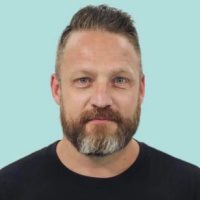
Brad Hendrickson is US-born and bred but circumstances, timing, and a deep sense of empathy led him to join Ukraine’s efforts in March 2022. Currently working in and around Bakhmut, which President Zelensky has called “burned ruins,” Brad’s mission is to evacuate civilians and deliver critical aid. Though Brad works mostly on his own, he occasionally teams up with other volunteers and nonprofits to best serve the needs around him.
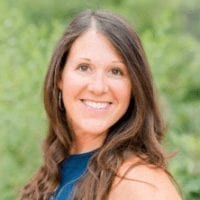
Maureen Woolshlager started her career at McMaster-Carr’s Management Development Program working in sales, marketing, distribution operations, finance and accounting. After McMaster-Carr, she spent a year managing operations in one of Target Corporation’s warehouses before finding a role within a small management consulting company in Denver, Colorado. She worked on large projects for international food and restaurant companies and advised on account management, business development, operations management, warehouse operations, continuous improvement and distribution center operations, and procurement/supplier/inventory optimization. She has spent the last 9 years living in Belgium & Germany where her husband has been stationed as a US Army officer. Maureen has her B.A. from Emory University. She earned a certificate in Management & Marketing from the Wharton School at the University of Pennsylvania & her M.B.A. from the University of Phoenix. Learn more about Vector Global Logistics here: https://vectorgl.com/
